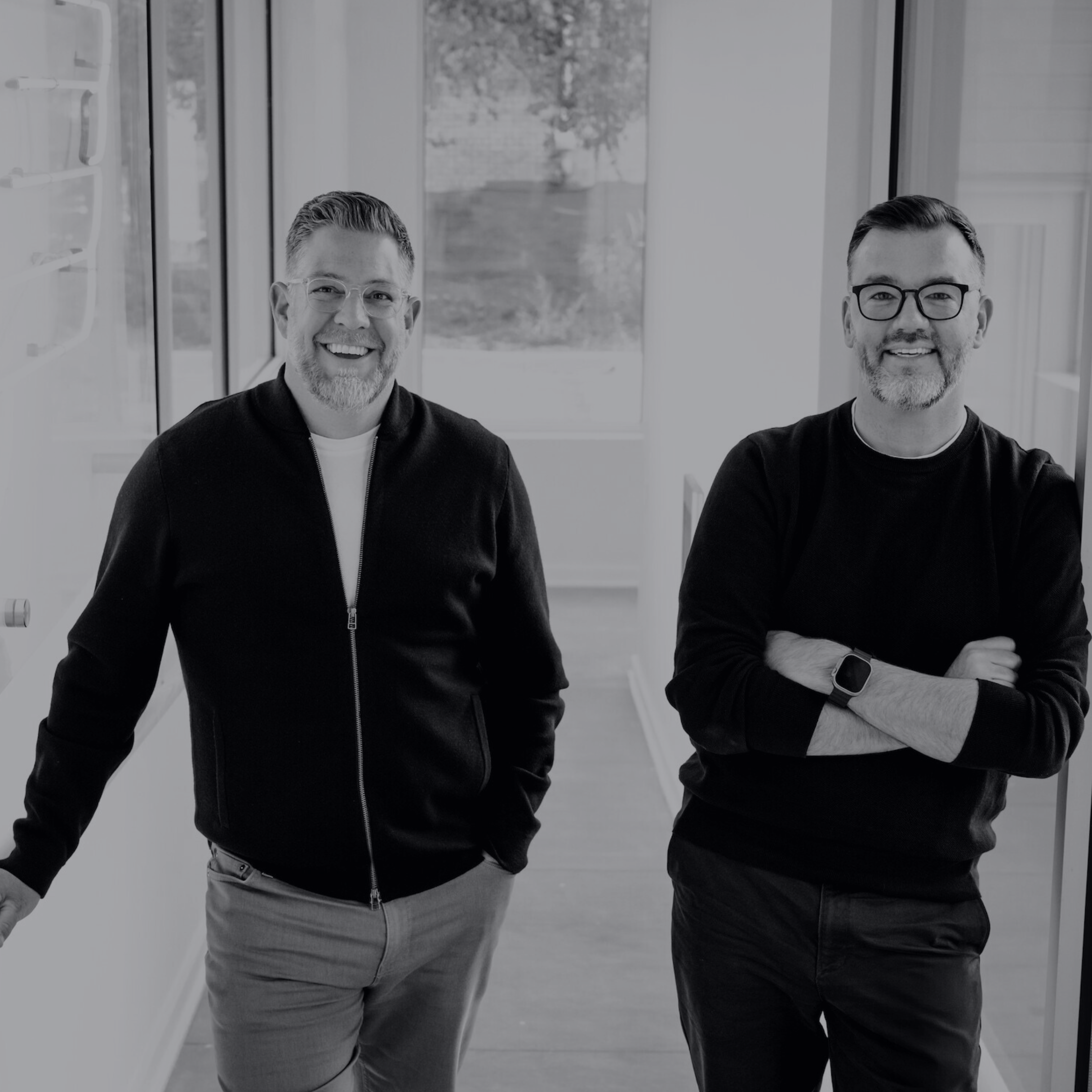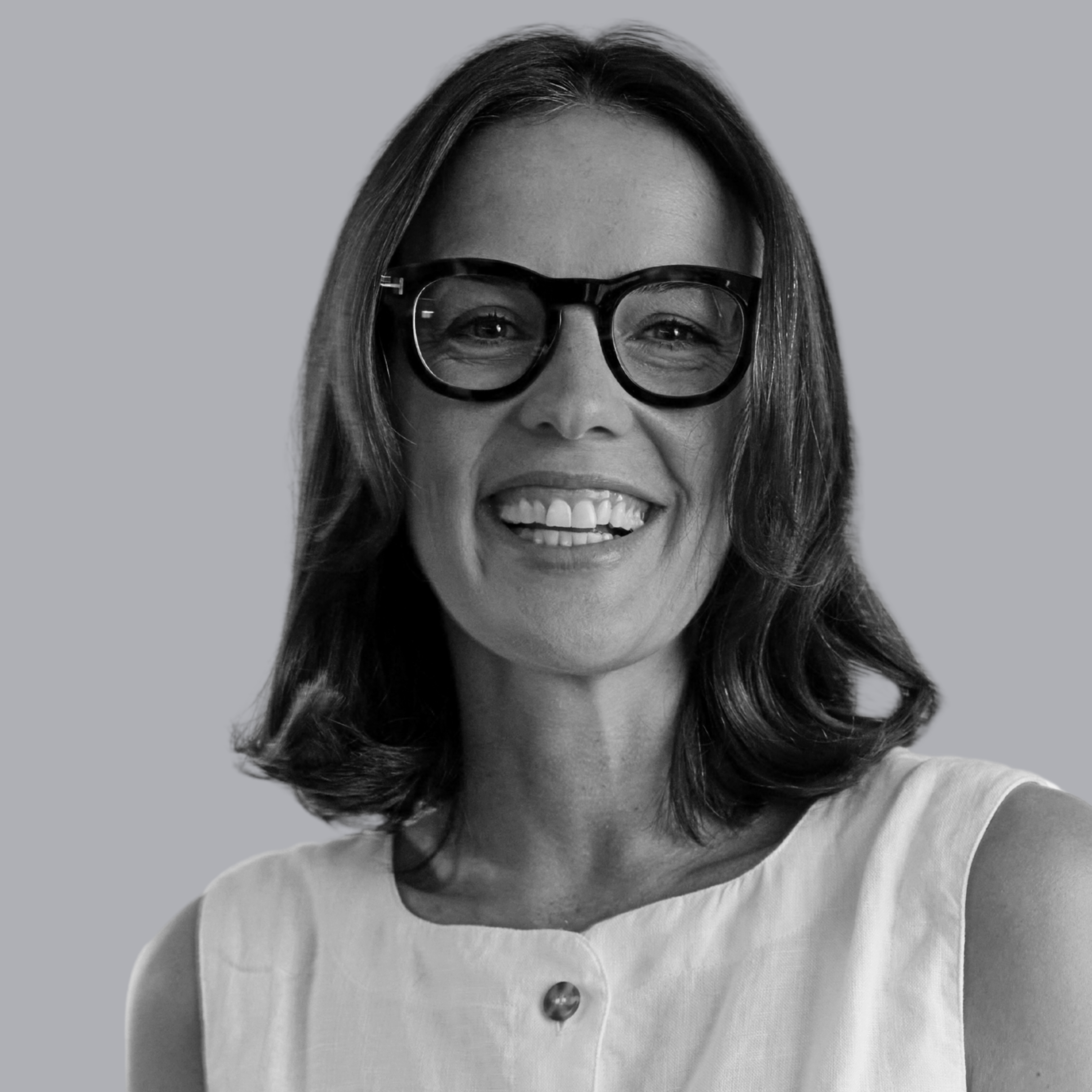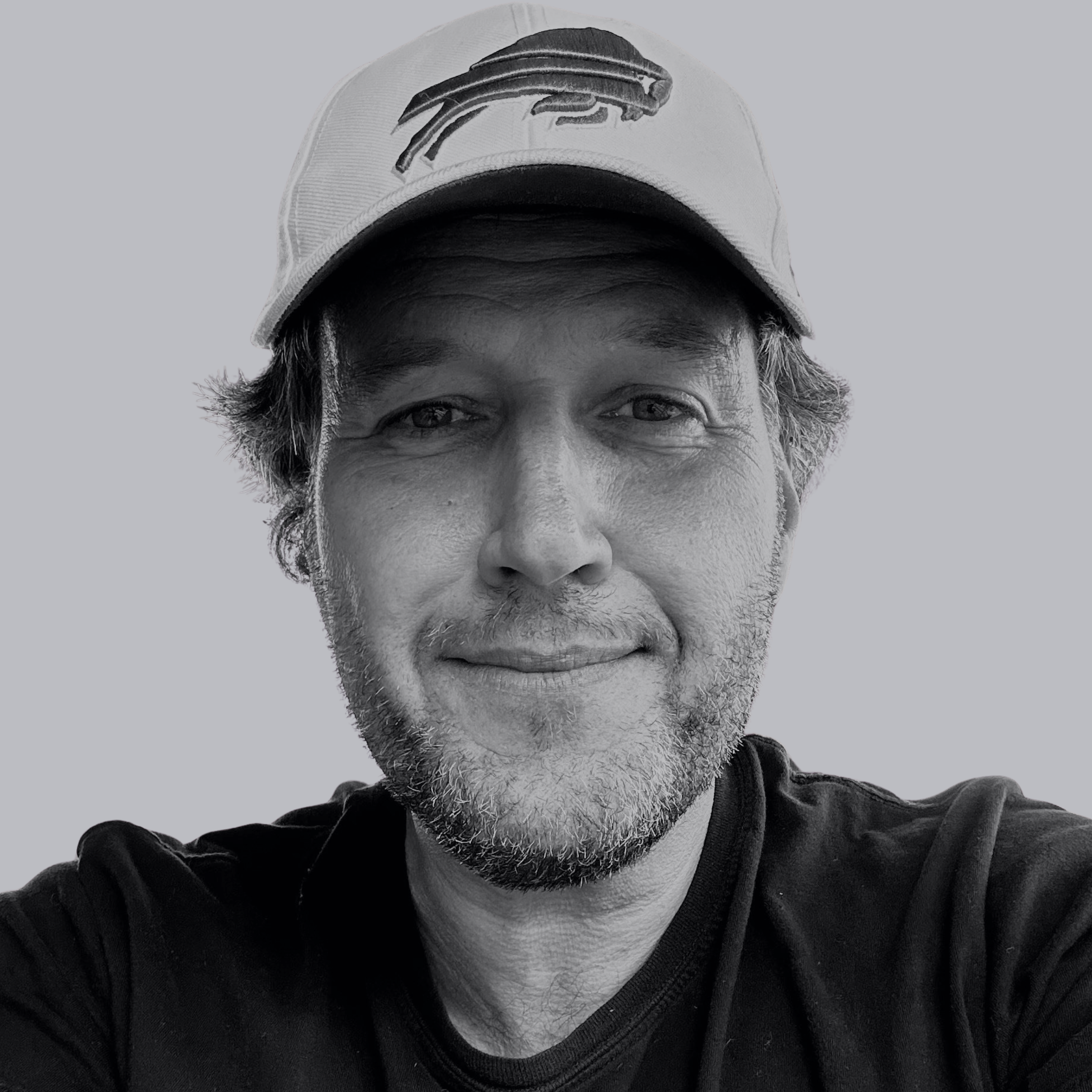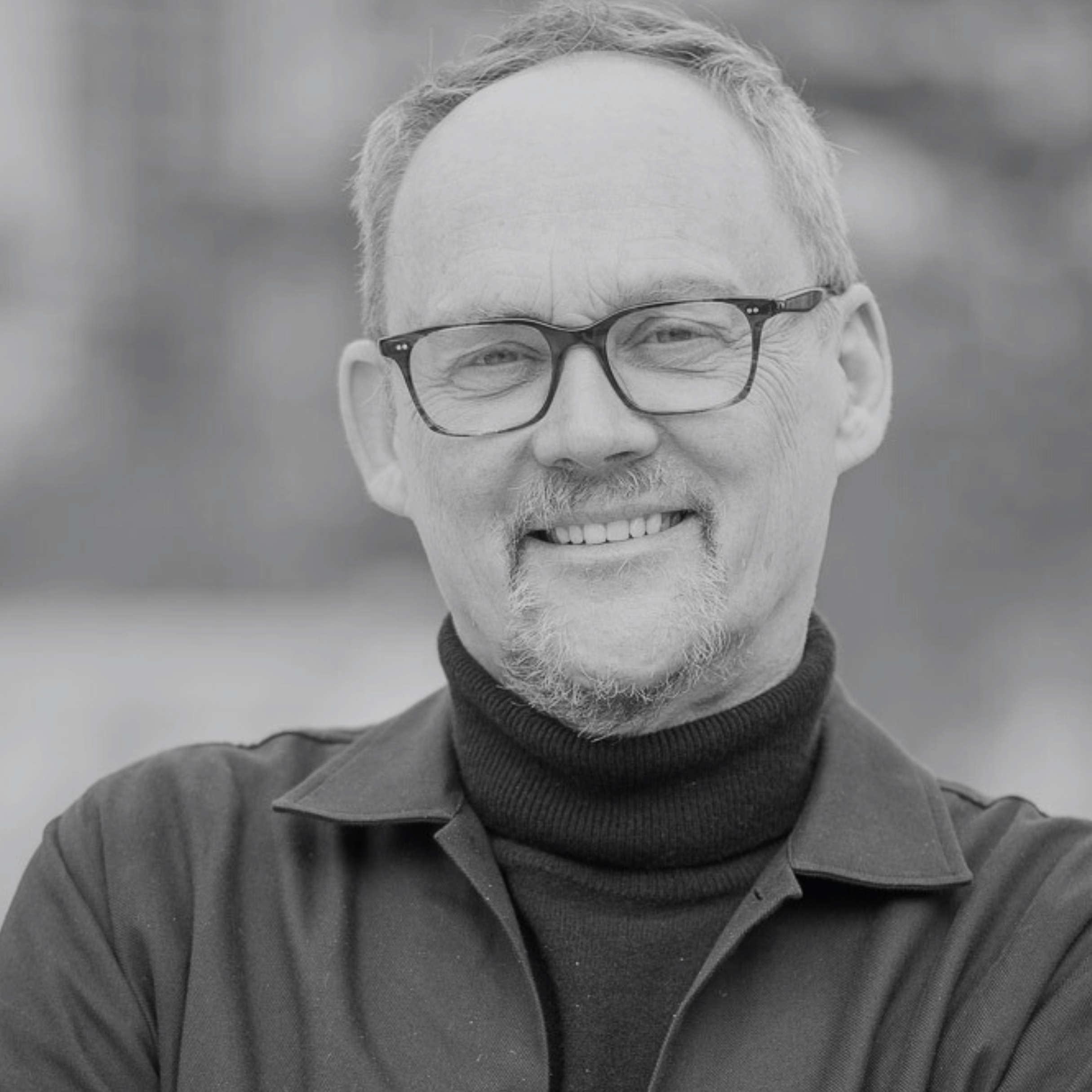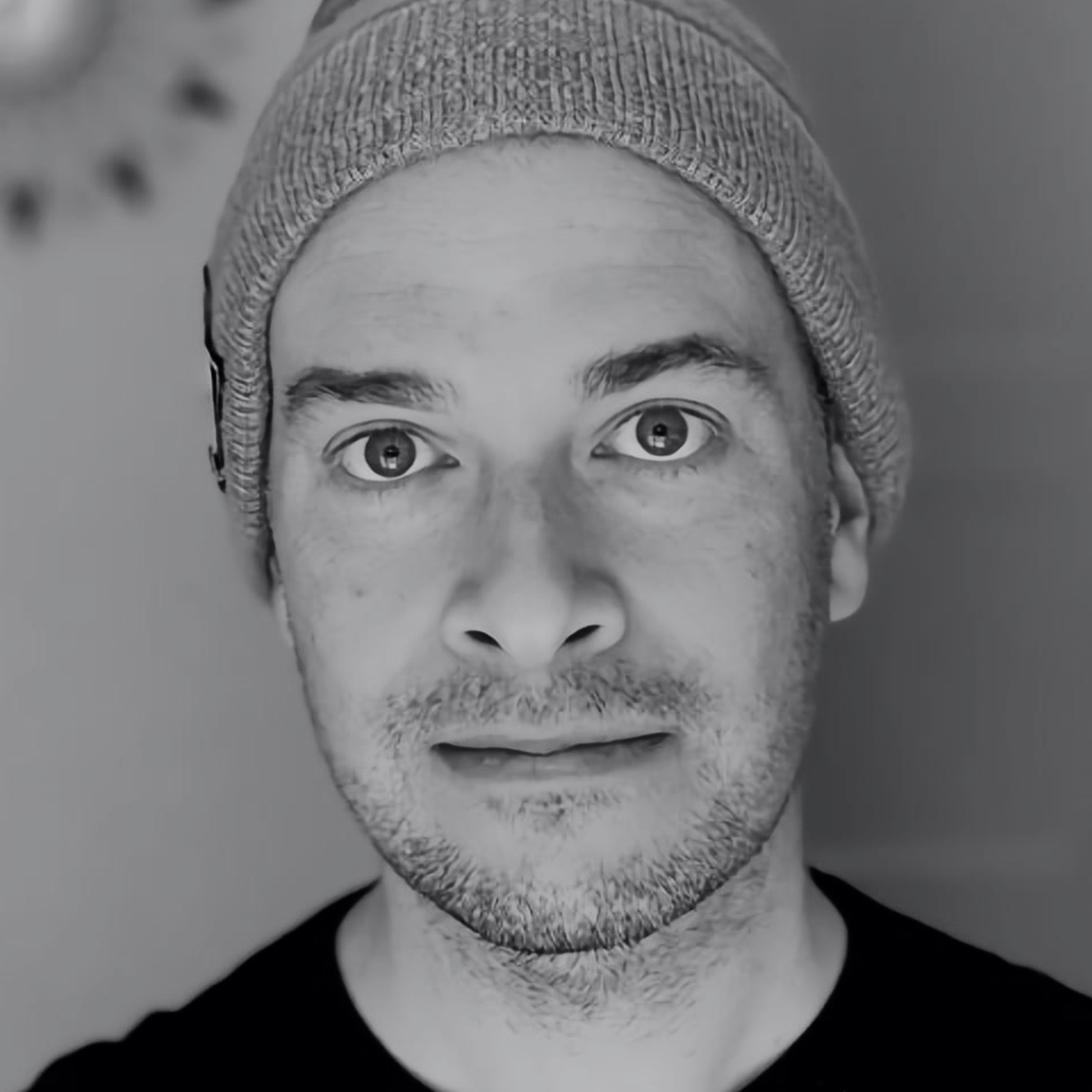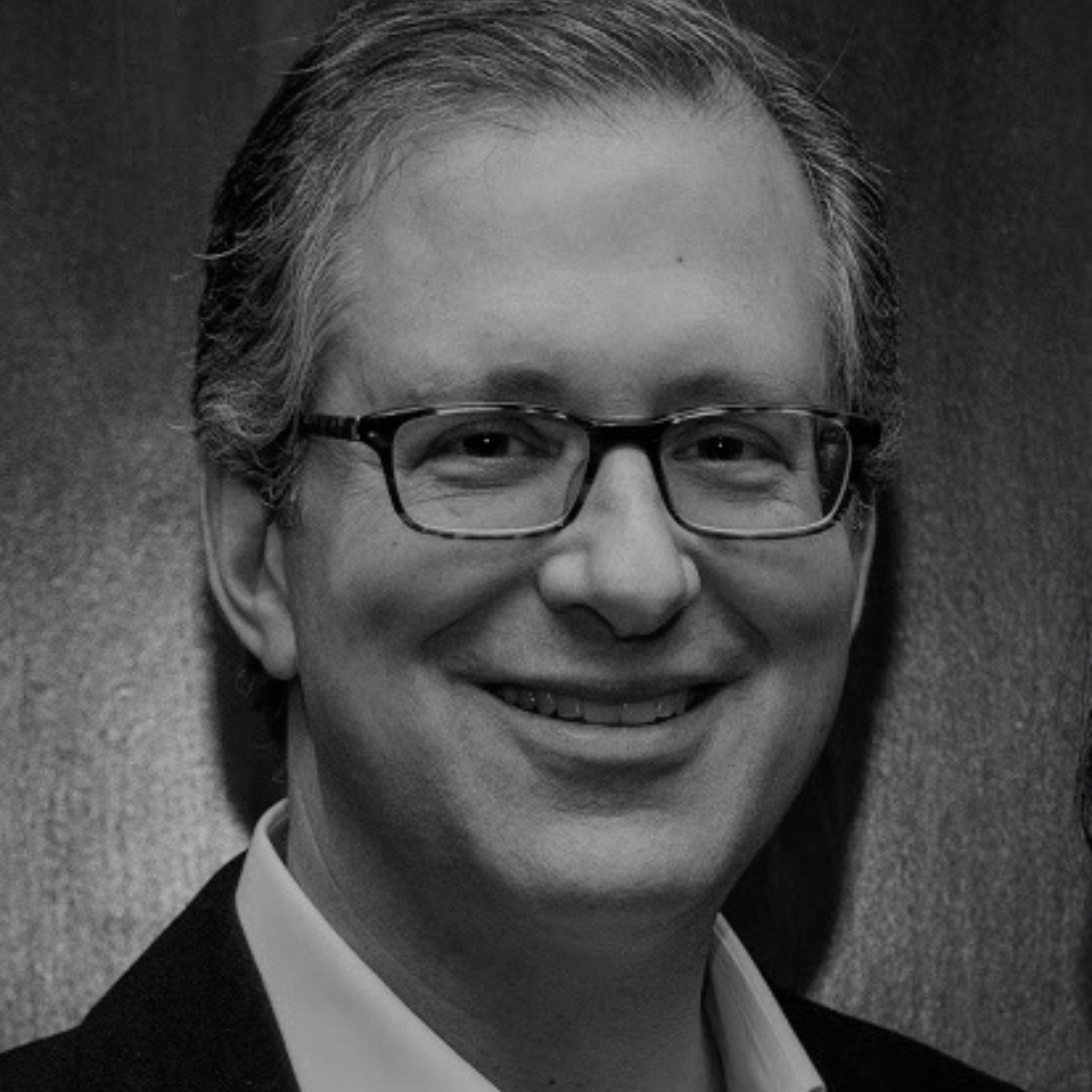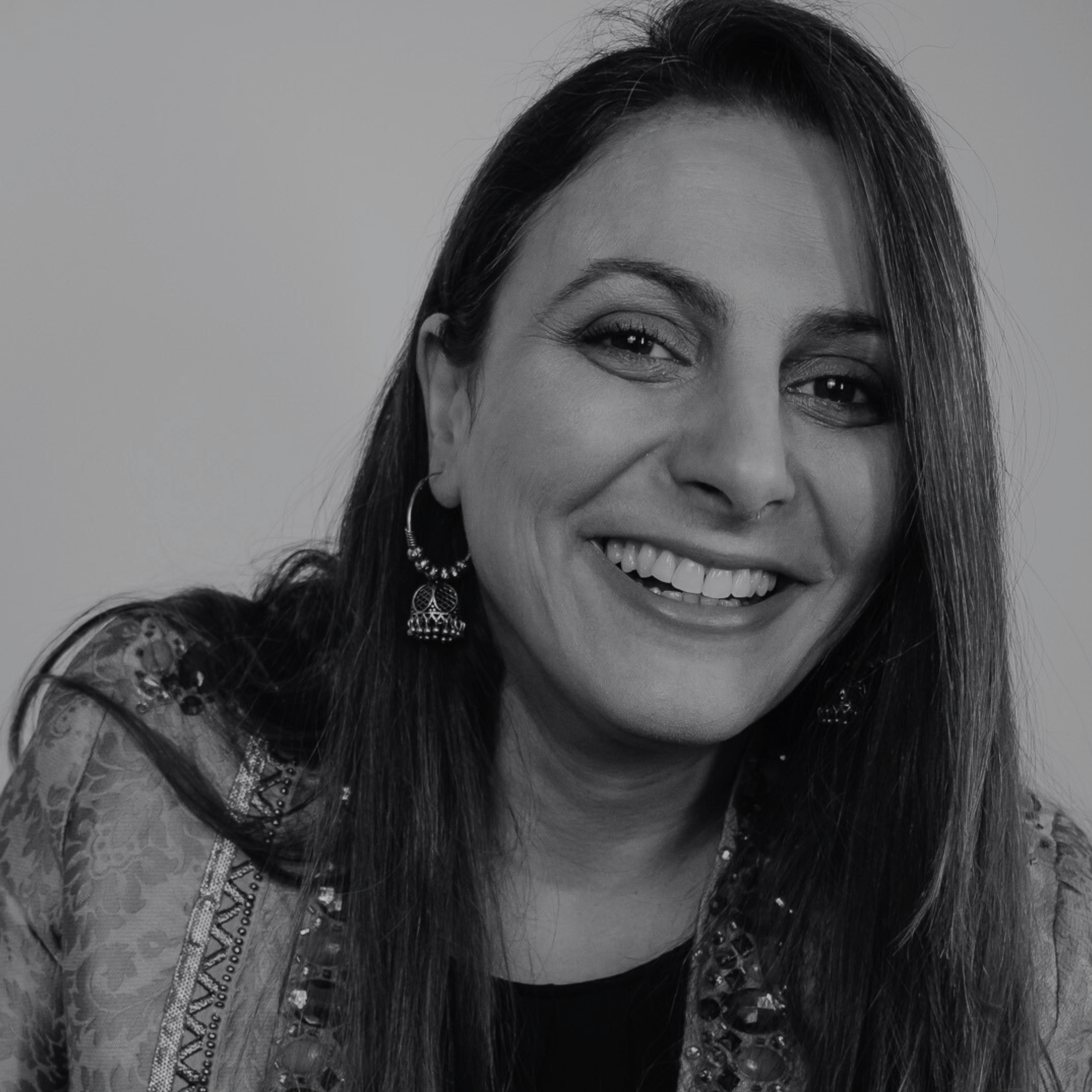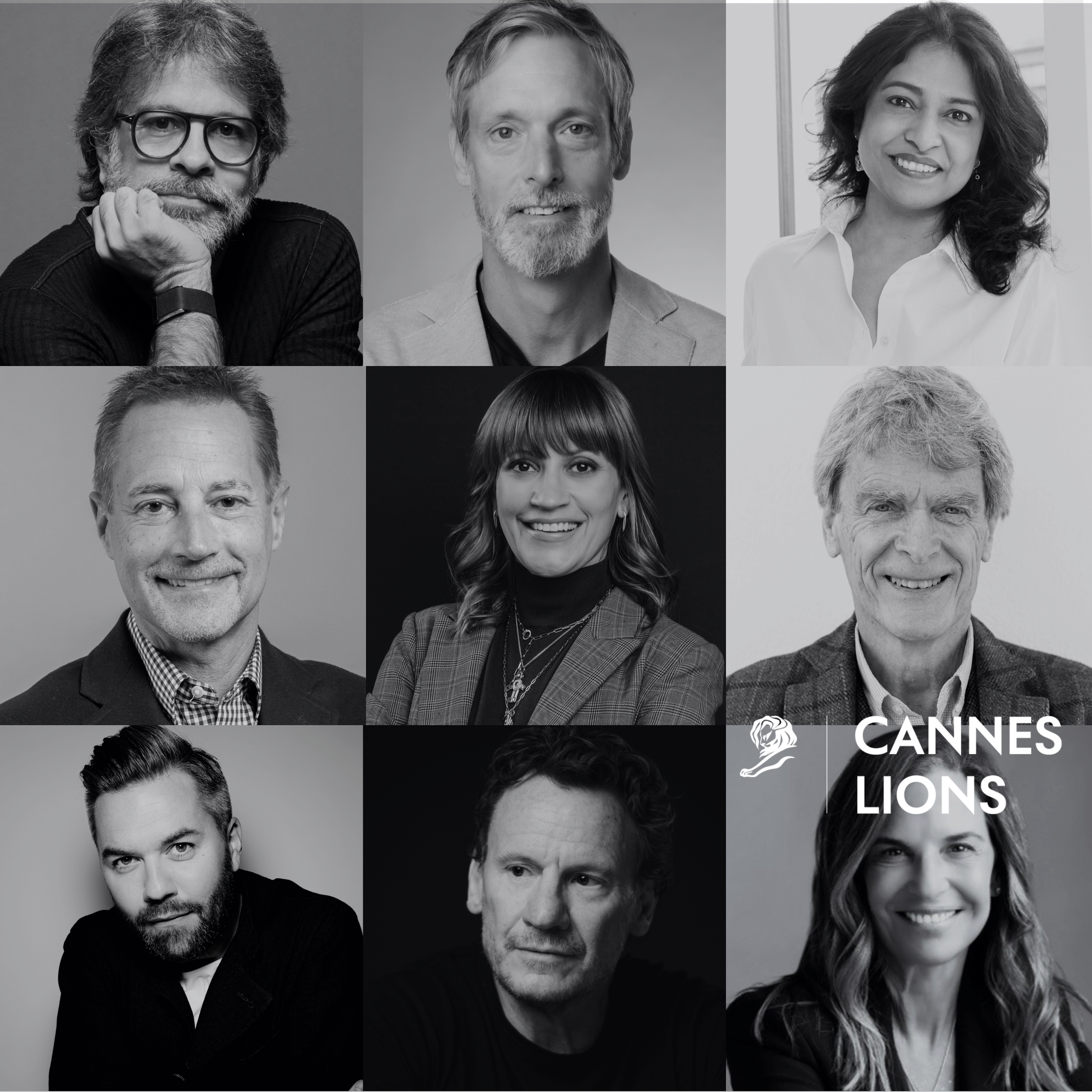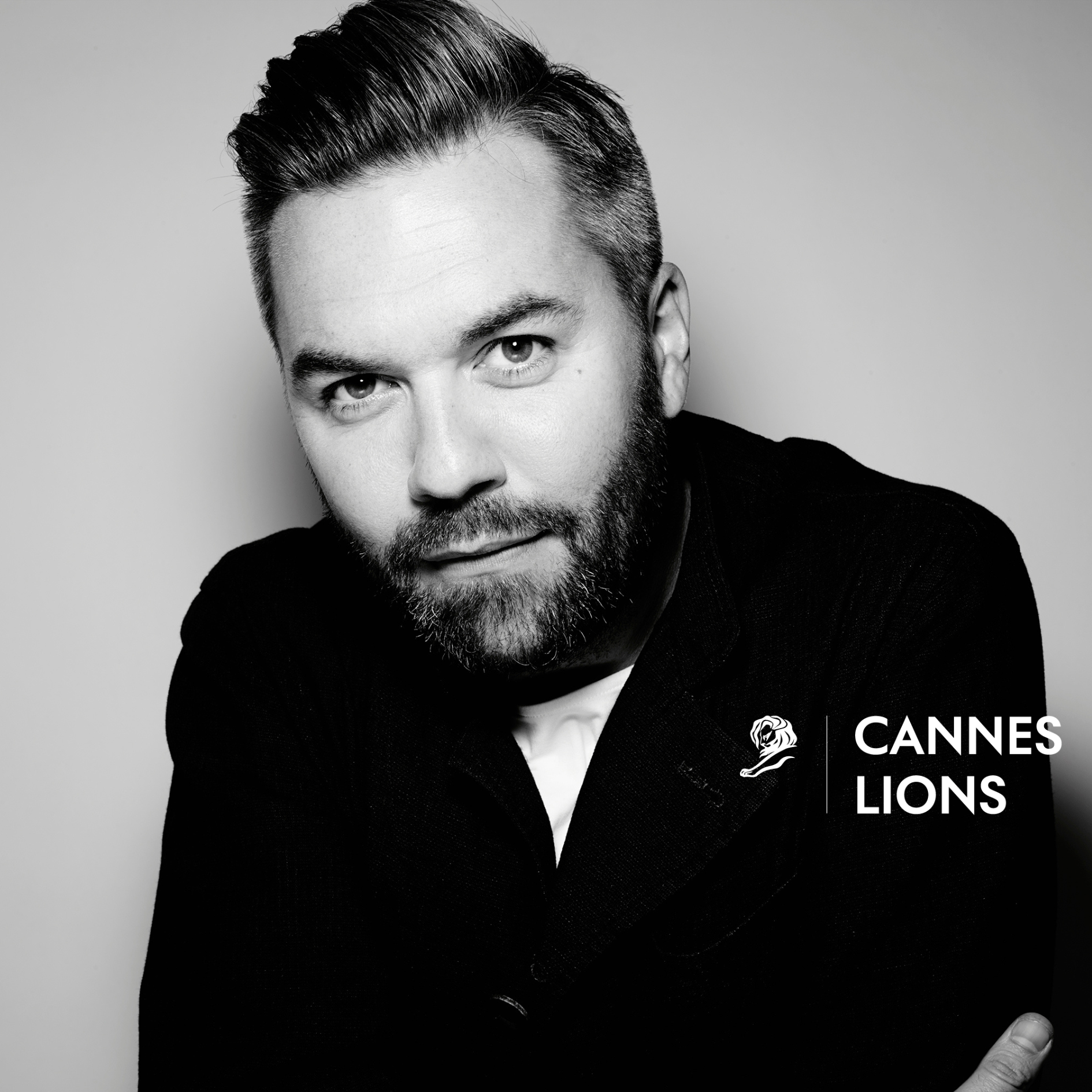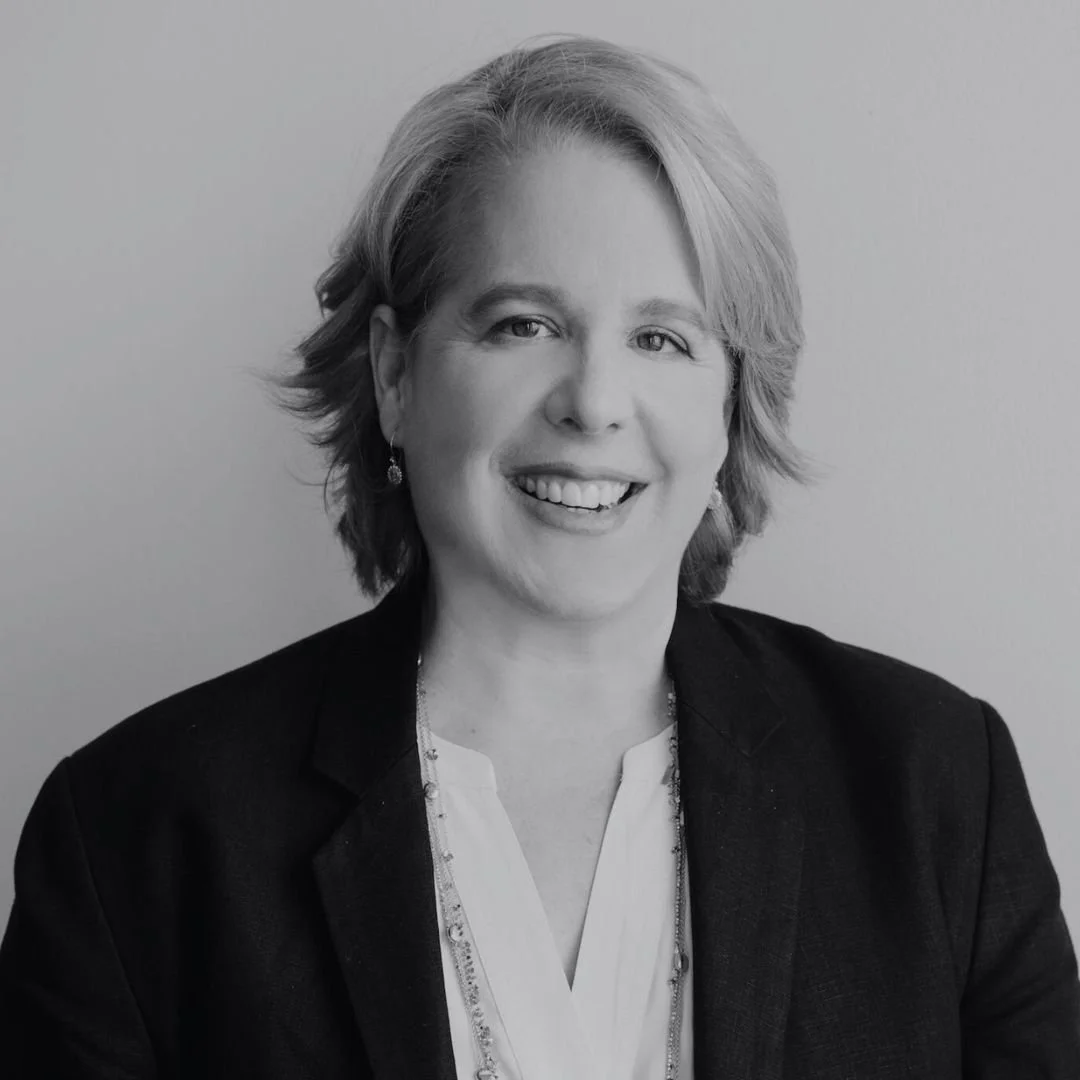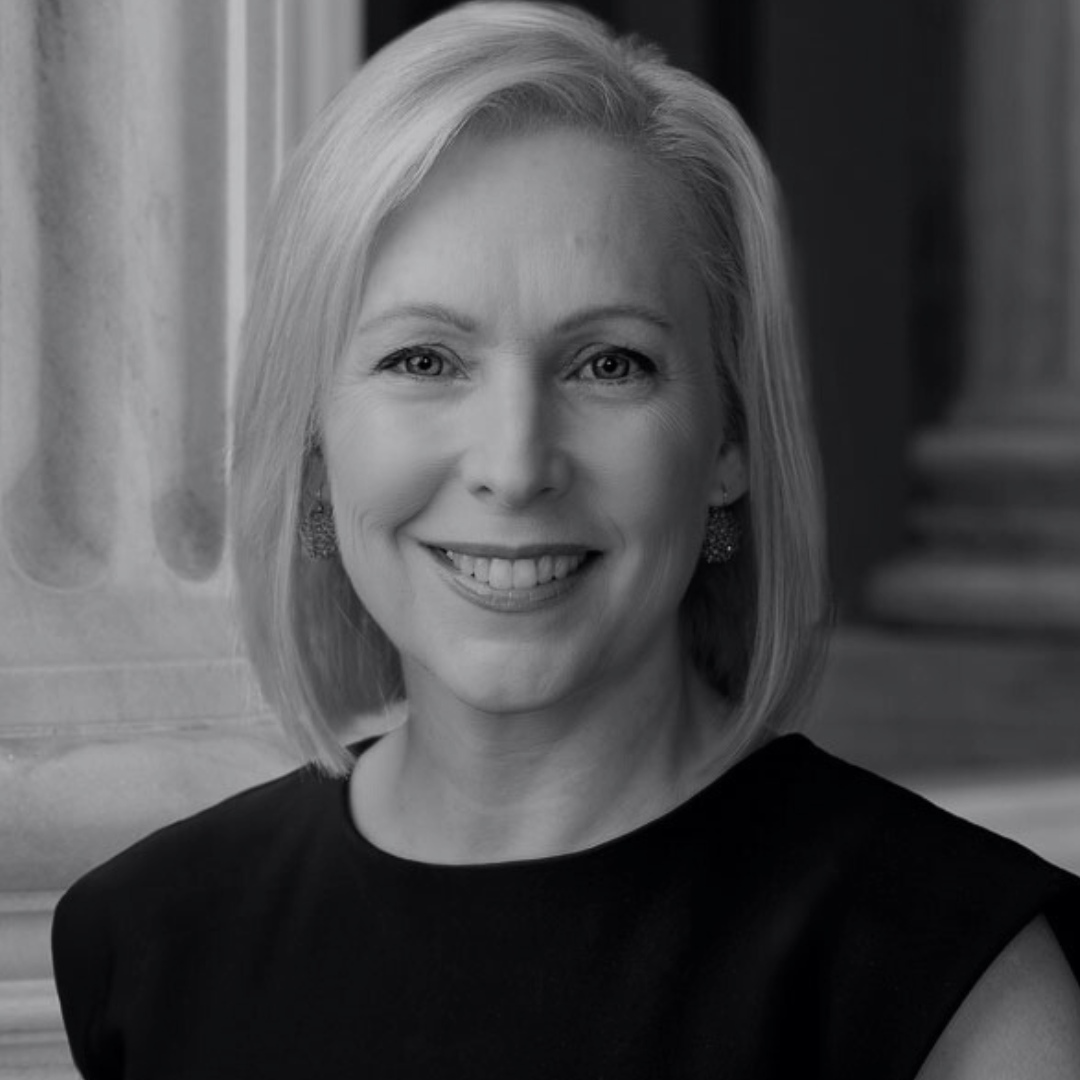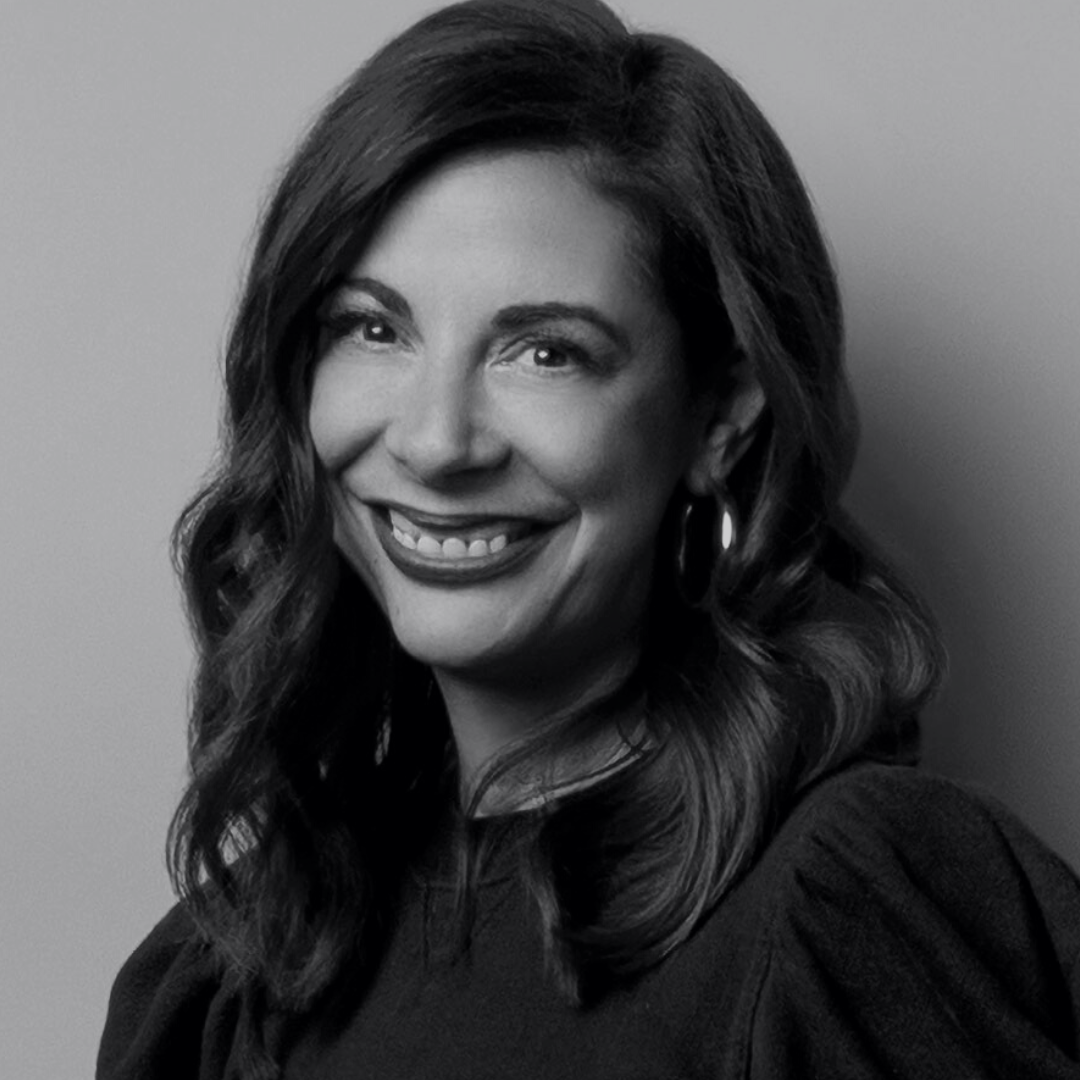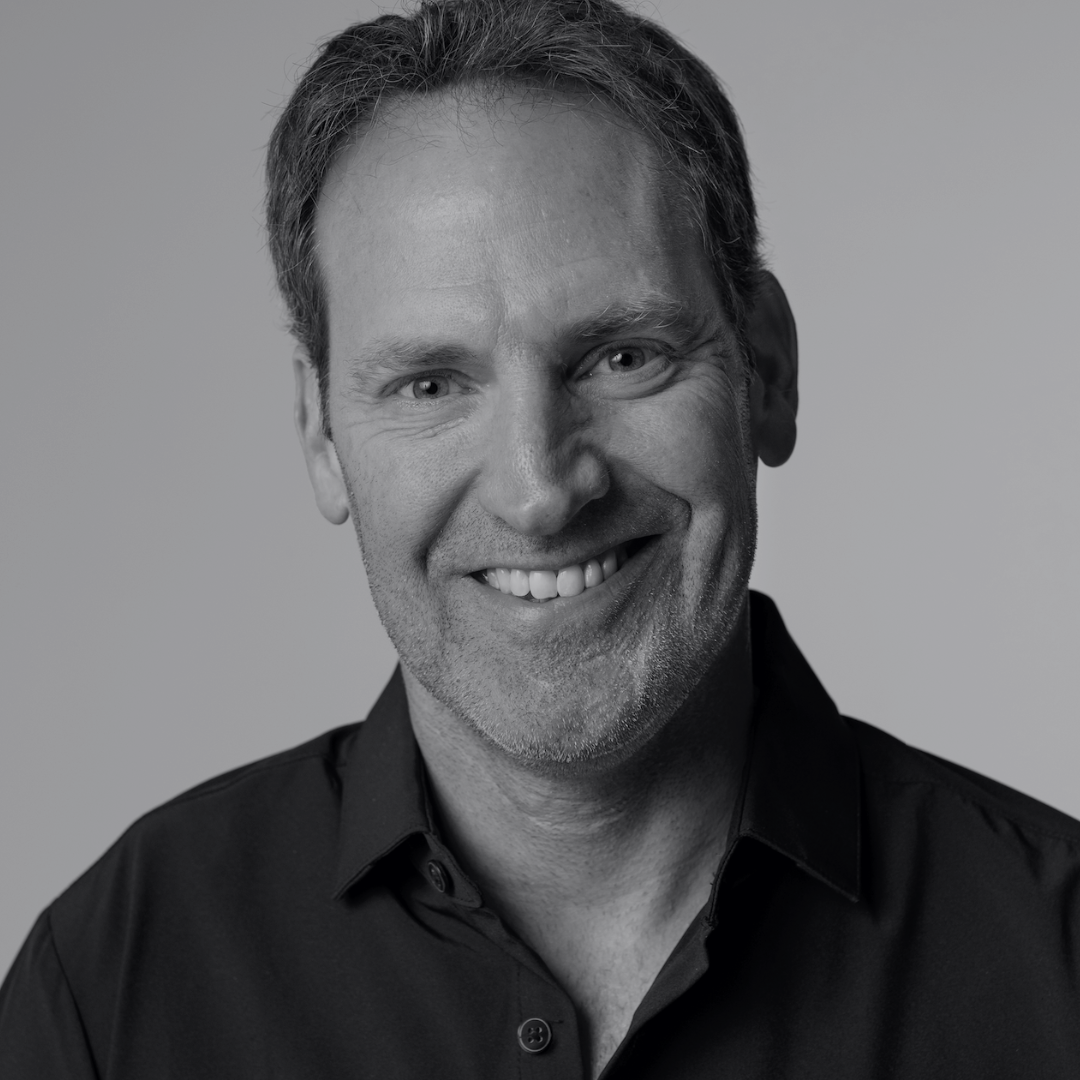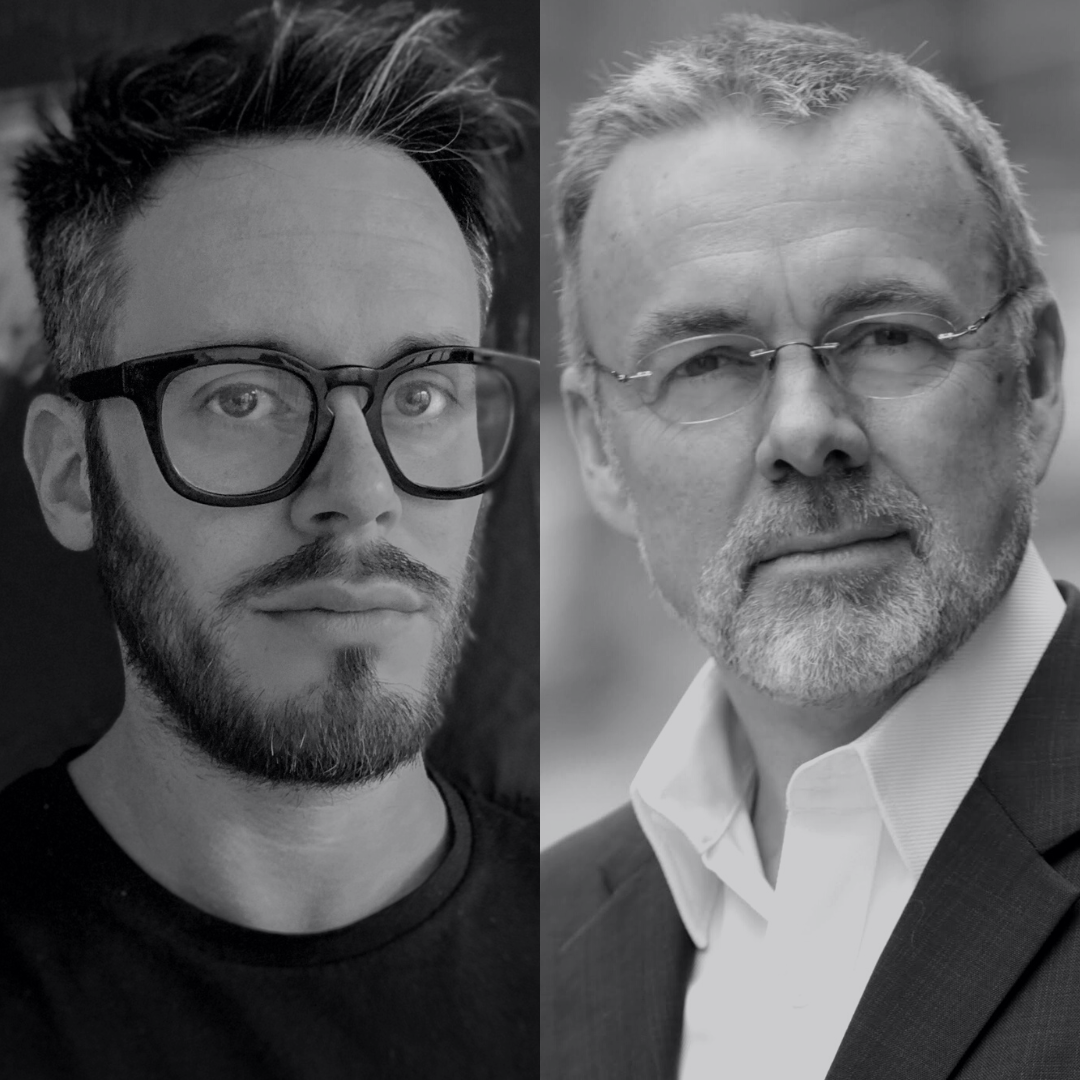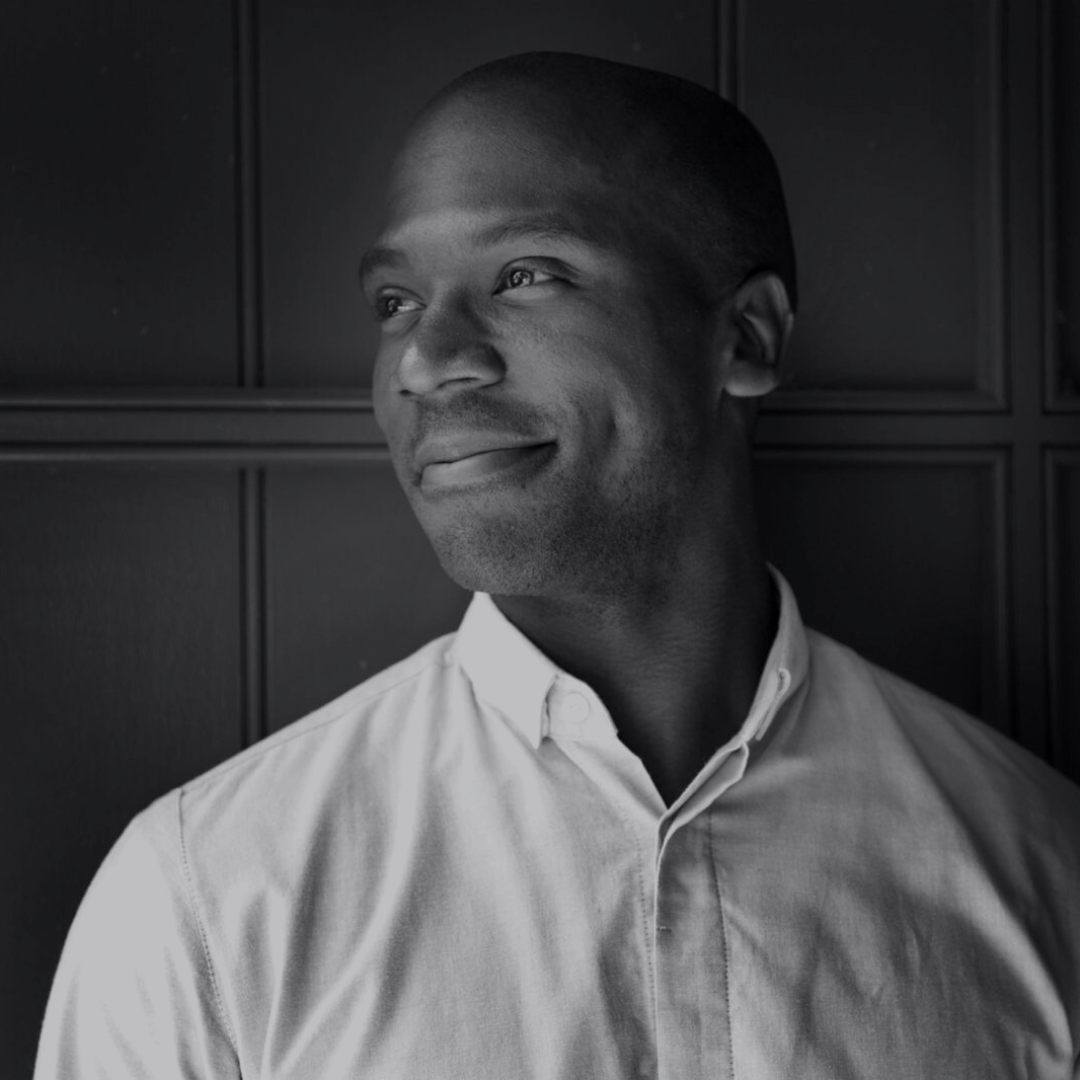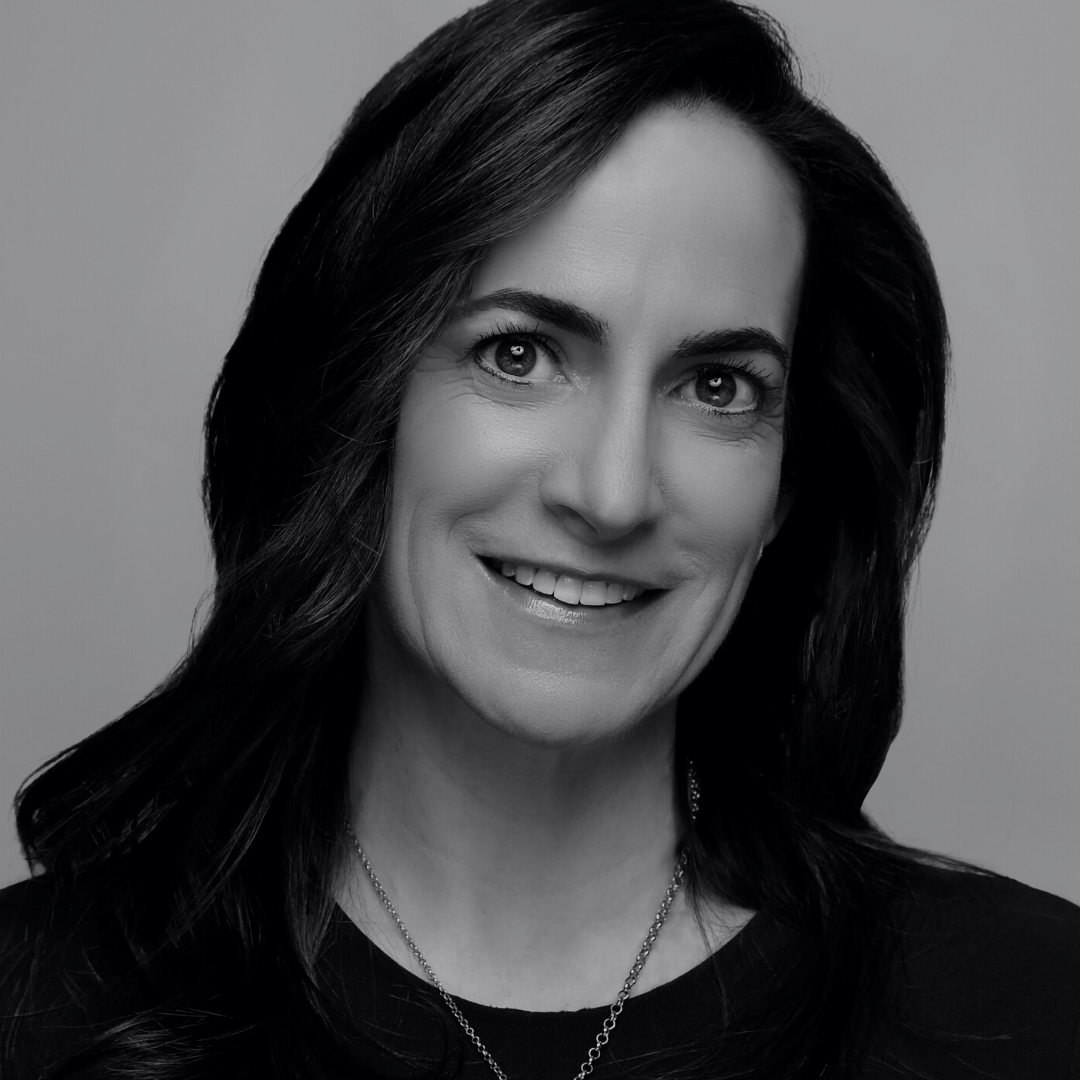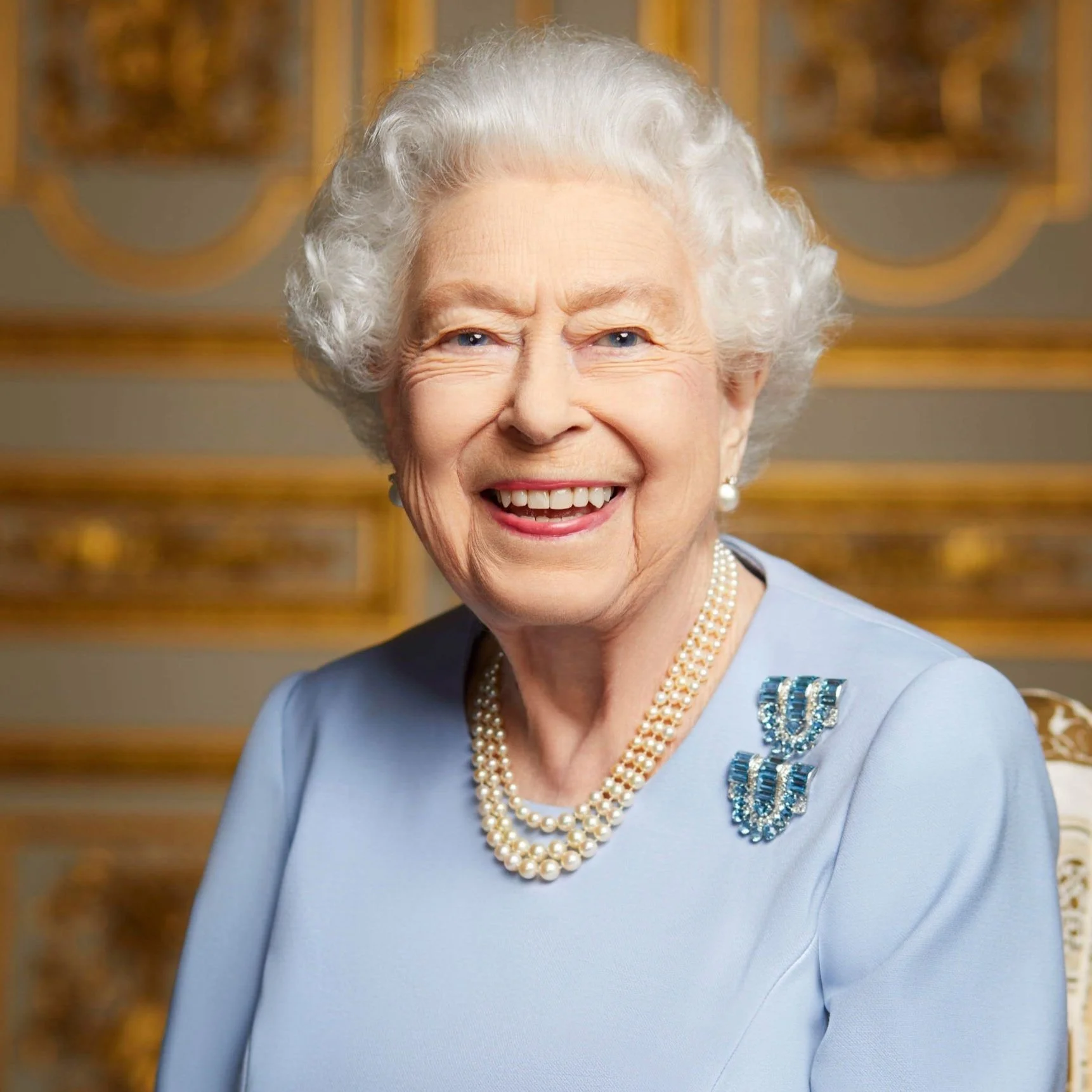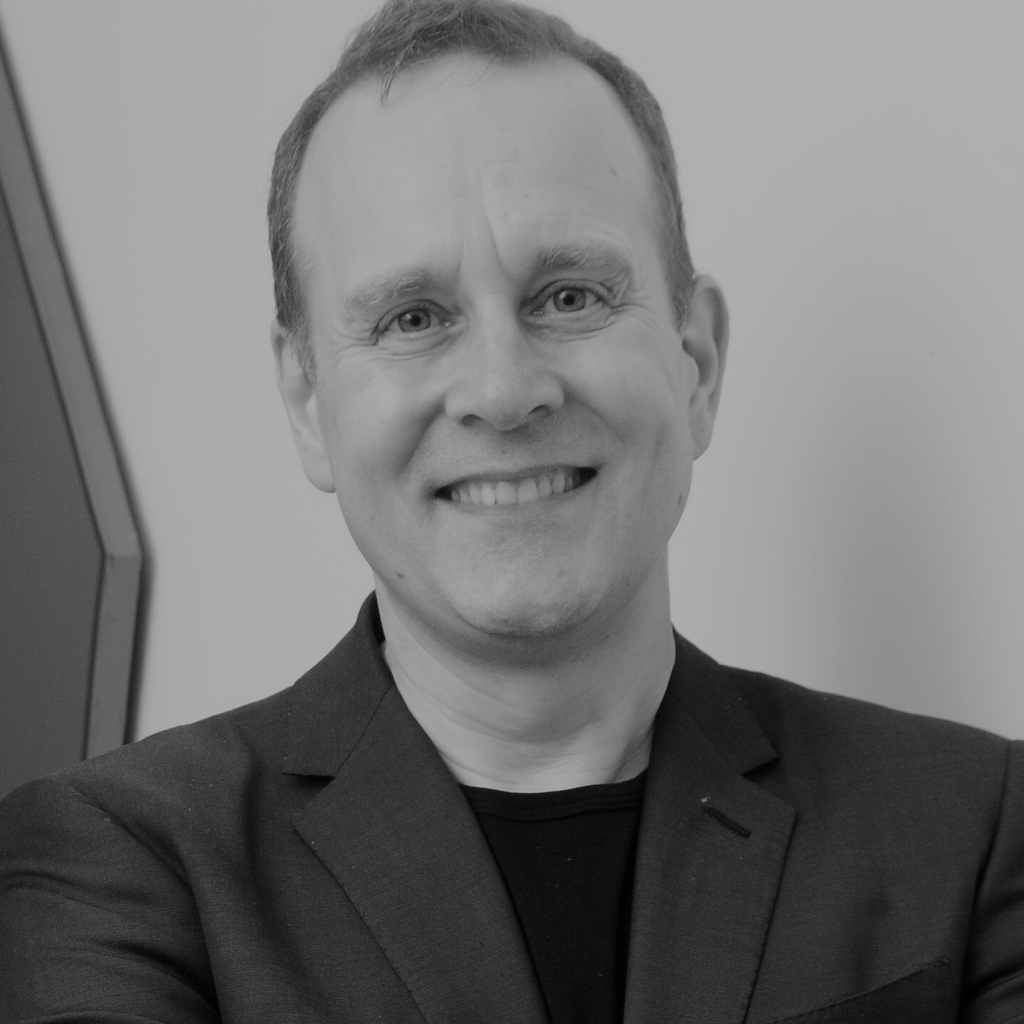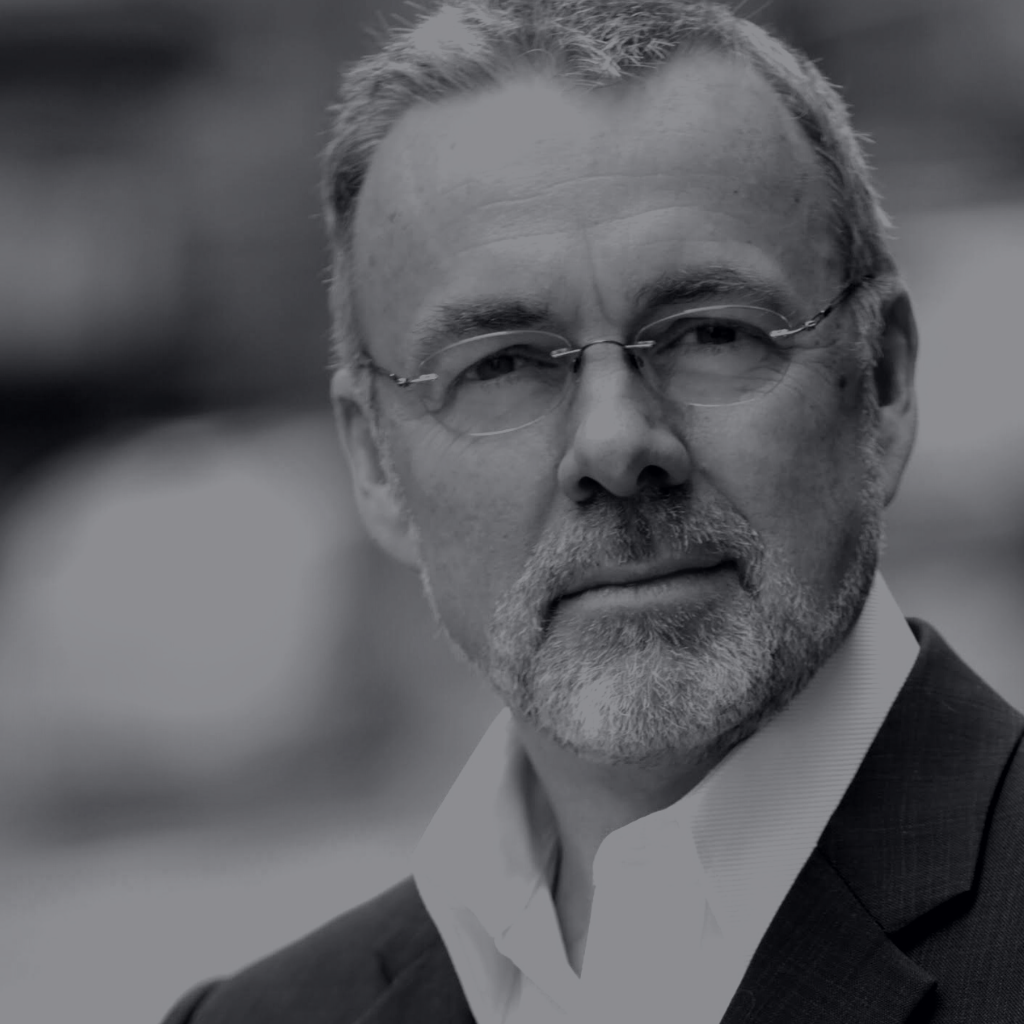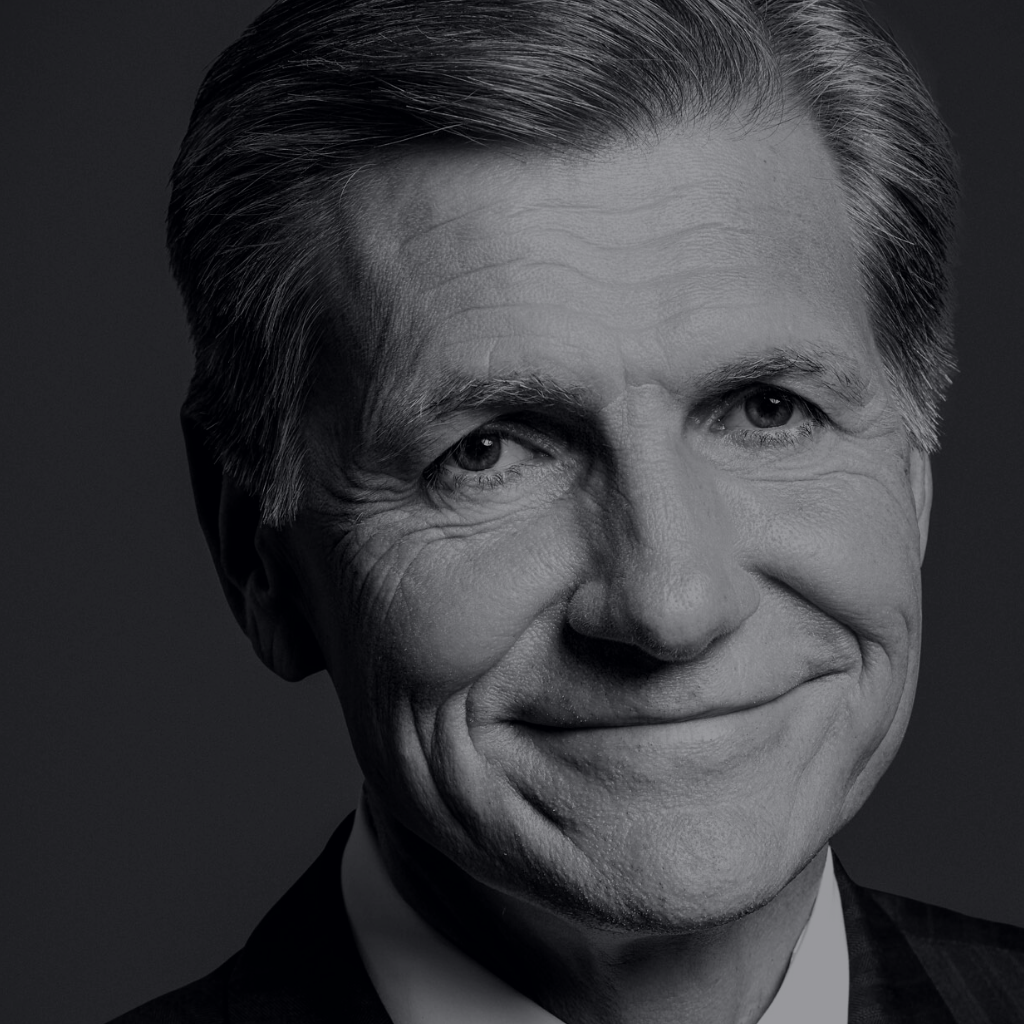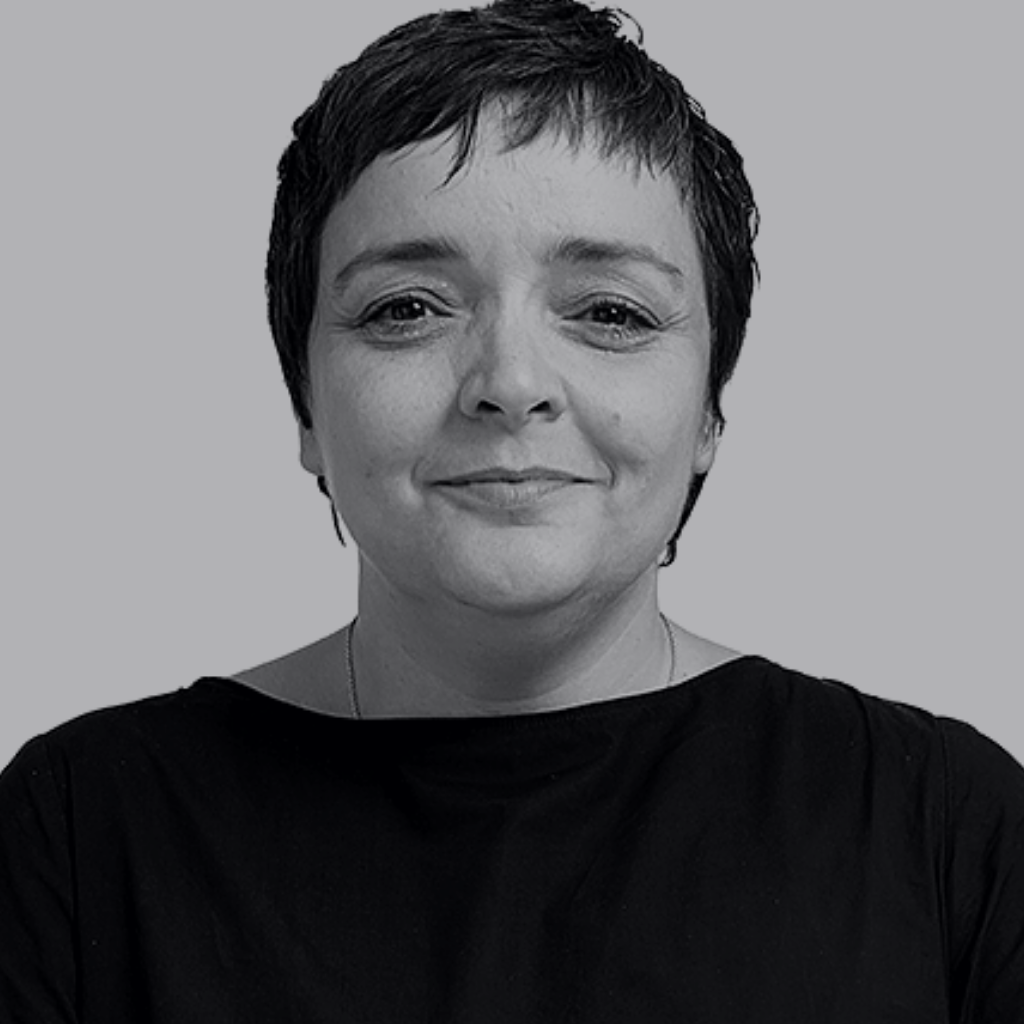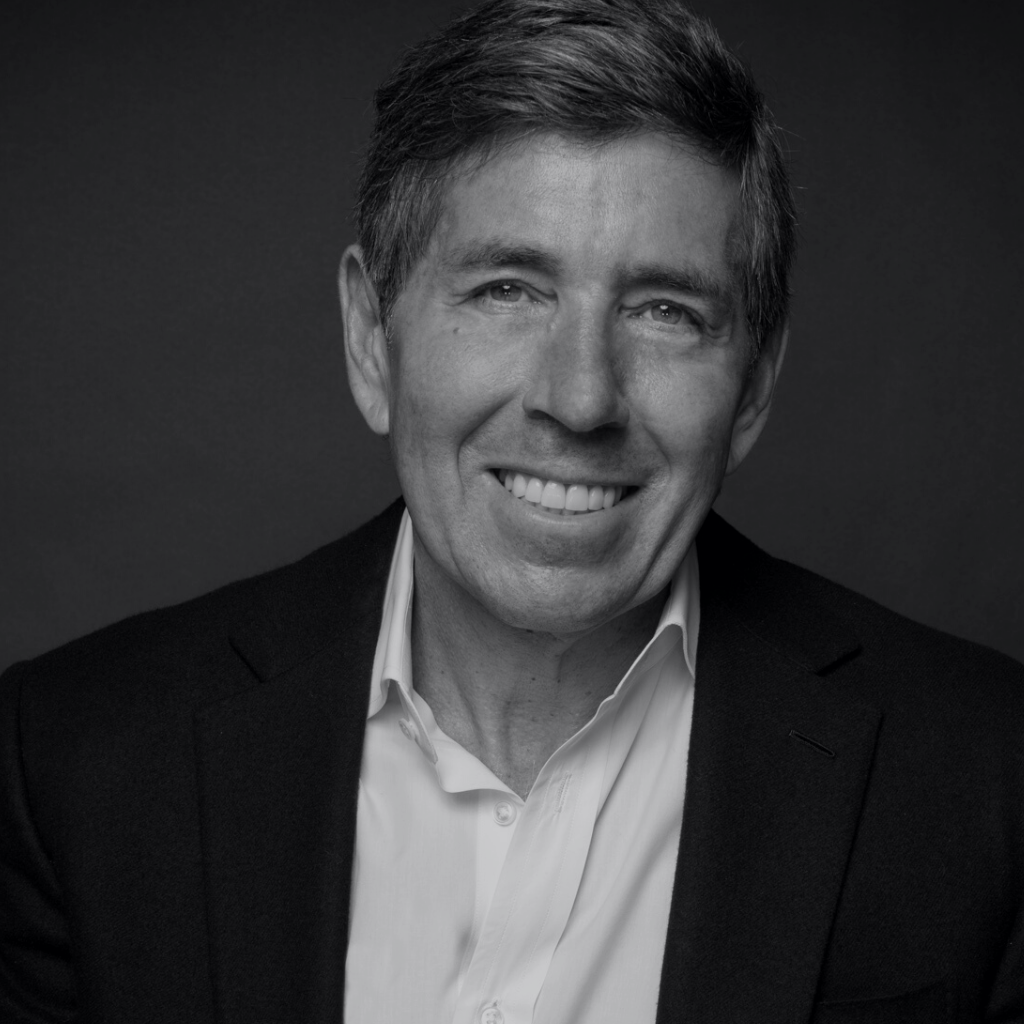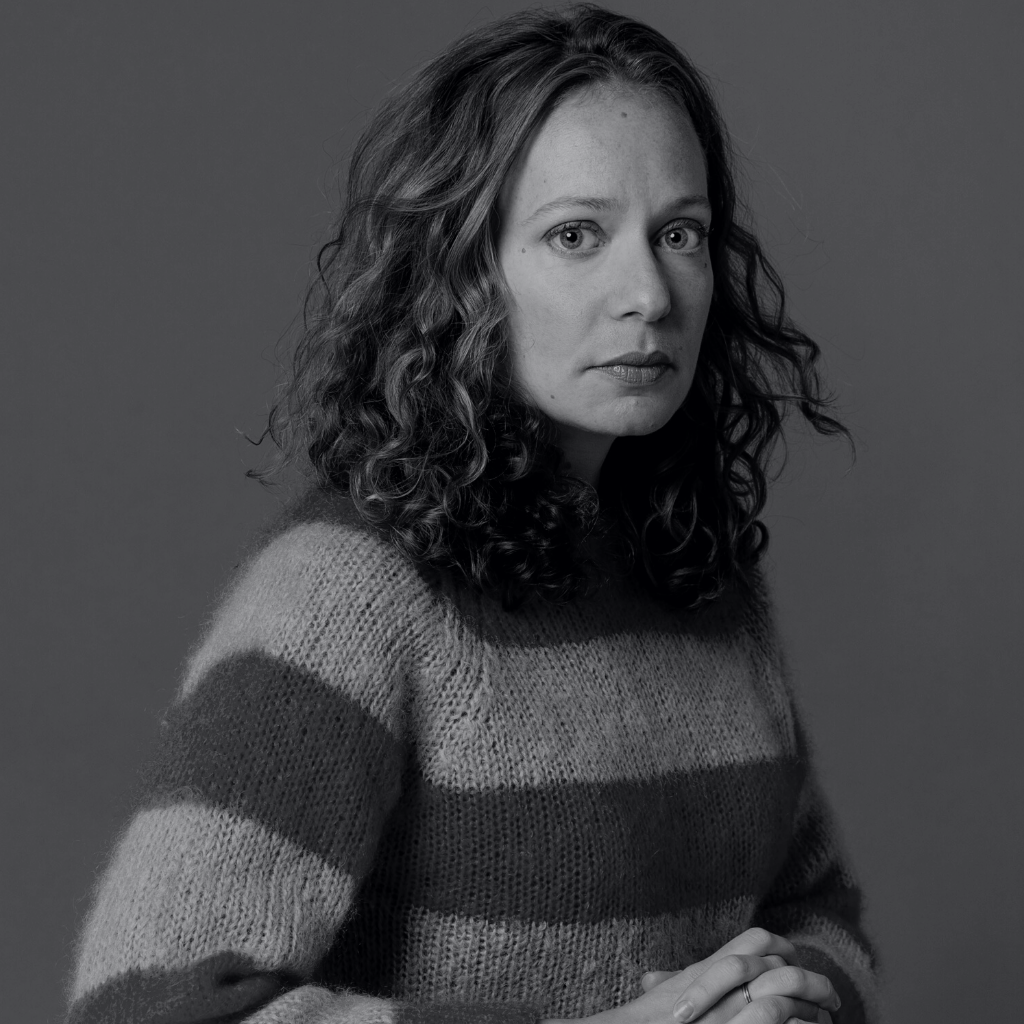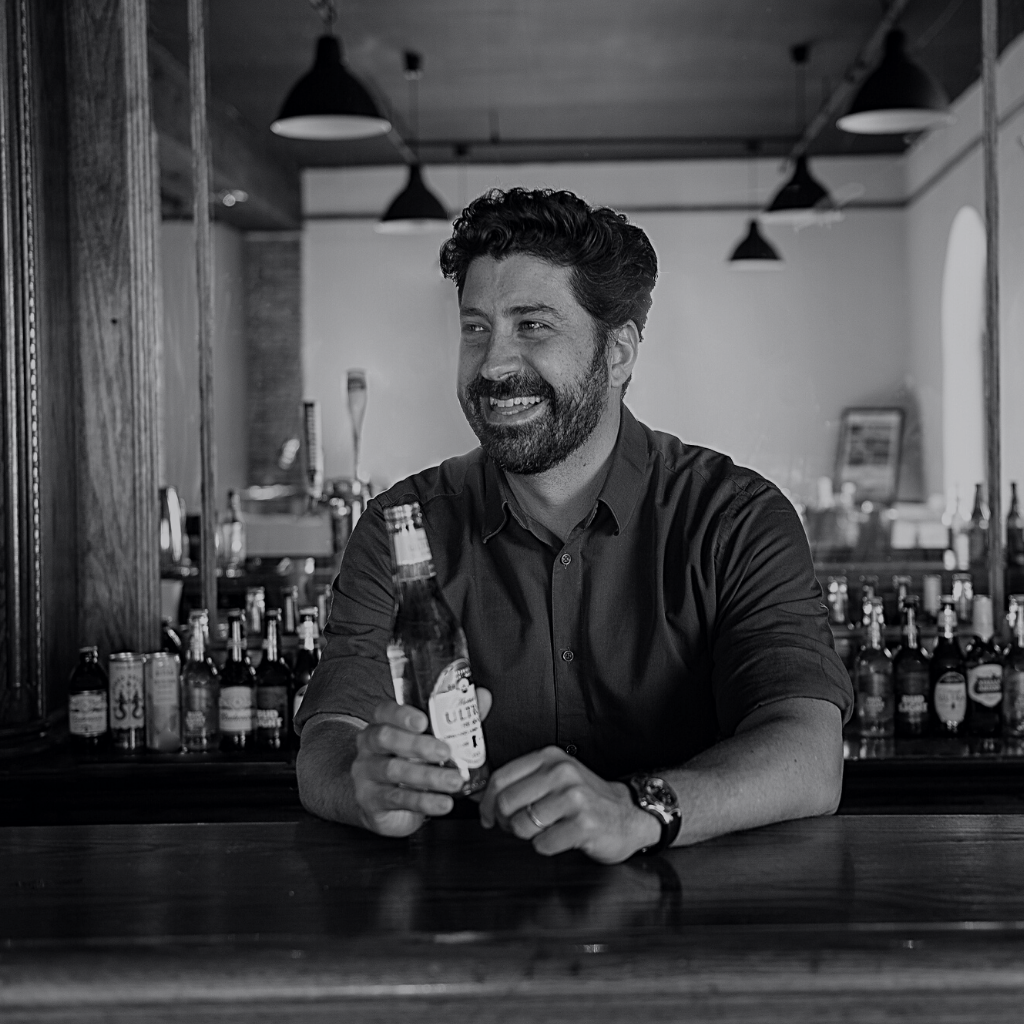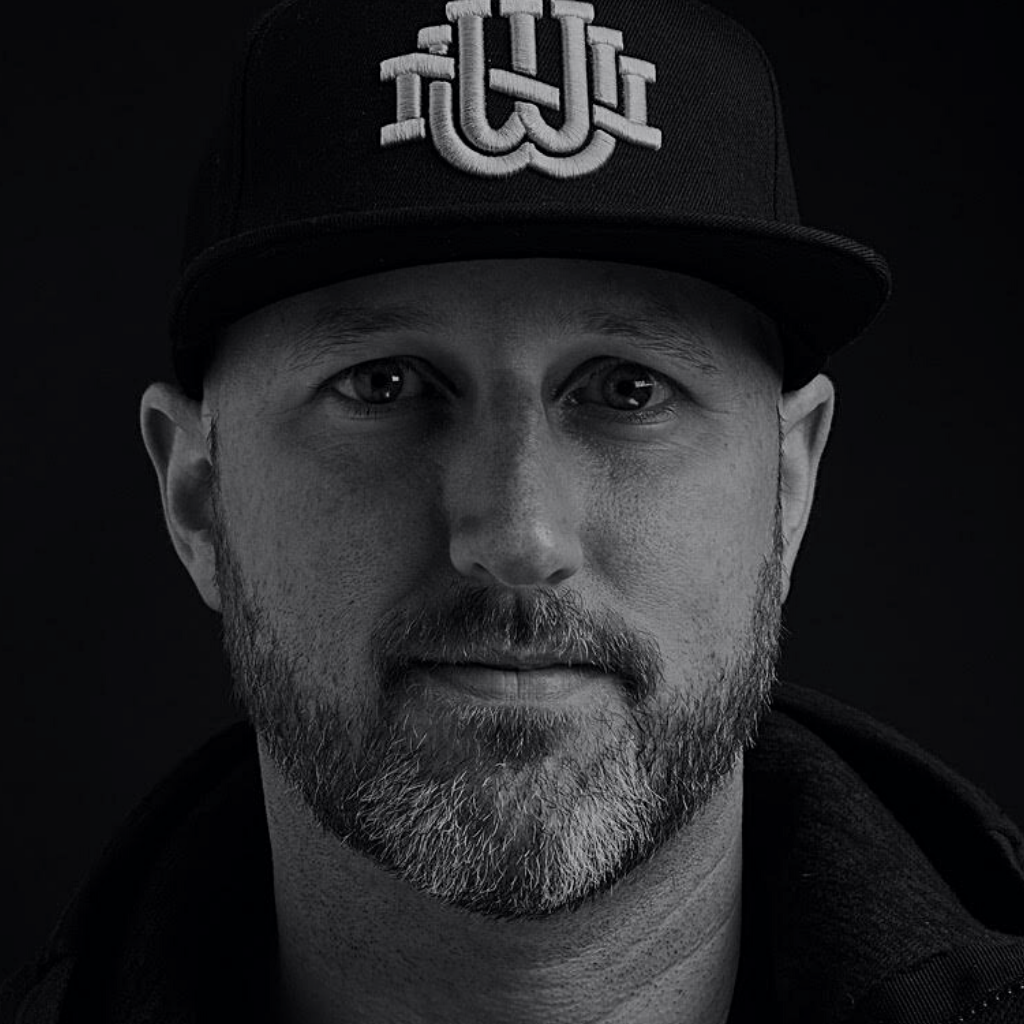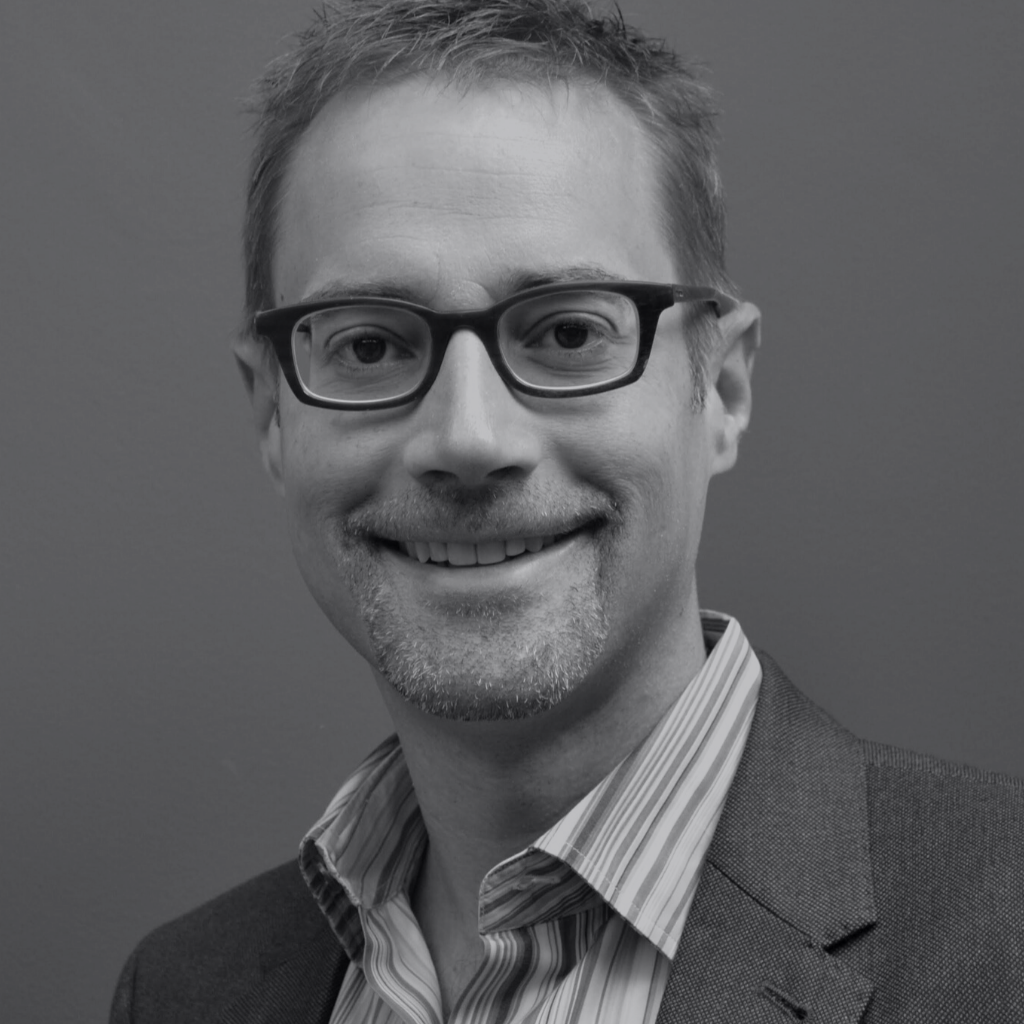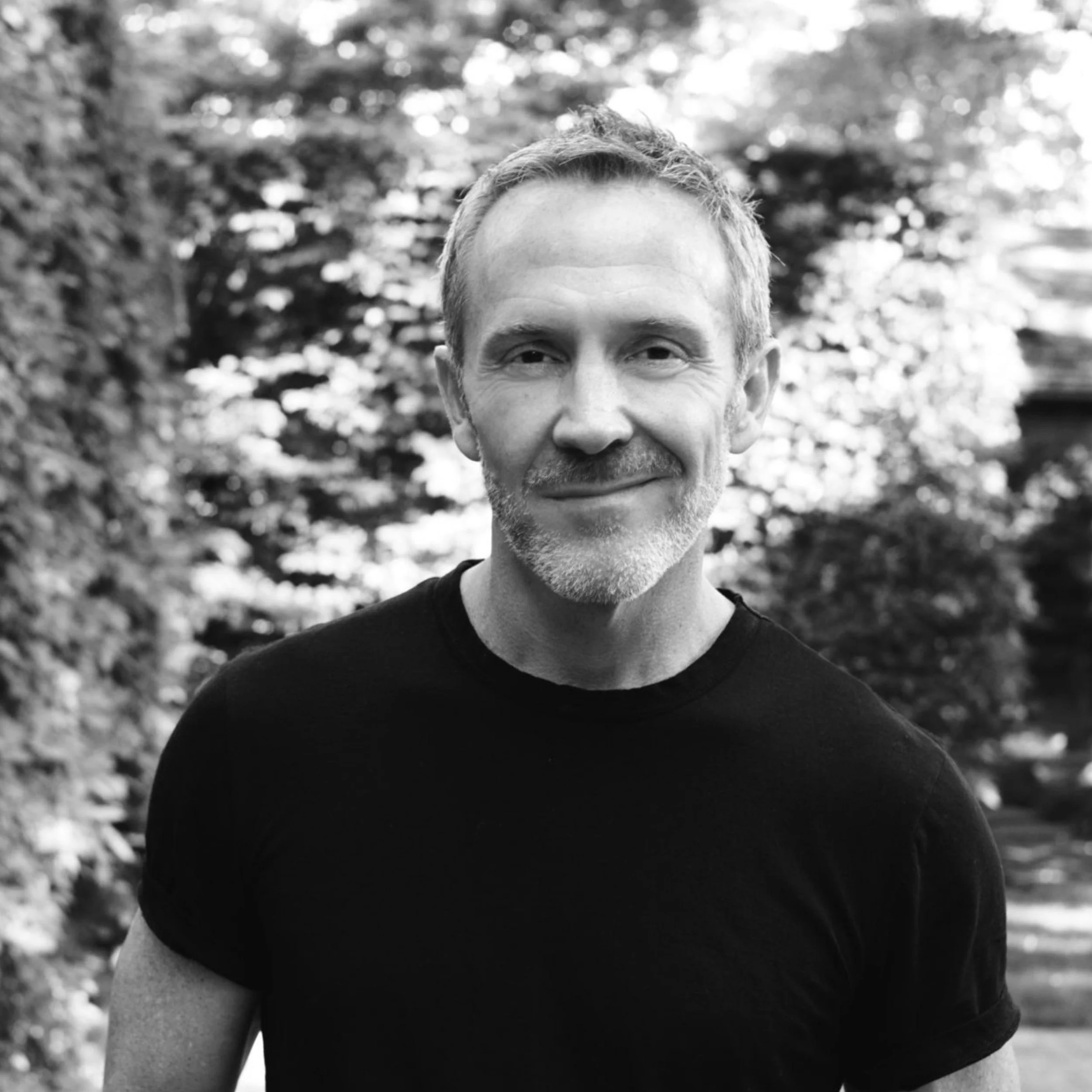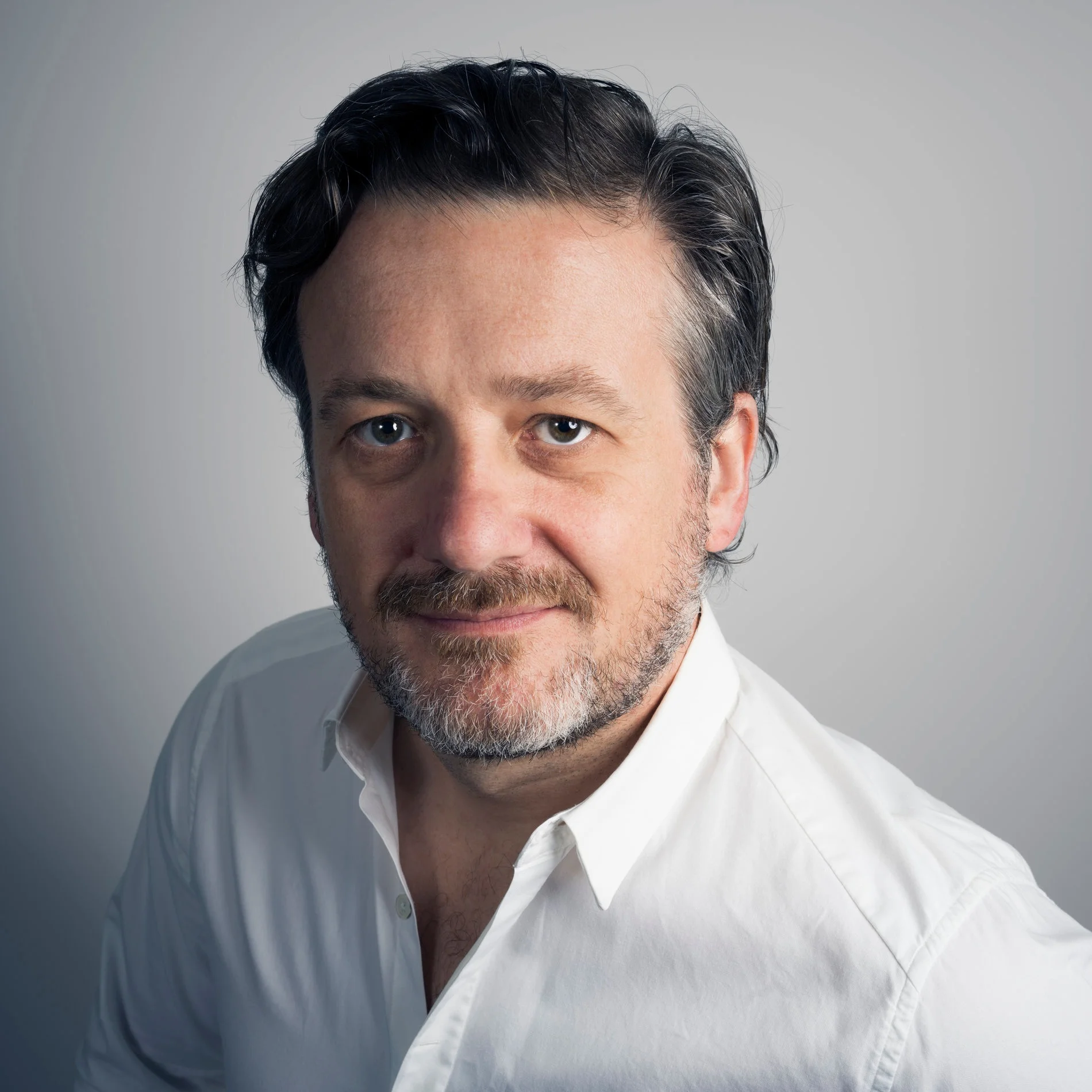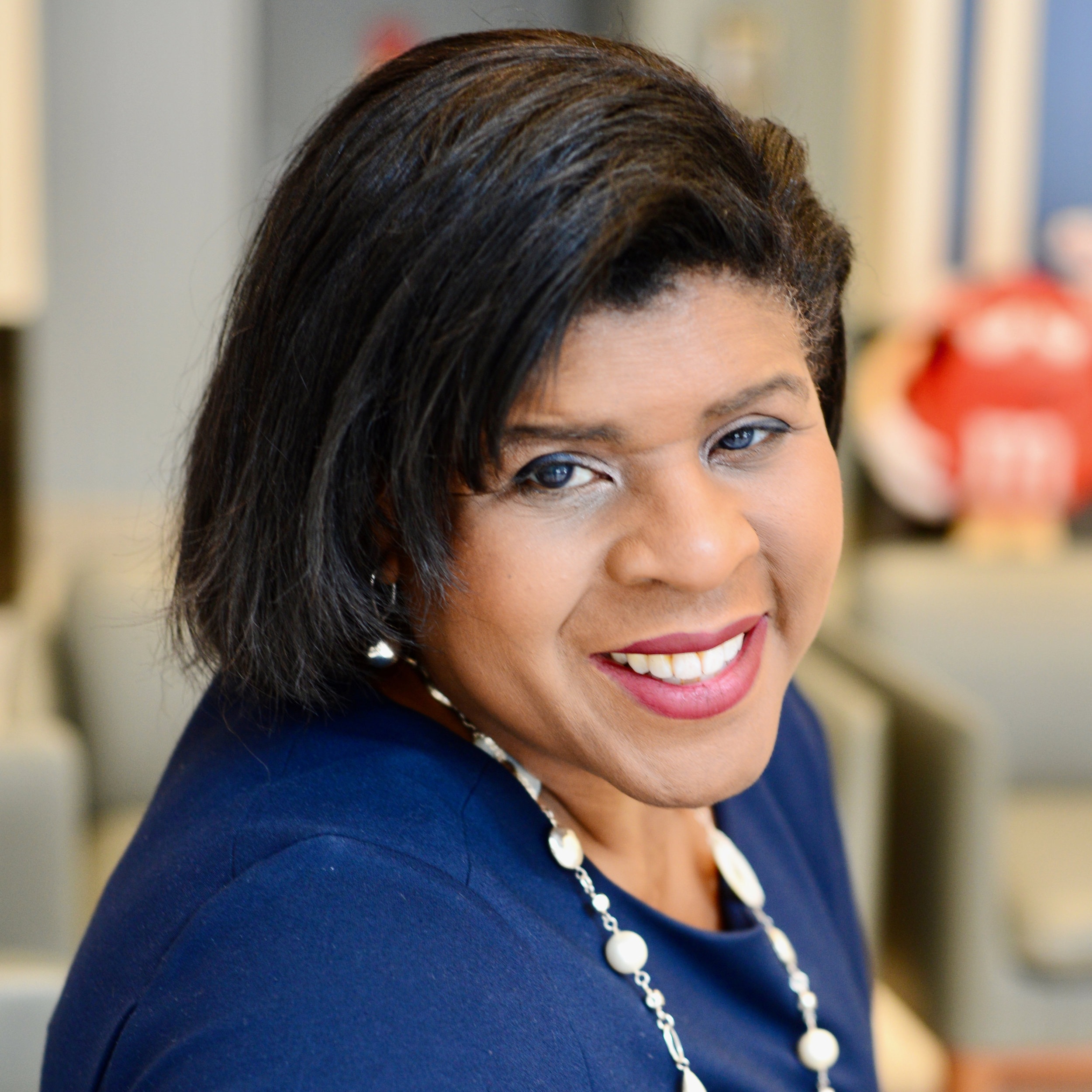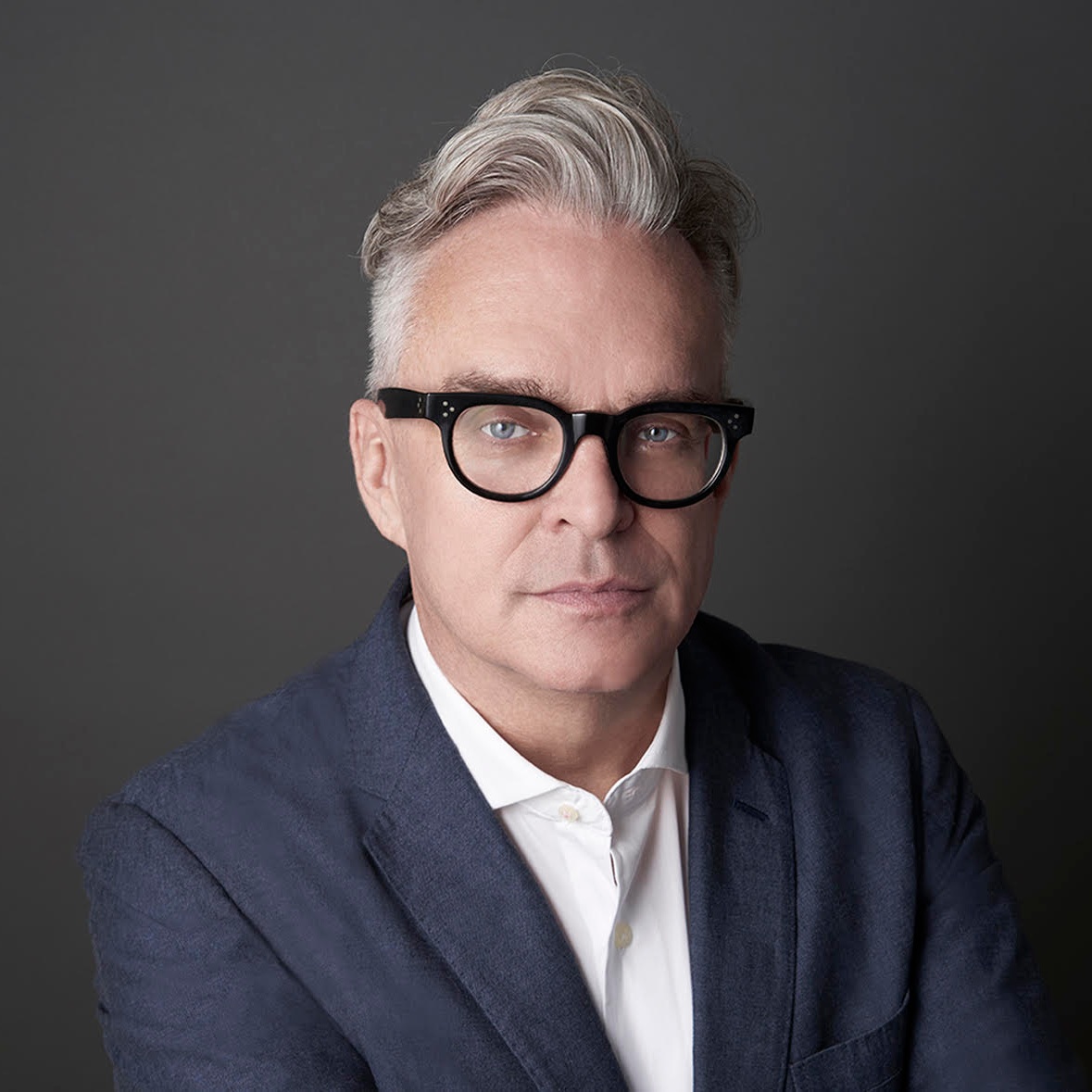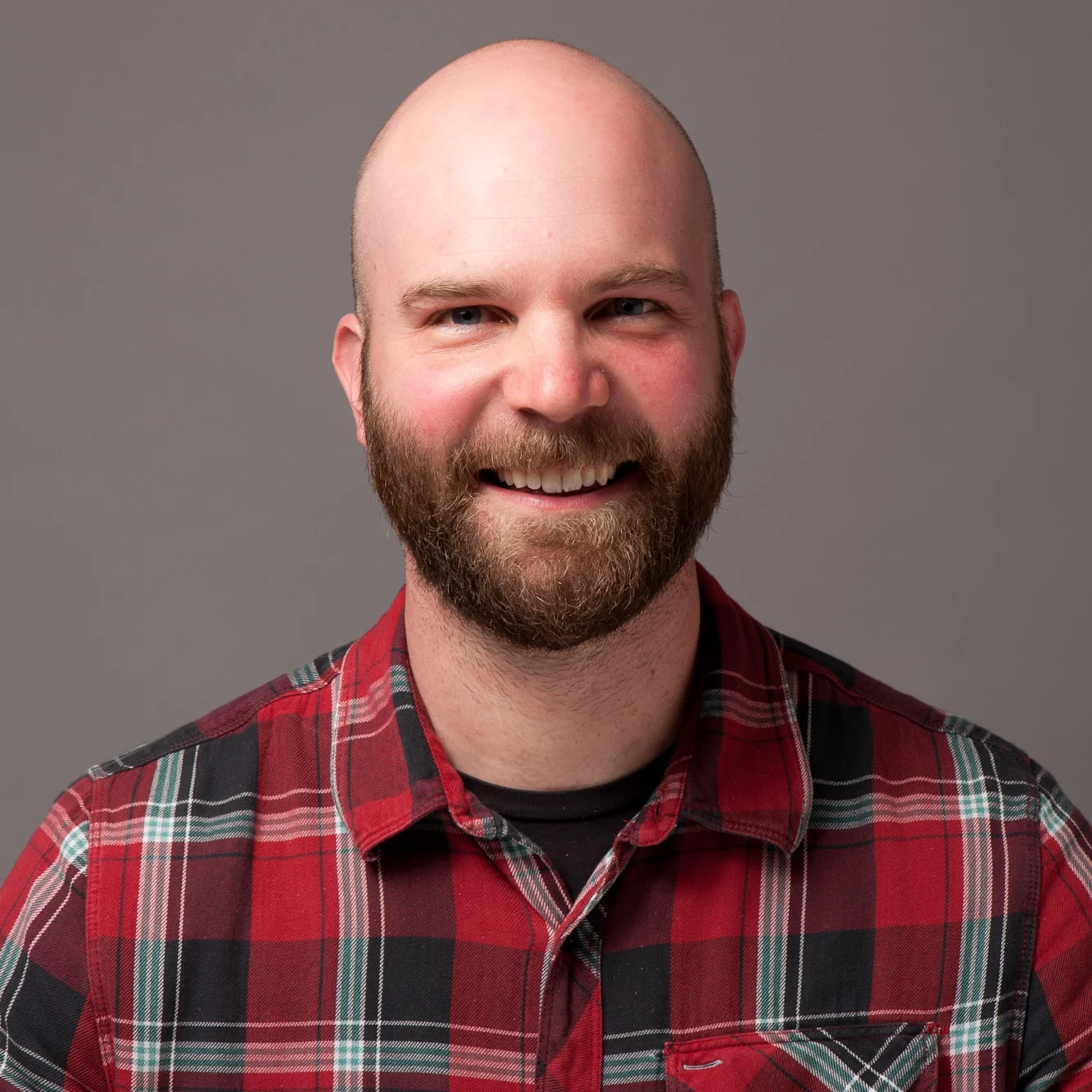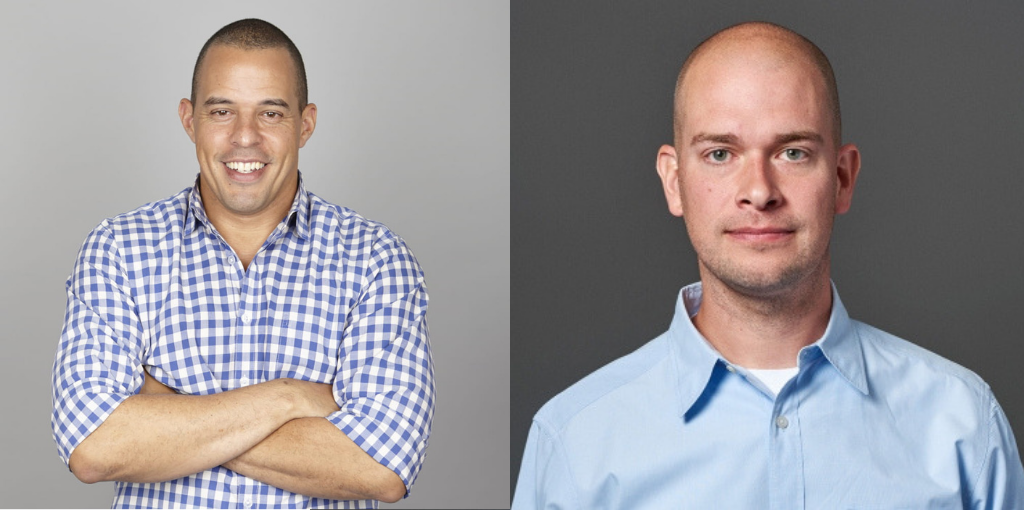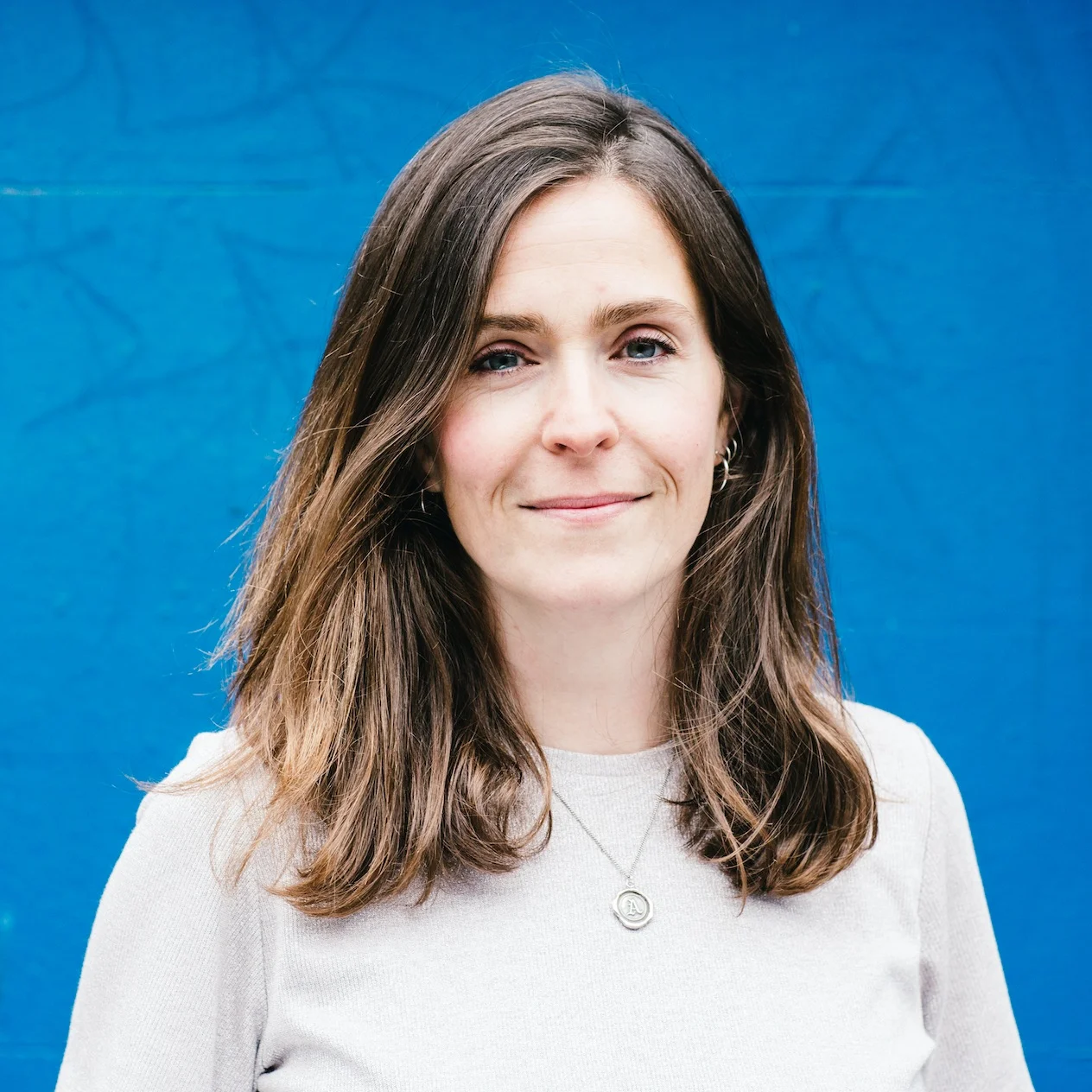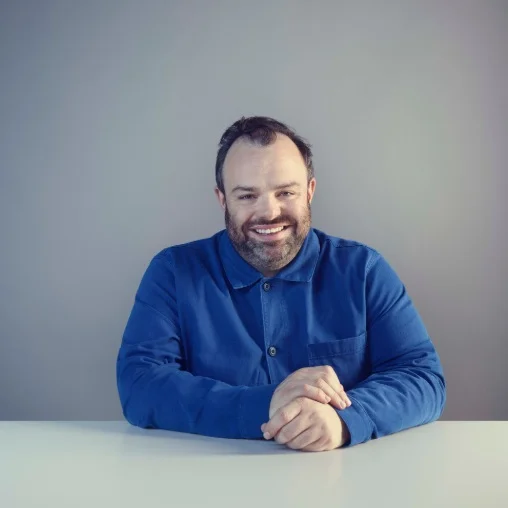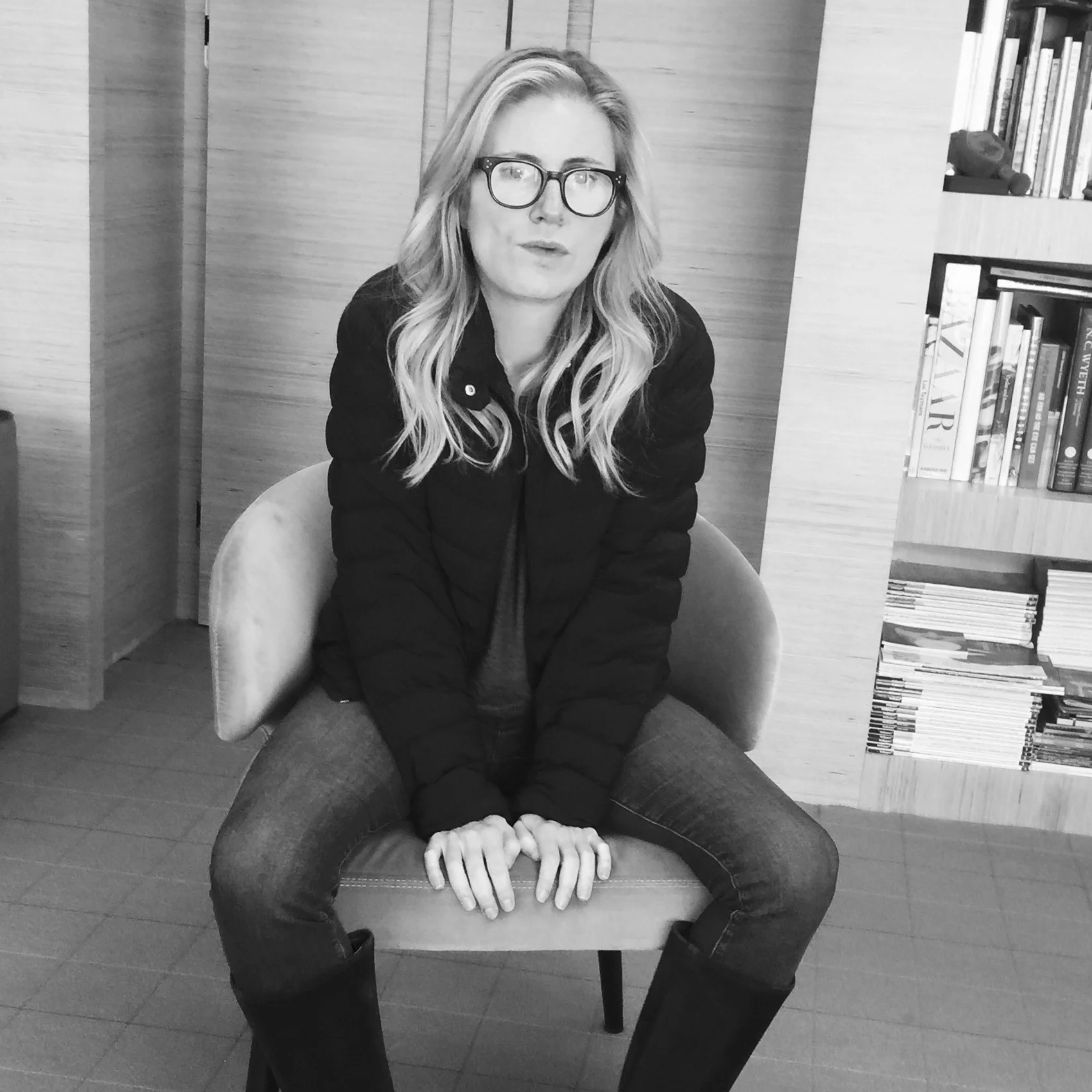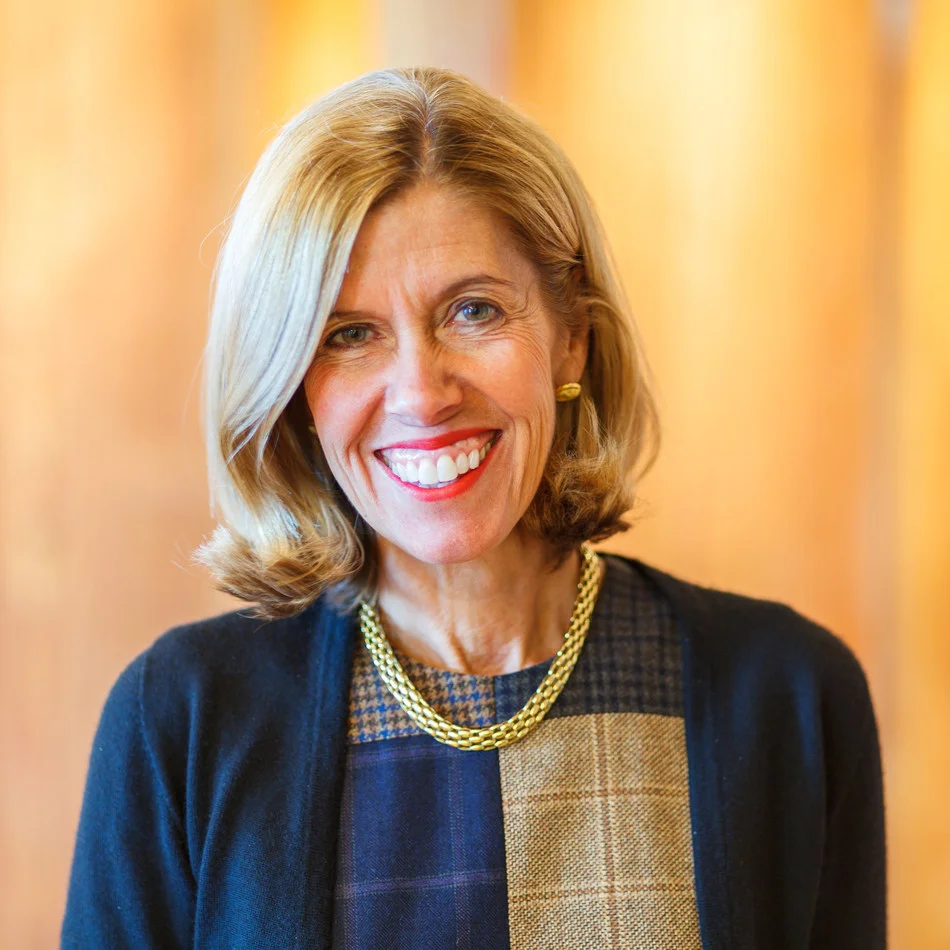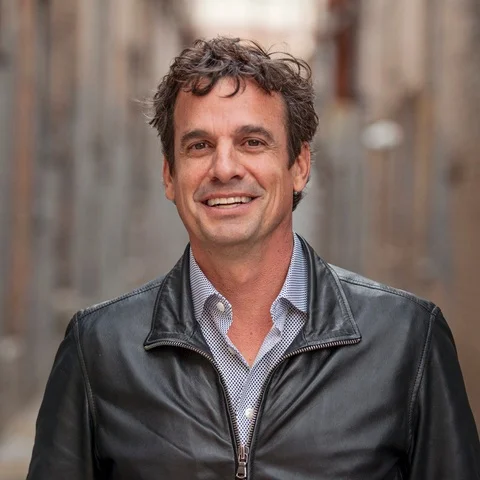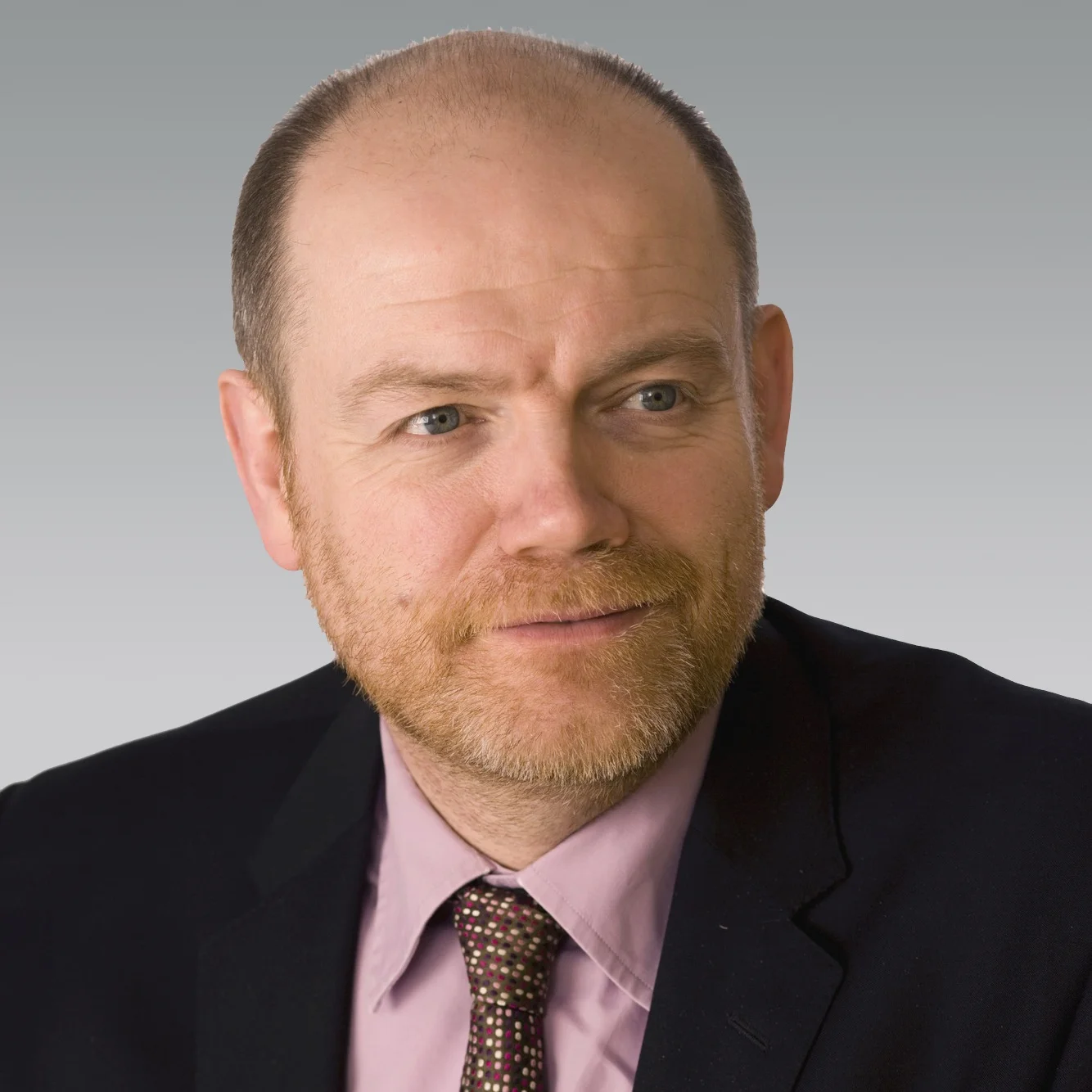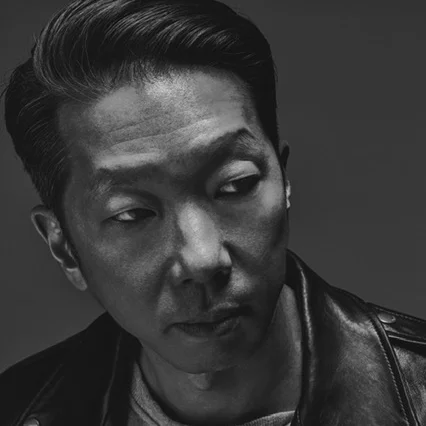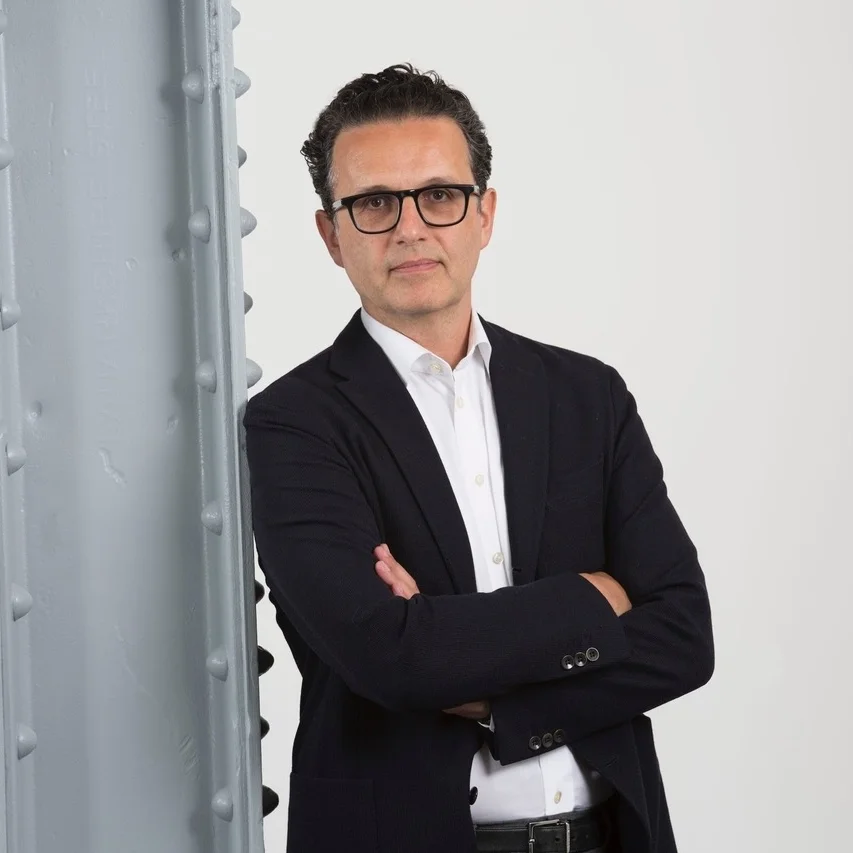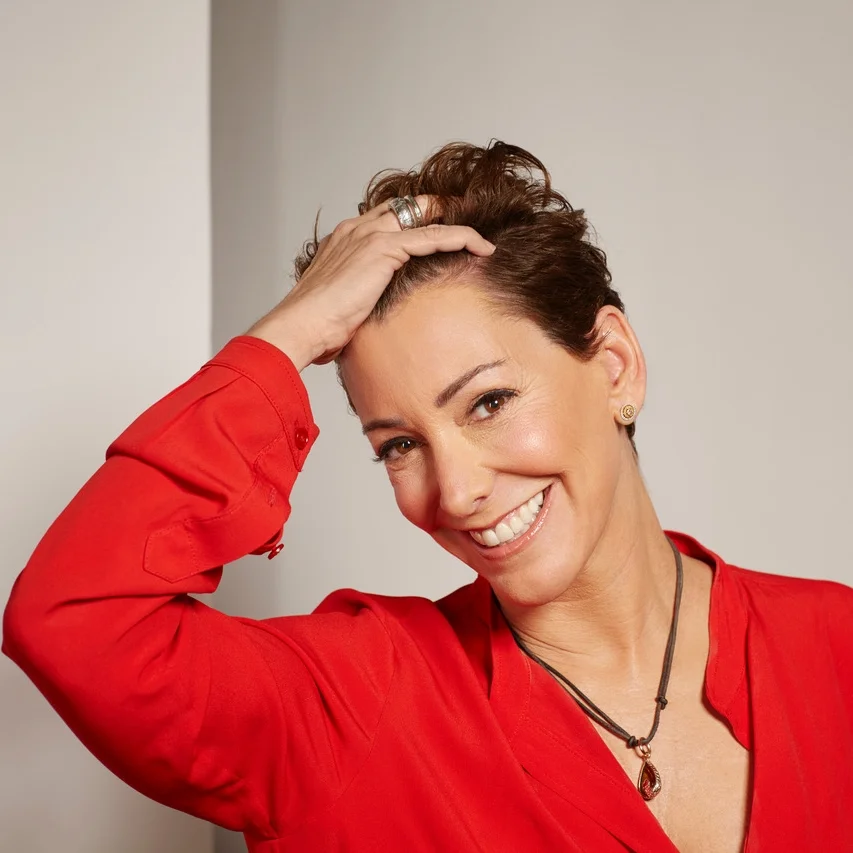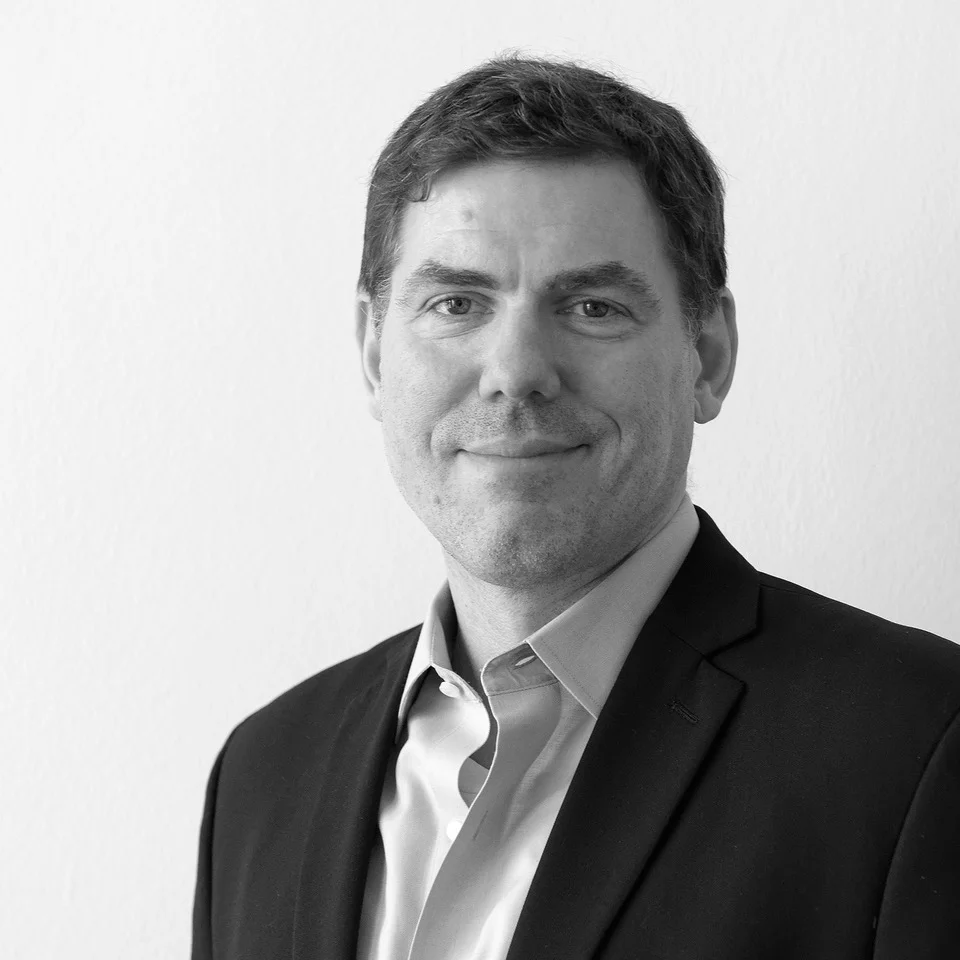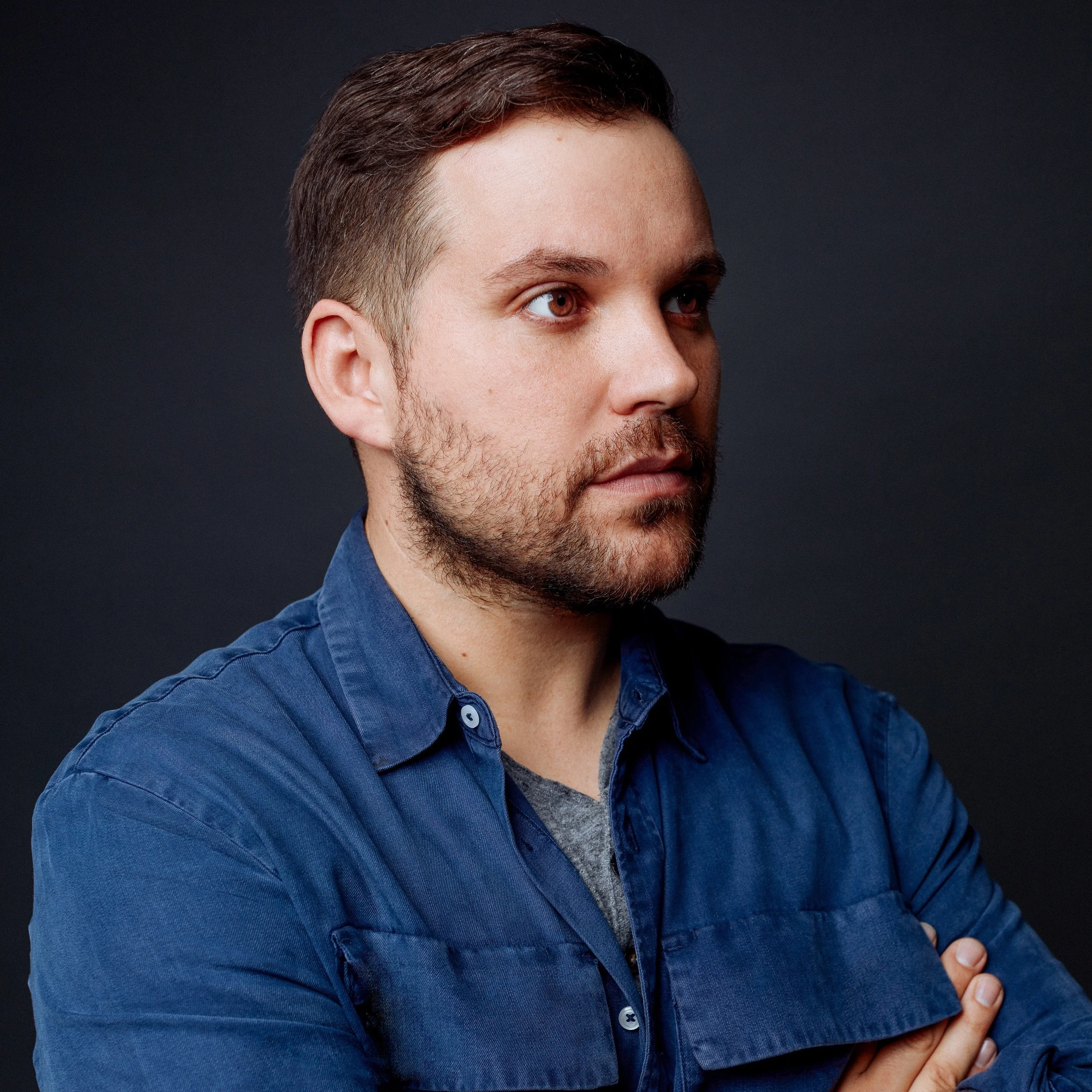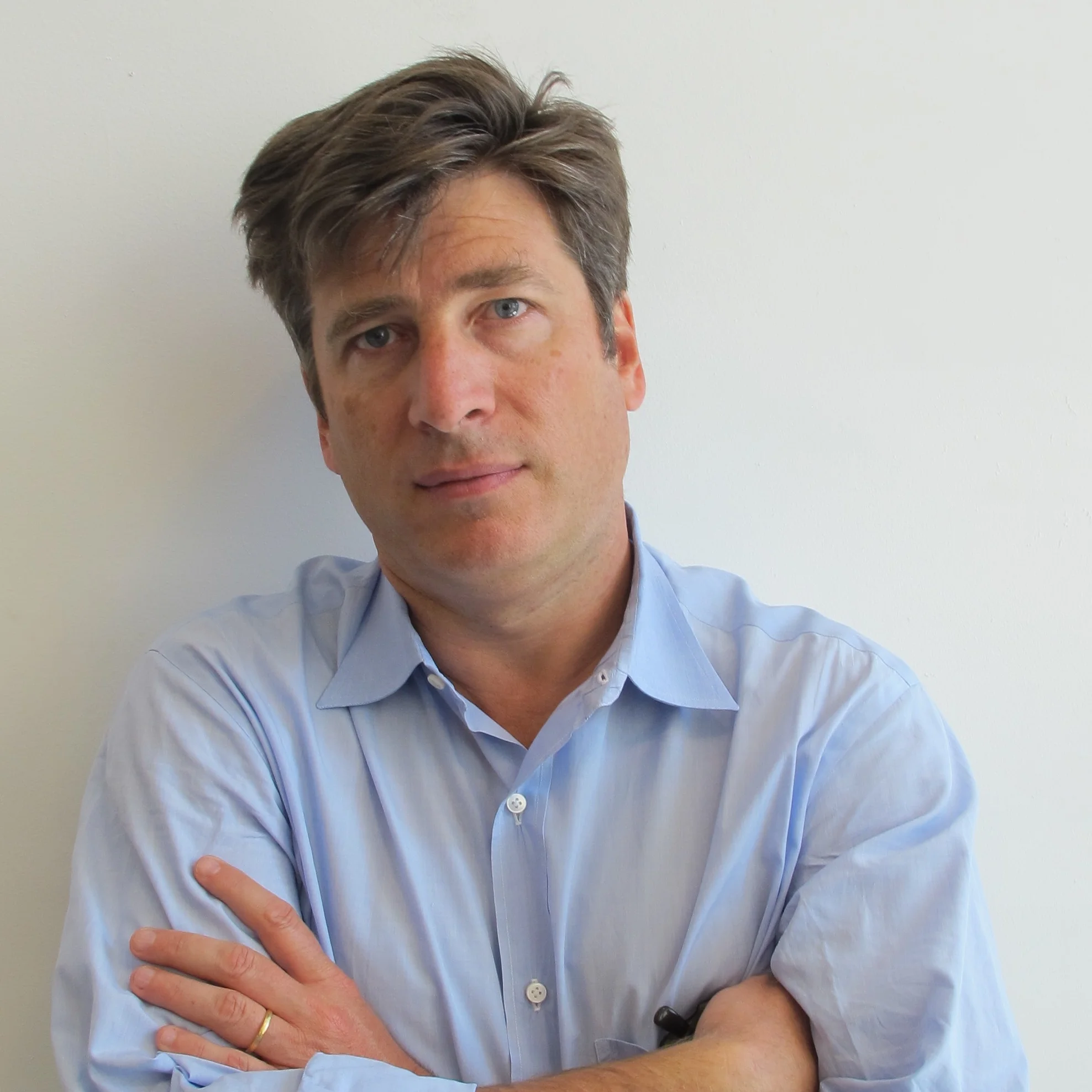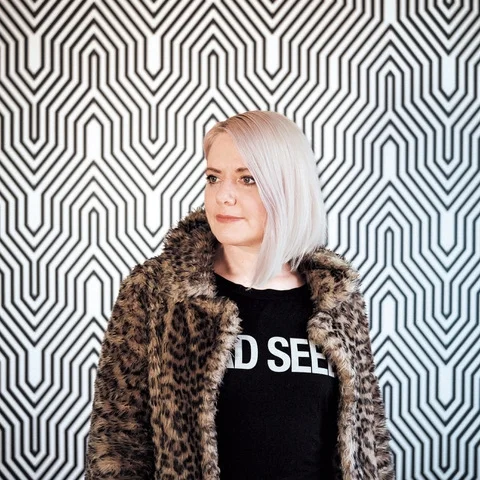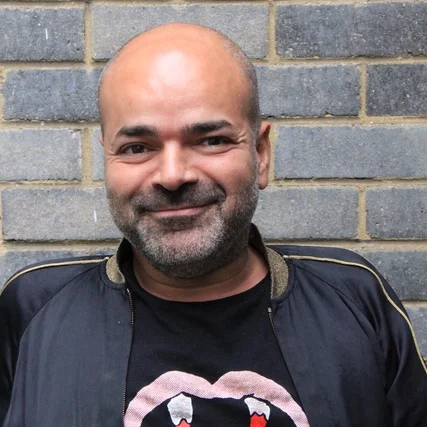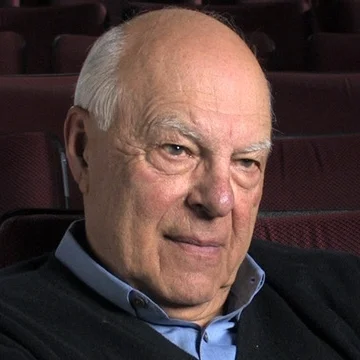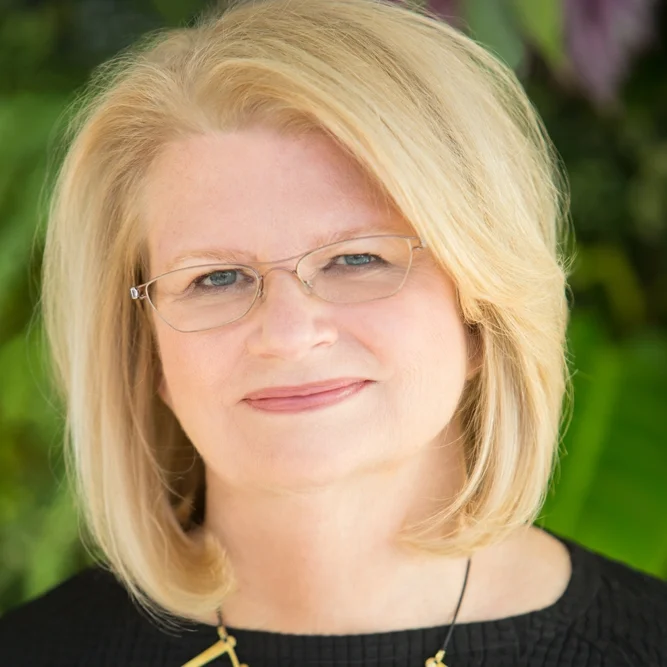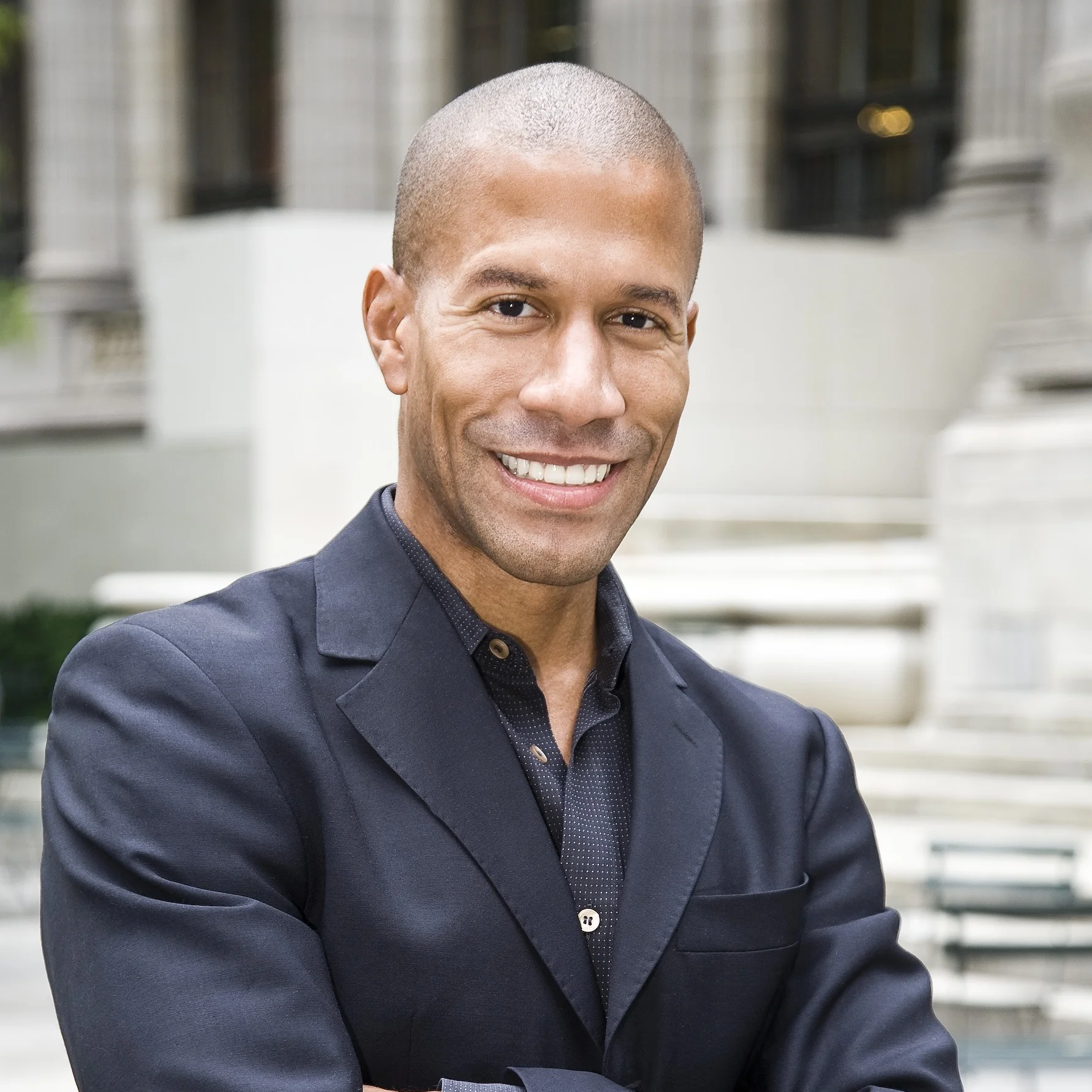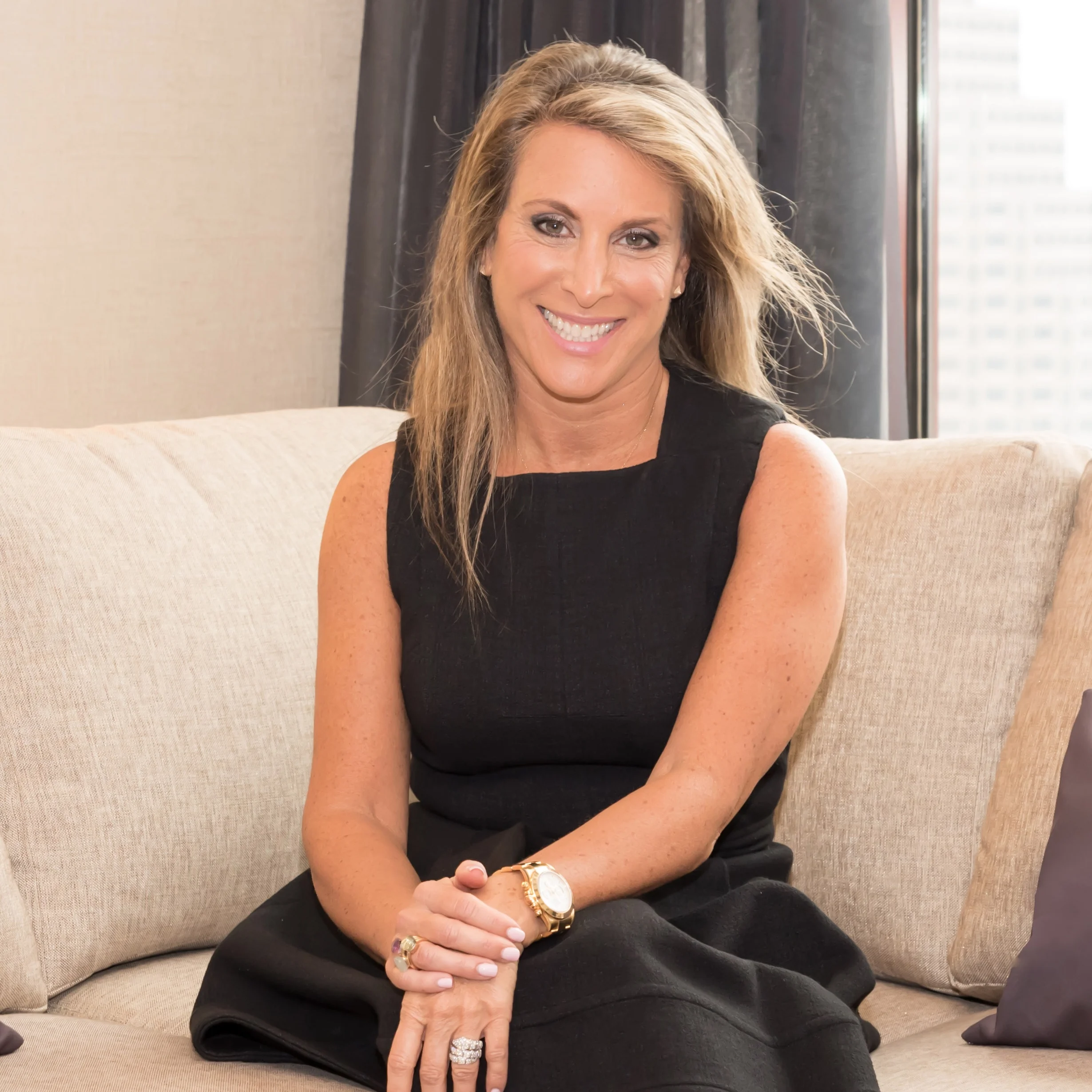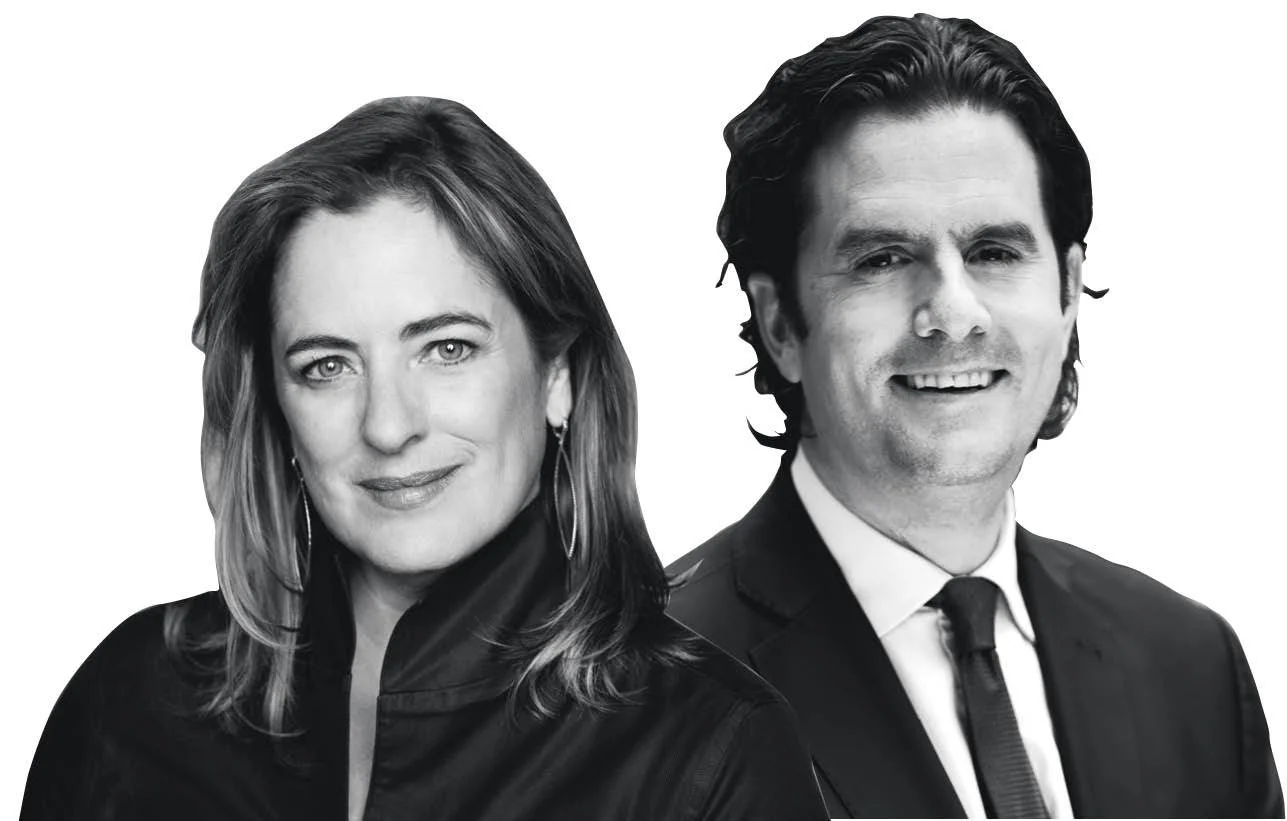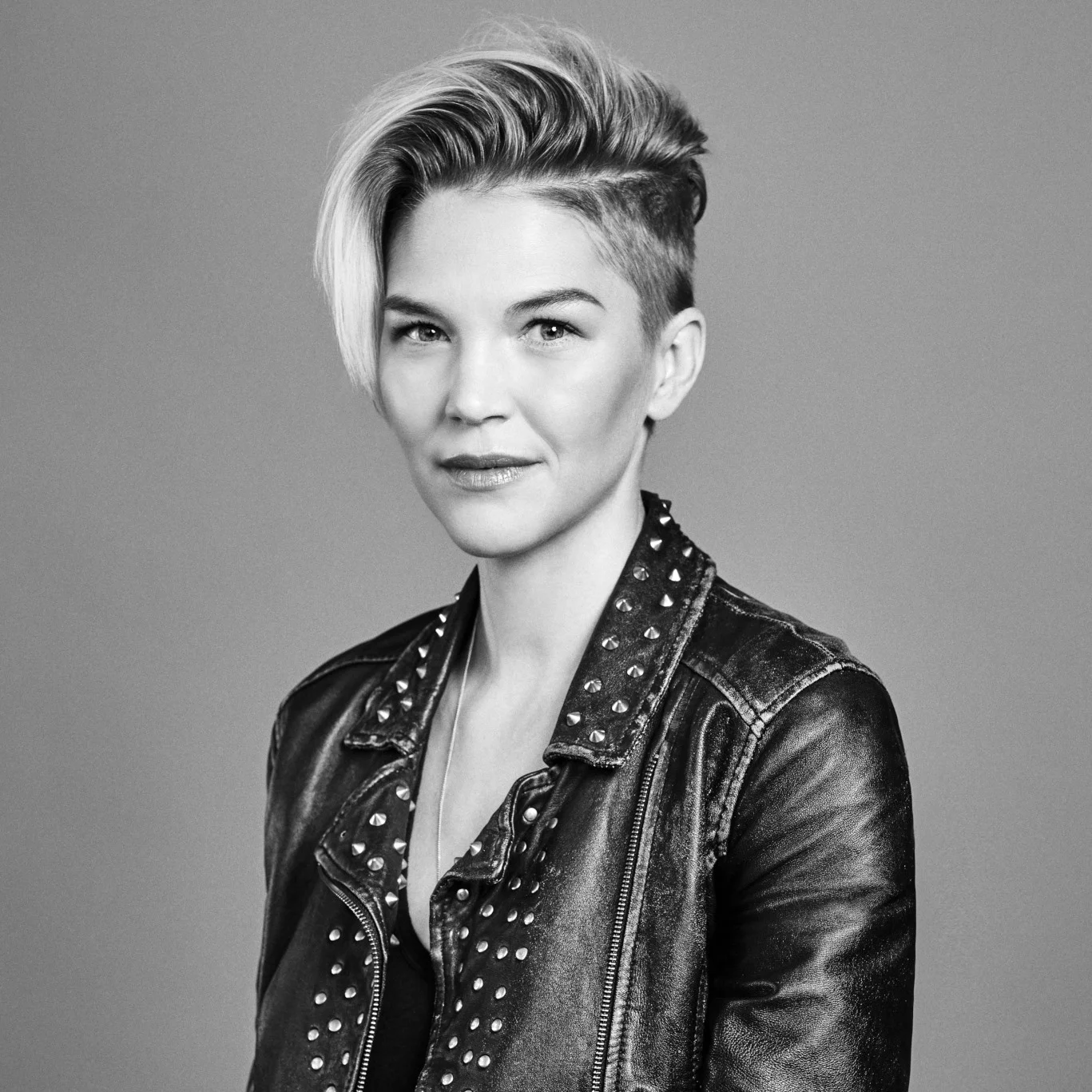Each week, we talk to leaders of the world’s most disruptive companies about how they’re jumping into the fire, crossing the chasm and blowing up the status quo. Leaders who’ve mastered the art of turning the impossible - into the profitable.
How do you unlock creativity and INNOVATION in others?
Episodes
How Does Courage Manifest For You?
In this episode of Fearless Creative Leadership, Charles Day speaks with Rocky Novak and Brad Surcey, co-CEOs of Zeus Jones, about partnership, independence, and leading through uncertainty — both inside business and outside it.
How Much Freedom Do You Give Your People?
In this episode of Fearless Creative Leadership, Charles Day speaks with Cat van der Werff, Executive Creative Director of Canva, about the paradox at the heart of modern leadership: setting clear standards while letting go of control.
What Kind Of Box Are You Building For Your People?
In this episode of Fearless Creative Leadership, Charles Day sits down with Aaron Starkman, Chief Creative Officer of Rethink and one of Adweek’s 100 Most Creative People in the World. But this is not a conversation about freedom from structure — it’s about why the most creative environments are built on the most thoughtful processes.
What Impact Are You Having?
Charles Day speaks with Andrés Ordóñez, newly appointed Global Chief Creative Officer of McCann. When this conversation was recorded, Andrés didn’t yet know his future — which makes this a rare portrait of a leader reflecting not on a title, but on who he is.
How Alive Do You Feel?
Charles Day sits down in London with the newly announced founders of Ace of Hearts — Rick Brim, Martin Beverly, and Polly McMorrow — for their first recorded conversation as partners. Over the past seven months, Charles has interviewed them individually while they prepared to build something of their own. Now, you’ll hear what happens when belief meets reality.
How Do You React When People Make Mistakes?
Creativity and innovation are unpredictable. They demand uncertainty and depend on failure. Failure is how we learn and without it, creativity dies.
If you measure the difference you make in terms of how you react when people make mistakes, you will have established the foundations on which their creativity is unlocked.
And that opens the door to ideas that no one has ever thought of before and to businesses that no one has ever seen.
Are You Creating Trust?
David Rolfe is the Head of Production at WPP. When David and I debated last year, whether one person could someday make a Super Bowl ad, it felt like a provocation.
This year, we both agreed it's an inevitability. Which brings with it a bigger question. How will we tell the difference between what's real and what's synthetic? And will it matter?
And that's the moment when trust becomes everything.
How Connected Do Your People Feel?
Phil Thomas is the Chief Creative Officer of Informa Festivals. They're the company that owns Cannes Lions. And Phil has recently been named as Chairman of Comic Relief.
One of the things that I've learned hosting this podcast is that the most powerful leaders rarely get remembered for their titles. They're remembered for how they made people feel.
What’s The ‘This’ In Your Business?
Neil Waller is the Co-Founder and Co-CEO of Whalar Group. They're a global creator company.
And as you'll hear, it was inspired by a conversation with and an unforgettable provocation from Sir John Hegarty.
But behind their success lies a characteristic that I find is often underappreciated and therefore in short supply, among most creative leaders. Commitment.
What Are You Investing In?
Jill Cress is the Chief Marketing and Experience Officer for H&R Block.
Before H&R Block, Jill spent 20 years at MasterCard. Now, a leader who spends most of their professional life working in financial institutions could easily build their success around the study of data, but the foundations of Jill's leadership are based on the most valuable investments of all.
When Do You Stop And Take A Breath?
If you've listened to Luther Vandross or Tina Turner, or Sting, or Chaka Khan, or Teddy Pendergrass, or Roberta Flack, then you've heard Lisa Fischer sing. If you went to a Rolling Stones concert between 1989 and 2015, you saw Lisa as the band's lead female singer join Mick Jagger on stage.
Leadership at its heart is the ability to unlock the potential of others, to make them feel more connected. The very best leaders do that by helping us to understand ourselves better, by helping us feel what we had never felt before.
Lisa is proof that you don't have to stand center stage to do that. You just have to be honest with yourself about where you get your energy from, and then let that energy flow.
Do You Welcome The Sounds Of Silence?
Shu Hung is the Global Chief Creative Officer of AKQA.
In a complicated world, Shu has learned that knowing who you are is the foundation on which leadership success is built.
Please come as you are. Words to live by.
What Should We Expect From You?
Nicole Parlapiano is the Chief Marketing Officer at Tubi. When she arrived two and a half years ago, Tubi was an eight year old business that had no brand recognition. Today, with the help of their ad agency, Mischief, the streaming service has 97 million active monthly users, up from 20 million in 2019.
Leading a challenger brand works best when you're willing to move fast and break things. And if you want the people that work for you to act with the same confidence, then they have to know who you are.
What Else Do You Want To Know About Yourself?
Sir Andrew Strauss is the former Captain of the England cricket team which he led to become the number one team in the world for the first time in England's history. He then became England's Director of Cricket and he's recognized as the architect of the country's first ever one day World Cup victory.
In 2019, he was knighted by Queen Elizabeth II for his services to charity, sport, and cricket.
Being captain of a cricket team requires the same skills needed to run a business. Amplified.
Who Do You Trust?
Jim Stengel is the former CMO of P&G, and he's now a hugely successful author, speaker, coach, consultant, and advisor. He's also the host of the brilliant CMO Podcast.
In our conversation, Jim and I started to lay the framework for how we think that leadership is going to have to evolve as the confidence in most institutions, including government, continues to deteriorate.
How Will The Best Leaders Lead In 2025?
This episode is designed as a provocation, an inspiration, and a roadmap for the leaders of businesses, for whom unlocking creative thinking is critical.
What Does Your Company Reject?
Karl Lieberman is the Global Chief Creative Officer of Wieden + Kennedy.
To unlock creativity and unleash its power to maximum effect, you have to be willing to break the norms, to encourage the irrational and sometimes even the absurd.
You have to reject predictability for possibility.
And when you're yelled at, because no one has ever done it like that before, you have to be willing to shrug.
What Are You Willing To Compromise?
Lina Polimeni is the Chief Corporate Brand Officer at Eli Lilly and Company. This is a business whose work is often the difference between life and death, where they are trying to cure cancer, and where the outcome is very personal.
No one can lead effectively without compromise.
But what we choose to compromise has a huge part to play in whether we’re successful.
Are You Centered?
Kerry Sulkowicz is the Past-President of the American Psychoanalytic Association, and the Founder and Managing Principal of Boswell Group. They provide leadership advice to boards and CEOs.
Leadership is sometimes about taking action and it is sometimes not.
But it is always about being centered.
What Is Your Pain For?
Taban Shoresh is the Founder of The Lotus Flower, a UK-based charity that supports women and girls that have been displaced by conflict, and helps them to build sustainable futures. Since 2016, the charity's projects have impacted more than 60,000 women, girls, and community members.
She has experienced staggering trauma, she has known realities that I'm sure I would not have survived, and she has taken all of that pain and turned it into creative leadership of the most consequential kind. As you'll hear, for reasons both global and personal, she's in a hurry.
Is That Good?
Heather Freeland is the Chief Brand Officer at Adobe, a business that, as Heather describes, is undergoing significant change to prepare itself for the future to come, and the one that is already here.
If human beings are to create a dividing line that AI can not cross, the question, “Is that good?” may be the beating heart on which that barrier depends.
Why Are You Doing What You’re Doing?
Gabriel Schmitt has just celebrated his one year anniversary as the Global CCO of Grey.
He has learned over his career one of the most important leadership lessons that I think often gets overlooked.
The importance of context.
How Well Do You Know Yourself?
Lisa Smith is the Global Executive Creative Director at JKR.
When you meet Lisa, her energy is infectious. As you’ll hear in our conversation, she wants to make a difference.
She also knows herself well enough to have learned that her energy sometimes needs an adapter.
What Direction Are You Going?
Nils Leonard, one of the co-founders of Uncommon - the award winning global creative studio - has been a regular guest on this show since I started Fearless seven years ago.
In all of that time, I’ve wondered about his partnership with his two co-founders, Natalie Graeme and Lucy Jameson.
Why did they decide to go into business together? How does it work and what might get in the way?
What Lessons Have You Learned?
This episode features the return visit of Jon Cook, the Global CEO of VML. I interviewed Jon for the first time a year ago, eight months after he had died while going for a run in his neighborhood.
Today, he is the CEO of the world's largest advertising agency. We covered a lot of topics during our latest conversation, from the qualities that he brings as a leader, to navigating mergers, to the impact of AI. We also talked about a simple but powerful truth that I think a lot of leaders have a hard time remembering when they're facing stressful situations - that we are already better than we think.
What Will Be The Impact Of AI On The Creative Industries, And How Can We Meet This Moment?
This is the final episode of my series of interviews over the last few weeks leading up to and through the Cannes Lions Festival of Creativity.
It offers a map for the future based on those conversations, and observations of the speed of change.
Where Does Ideation End And Production Begin?
David Rolfe is the Global Head of Production at WPP. Dave is the most provocative and disruptive thinker about production that I know.
As the week at Cannes unfolded, it became clear that this series wouldn't be complete without a conversation about production.
Does Your AI Do What You Need It To Do?
Adam Tucker is the Global Account Lead at WPP for Mondelez, and he reached out to me after listening to the first few episodes in this series. He pointed out that while we were focusing on how AI will impact the process of how the creative industries work, we hadn't talked about how it is already changing the work itself.
Are You Willing to Dare?
Sir John Hegarty is the Co-Founder of Bartle Bogle Hegarty and one of the most original thinkers of the last 40 plus years. At a time when the future is waiting to be invented, like never before, Sir John's description of the atmosphere that leaders need to create is time tested. Only time will tell whether it is timeless.
What Is It?
Tiffany Rolfe is a mother, as well as the Global Chair and Global Chief Creative Officer at R/GA. I asked Tiffany to come back on the show because she is, as you'll hear, a self described tech optimist. She's also one of the most original thinkers that I know.
What Do The Artists Think?
Jamie Gutfreund is the Founder of Creator Vision, a company that she describes as helping brands bridge the gap between the practice and the promise of the creator economy.
Is it conceivable that AI itself might give us the clues to how AI is going to change the world as we know it? Jamie thinks it's possible, if we look at it through the right lens. The artists' lens.
What Are You Fed By?
Nils Leonard is the Co-founder of Uncommon, a global creative studio based in New York, London, and Stockholm. I invited Nils into the series because I suspected he would have a strong point of view about what AI is, and isn't, when it comes to creativity.
Are You Aiming High Enough?
Yasu Sasaki is the Global Chief Creative Officer of Dentsu. His company has a presence in over 145 countries and regions, and they've been working with artificial intelligence, in one form or another, since 2011.
One of the main questions facing the creative industries is which companies will see AI as an opportunity to stretch the boundaries of human creativity.
In theory and in practice, we can both raise the bar and lower cost.
But we must be careful how we do it.
Are You Seizing What Is Starting?
Asmita Dubey is the Chief Digital and Marketing Officer of L’Oréal.
If your company believes in seizing what is starting, if you operate from a foot forward perspective, if you are relentlessly curious and consistently committed to the belief that creativity and innovation are all that separates you from your competitors, then the size of your company does not matter.
Big or small. Old or new. You can seize what is starting and define the future on your terms.
Can You Imagine?
PJ Pereira is the Founder and Creative Chairman at Pereira O’Dell.
The enormity of the gap between the normal as we understand it today and what we will demand as normal tomorrow is usually beyond our imagination to see or to predict or to project.
PJ brings those limitations of our imagination to life through a vivid and unforgettable example.
Are You Leading, Following Or Getting Out Of The Way?
For the next five weeks leading up to Cannes, we’re going to focus our study of leadership through a single lens. The impact of Artificial Intelligence on the Creative Industries.
We start with a conversation with Nick Law, who is Creative Chairperson at Accenture Song.
On his Cannes speaker profile, Nick says that he believes all technology needs creativity to make it human, and all creativity needs technology to make it real.
Which Two Things Are True At Once?
Robbie Kaplan is a lawyer and the founding partner at Kaplan Hecker & Fink LLP. She is best known for successfully challenging a key provision of the Defense of Marriage Act. Today, gay marriage is legal in America because Robbie Kaplan stood in front of the Supreme Court and argued for it.
Recently, she was E. Jean Carroll’s lawyer in both of her successful lawsuits against Donald Trump.
And among Robbie's many awards is one from The Financial Times naming her the “Most Innovative Lawyer of the Year”.
What Is Your Leadership For?
Senator Kirsten Gillibrand is the Junior Senator from the State of New York.
Running for public office places you in a spotlight that is white hot. Being clear why you’ve made the choice to run in the first place is table stakes for creating the life you want to live and the legacy you want to leave behind.
What Do You Think And Why?
Tom O’Keefe and Jeff King are two of the four partners who have just merged their respective businesses, OKRP and Barkley.
When we are clear about why we think what we think, when we are free of insecurity or hubris or ego, then we can assess an alternative path with an open mind.
Mergers provoke the need to lead through this lens.
How Vulnerable Is Too Vulnerable?
Anselmo Ramos is the Co-Founder and Creative Chairman of GUT, a global independent creative agency that’s headquartered in Miami, and with six other offices around the world.
How vulnerable is too vulnerable?
The answer, of course, depends on the culture that you have created. If your culture is based on deep and enduring emotional trust, you give people the ability to show up as complex, multifaceted humans, to show up as whole beings.
Are You Conscious Of Your Choices?
Kara Swisher is the most effective and successful tech journalist of our lifetimes.
In a world of white men with giant bank accounts and even bigger egos, how did this 5 feet 2 inch, self-described, liberal lesbian mother of four, end up as the most influential and insightful reporter of the technology age?
As you’ll hear, Kara puts it down to curiosity, confidence, and understanding the choices available to her.
This week’s guest is Avery Baker. She’s the former President and Chief Brand Officer of Tommy Hilfiger.
Six months after she stepped down from her position at Tommy, we talk about her desire to empower others and why it's an essential skill to demonstrate as a leader.
We also discuss the new leadership paradigm that we have developed together for creative and innovative businesses. We call it 'Partnership Leadership'.
Who Lit The Fire In Your Life?
Dr. Jerry Gustafson is the Professor Emeritus of Economics at Beloit College and the Founder of the Center for Entrepreneurship in Liberal Education at Beloit, known as CELEB.
Jerry was also my faculty advisor when I was an undergrad, and the person who, without question, lit the fire in my life.
What Do You Think Needs Doing?
This week’s episode is a re-publication of my interview with Cecile Richards from March 2020. It was the last in-person interview I recorded before the world shut down two days later.
For those of you that don’t know her, Cecile Richards is one of the most extraordinary leaders of our time. Of any time, actually.
Public service and activism are part of her DNA.
Are You Waiting For Someone Else To Give You Permission?
Greg Hahn is the Co-Founder & CCO of Mischief USA.
What if we didn’t wait for someone else’s permission to uncover our own potential?
What if we stopped fitting in and looked for ways to stand out?
What if we expressed ourselves, fully and openly? Who might follow us and where might we lead them?
In Memoriam
I met Alain Sylvain only once. We recorded a podcast at the very end of October in 2018.
The news of his tragic death last month has had a profound impact on many people I know.
I hope that this conversation will let those of you that knew him well, add to your memory of him.
And for those of us that didn’t, I hope it will help know him a little better.
What Do You Have A Responsibility To?
This week’s guest is Marty Baron. He’s the former editor of the Boston Globe, and the former executive editor of the Washington Post. The newsrooms under his leadership won 17 Pulitzer Prizes.
His new book, Collision of Power: Trump, Bezos, and the Washington Post, describes his 8 year leadership journey during one of the most tumultuous times in the paper’s history.
Along the way, he has learned a staggering amount about leadership.
Can You Hear Yourself Think?
DeEtta Jones is the founder of one of the world’s leading EDI training and strategy consultancies.
She’s seen leadership and leaders through many lenses. And she’s learned that the best of them are not necessarily the ones making the most noise.
Are You Taking Care Of Yourself?
Nancy Hill is the CEO of Marcus Thomas, and the former CEO of the 4As.
Nancy recently wrote an article for AdAge. In the piece, she describes discovering that she was suffering from Post Traumatic Stress Disorder.
How do you build a lasting foundation for your leadership that allows you to unlock your own potential and the potential of others?
What Triggers You?
Kate Rouch is the Chief Marketing Officer at Coinbase.
October was Mental Health Month.
But the truth is, every month should be.
And when you’re the leader, every month is.
What Do You Know About Who You Want To Be?
Rick Brim is the Global Chief Creative Officer at adam&eveDDB.
Rick was on the podcast four and half years ago in early 2019. I called that episode, “The ‘I Don’t Know’ Leader”, to highlight Rick’s point that it’s okay for leaders not to know the answer every time.
But Rick has been changed by the last four years.
What Makes Great Happen?
Robert Brunner was the Director of Industrial Design for Apple, a partner at Pentagram and the chief designer of Beats by Dr. Dre, before becoming the Founder of Ammunition. He was named one of Fast Company’s “Most Creative People in Business,” and his work is included in the permanent collections of the Museum of Modern Art, Cooper Hewitt, Smithsonian Design Museum, and the San Francisco Museum of Modern Art.
Design is the art and science of knowing what to start and when to stop.
In that respect, it’s very much like leadership.
How Do Your People Know You’re Here For Them?
This week’s guest is Yves Briantais. He’s the VP of Marketing Asia-Pacific for Colgate-Palmolive.
We recorded this interview at the end of a long week at the Cannes Lions Festival of Creativity.
There are a number of areas that I could have focused on for this introduction.
But the one I want to highlight is an issue that I hear about from so many leaders today.
Where they lead from.
How Much Of Your Real Self Are You Showing?
DJ Jackson is the Vice President of Brand at EA Sports. They’re a division of Electronic Arts and one of the world’s largest developers and publishers of sports video games.
Leading a business that exists in the digital world means straddling artificiality and reality. Information and emotion.
Which is a lot like leadership.
Who Is Helping You Be You?
Liz Taylor is the Global Chief Creative Officer at Ogilvy.
Everyone has a story. Liz’s story, as you’ll hear, has a traumatic beginning.
Our past shapes us. But it need not define us.
Only we do that.
We just have to ask for help.
How Does Your Leadership Make People Feel?
Ajaz Ahmed is the Founder and CEO of AKQA. AKQA employs 6,500 people around the world and receives about 80,000 job applications a year.
Ajaz’s definition is the first time that I’ve heard a description that made me understand what a truly inclusive company culture would feel like. And I think that matters.
Do Your Weaknesses Shape You Or Stop You?
James Townsend is the Global CEO of Stagwell Brand X Performance Network and the Global CEO at Assembly.
Knowing yourself, your strengths and your weaknesses, has never been more critical to your success and to your happiness.
It is rare, I find, for someone to have the kind of clarity about themselves that James describes.
What Do You Need To Know And When Do You Need To Know It?
Sir Martin Sorrell first appeared on the show in 2019, and in that conversation, I was struck by his pride in building companies that provide the livelihoods for hundreds of thousands of people.
Sir Martin is a polarizing figure. But he is, of course, much more human than his public persona has shown over the years.
What do you need to know and when do you need to know it?
Those questions sit at the heart of modern leadership.
What Would You Regret?
Jon Cook is the Global Chief Executive Officer of VMLY&R.
Jon died last October. As you’ll hear, the fact he is still here to have this conversation required a set of circumstances so improbable that they would have strained the credibility of your favorite episodic drama.
But the fact he is still here, gives him, and those that meet him, a living and breathing teacher of what will really matter to us, when we reach our end.
How Fast Are You Going?
Andréa Mallard is the Chief Marketing & Communications Officer of Pinterest.
I interviewed Andréa at Cannes, in the lobby of the Majestic Hotel. Her energy struck me, the moment she arrived. Her perspectives about her life and her leadership have stayed with me, long after we said goodbye.
How Do You Feel?
Tim Mapes is the Chief Marketing and Communications Officer for Delta Airlines.
Early in our conversation, it became obvious that Tim is very willing to look at himself honestly and at his own behavior with self awareness.
I asked him where that came from. And he said, simply, counseling.
What Terrifies You?
Today’s episode was recorded last week at Cannes in front of a group of 37 young creatives from 29 countries who had won places to the Roger Hatchuel Student Academy.
It’s the most intimate expression that Simon or I have ever shared publicly of who we are.
Our hope is that this helps to catalyze a shift across the creative industries of how leadership is evaluated and what it is fair to expect of each other - and ourselves.
Are You Looking Backwards Or Forwards?
Keith Cartwright is the Founder and CCO of CARTWRIGHT, an agency built on the principle of Creative Audacity. He is also Co-Founder of SATURDAY MORNING, an organization built on using creativity to shift negative perceptions in the African American community.
When we understand the journey and the influences that have brought us to this moment, when we know where we want to go, and we are clear and conscious about the obstacles and limitations and beliefs that we place in our own way, then we become a rare and powerful force.
Where are you on that journey?
How Creative Are You?
Morgan Flatley is the Global CMO of McDonald’s.
Creative thinking comes in many forms. And its value is unlocked exponentially when, as leaders, we gain the confidence to see ourselves as we truly are. Powerfully creative in our own right.
This does not make creative leadership a competition. It makes it an equation focused on the people that work for us.
An equation that says recognizing our own talent can make us even better at unlocking theirs.
How Do You Say Goodbye?
Brad Simms is the President and CEO of GALE Partners. They describe themselves as strategic storytellers.
The creative industries are a case study in dynamic organizations. Change is not just inevitable but essential.
In that environment, people will come and others will leave. And that is as it should be, both for personal growth and the growth of the business.
There are two variables in that equation. When they leave and how.
The question of when is for another day.
The question of how is as important. And often significantly more so.
What Are You Responsible For?
Emma Armstrong is the CEO of FCB New York. Most recently, the office was named Agency of the Year at the Clio Awards.
Creativity and innovation are fueled by trust. And trust happens when you believe that the person on the other side of the table, or the screen, cares - genuinely cares - about your well-being.
Brand, agency, employer, employee. Parent, child, friend. When both of us can put the other person’s interests first, well, that’s when the world is changed.
Are You Willing To Be Vulnerable?
This week’s episode is a rebroadcast of a conversation I had in January of 2020 with Marc Pritchard, the CMO of P&G.
In a pre-pandemic world, leaders with jobs as visible and demanding as Marc’s were not talking about the importance of being vulnerable very much.
His willingness to do so then stood out as so unusual - perhaps even unique.
What Are Your Priorities?
Most recently, Suzy Deering was the Global Chief Marketing Officer of Ford. Before that, she was the Global CMO of eBay. She’s held senior positions at Verizon and Home Depot. And she’s been recognized as one of Business Insider’s “Top 50 Most Innovative CMOs.”
The demands of those kinds of jobs can make you lose yourself.
Holding on to who you are and being clear about what really matters, does not happen easily - or by accident.
How Are You Creating Your Company’s Culture?
Melissa Waters is the Chief Marketing Officer at Upwork. They describe themselves as the world’s work marketplace.
Without the physical structure of an office to provide the container in which culture incubates, the responsibility to create those connections falls squarely on the leader.
How do you lead when a company’s culture is no longer built around physical space?
Who Are You?
Nicolle Pangis is the CEO of Ampersand. They describe themselves as a data-driven TV advertising sales and technology company.
Life is short. Your career is shorter. Live them both on your terms and you’ll be able to measure yourself against the most important set of data in the world.
Your own.
When Was The Last Time You Admitted You Were Wrong?
This week, we’re going back in to the archives for a conversation I had with Mark Thompson, early in 2019. Mark was the director general of the BBC before becoming CEO of the New York Times in 2012.
To me, his leadership is marked by a self-effacing honesty and personal courage.
Are You Happy?
Nils Leonard is the co-founder of Uncommon London. Nils has been on the podcast before.
I ask him back pretty regularly because every one of our conversations expands my understanding of leadership.
I think he keeps saying yes because each time he learns something about himself.
Are You Selfish?
Kerry Sulkowicz is the President of the American Psychoanalytic Association.
Taking care of yourself first is a requirement. A necessity if you are to become a leader capable not only of withstanding the pressure, but using it as a catalyst to drive the business upwards.
Only once you have taken care of yourself can you then, confidently and at scale, take care of everyone else.
What Are You Going To Preserve?
Madeleine Grynsztejn is the Pritzker Director of the Museum of Contemporary Art Chicago.
While we must fight the status quo, our future is built on the pillars of our past.
Which parts of the past do you need to let go of?
And which parts are you going to preserve?
What Terrifies You?
Marcel Marcondes is the Global Chief Marketing Officer for AB InBev.
Becoming the successful Global CMO of any major brand is a life’s dream for many people.
For the very best of them, being a Global CMO brings out the human being in you.
What Role Does Love Play In Your Leadership?
Devika Bulchandani is the global CEO of Ogilvy. And her view of leadership includes an impassioned belief that seemed so obvious to me once she said it but which I have never heard before.
How To Become A Better Leader In 2023
My first episode of the year asks the question, how can you become a better leader in 2023? The answers are drawn from a series of conversations I’ve had over the last three weeks with a wide range of experts.
What’s Your Big Goal?
This week’s guest is Carl Johnson. He’s the Executive Chairman and one of the founding partners at Anomaly.
If you go to the Anomaly website, it says, in block capitals, “A DEVIATION OR DEPARTURE FROM THE NORMAL OR COMMON ORDER, FORM OR RULE.”
In Anomaly’s case, this is not hyperbole. The company pushes boundaries and defies norms all the time.
It’s one of the reasons that yesterday Adweek named Anomaly the US Agency of the Year.
How Do You Find The Right People?
Nick Law is the Global Lead for Design and Creative Tech at Accenture Song. He has led and unlocked creativity across thousands of people. He’s seen what works. And what doesn’t.
In my experience, the very best leaders understand three things. Their business, their people and themselves.
But not in that order.
Has Leadership Changed You? Or The People Around You?
Philippe Krakowsky is the CEO of IPG. He runs a company of 58,000 people across more than 100 businesses.
Too often, leaders over-complicate. Sometimes, the situation. Sometimes, themselves. That’s not surprising. Leadership is complicated at the best of times. And it’s easy to lose perspective.
But, even more challenging is what often happens to those around you when your new role suddenly changes the org chart relationship to them. When you now hold the power.
That’s when your ability to overcome your own uncertainty becomes critical so that you can evaluate their behavior towards you objectively.
Why Do People Follow You?
Life is filled with agency. The ability to write our own story. To decide who we want to be and then to act on that basis.
And once we do decide, then comes the really hard part.
To declare it.
To say out loud to people who we know will judge us, this is what matters to me, These are the expectations I have of myself and the standards to which I want to be held.
Who Do You Want To Be?
I say all the time on this podcast and in my work, we do not have to be defined by the past or the expectations of others. We can all decide who we want to be and act with intention to be that person.
Our future selves are waiting to be written, to be lived and be loved.
Don’t wait too long.
How Much Do You Know About What’s Happening At Your Company?
Mark Read is the CEO of WPP. At last month’s Cannes Lions International Festival of Creativity, WPP was named the most creative company of the year.
He took over the role in 2018, in one of the most publicized and dramatic changes in leadership the advertising and marketing industries have ever seen.
Taking the company from those turbulent times to one of relative stability and success has required a realistic, pragmatic approach.
How Have You Been Changed By The Last Two Years?
Simon Cook is the CEO of Cannes Lions.
Cannes is an institution. One built on in-person contact. Like many organizations dependent on human contact, it has struggled in the face of a two year long, global pandemic.
Creativity is fueled by confidence. The willingness to boldly go where no one has gone before.
But is is shaped and guided by humility.
What Questions Are You Asking?
Gareth Kay is the SVP of Brand at Happily Health. Before that, he’s been the Head of Strategy at Goodby Silverstein, and the Founding Partner at Chapter Creative Studios.
Gareth is a relentlessly curious soul.
When all the answers are out of date, or from a different reality, the only choice we have is to start asking more and better questions.
What Kind Of Company Are You Building?
Karl Lieberman and Neal Arthur are respectively the Global Chief Creative Officer and Global Chief Operating Officer of Wieden + Kennedy.
Neal and Karl stepped into their global roles seven months after the beginning of the pandemic. How do you lead a culture opposed to rules through a time when there are no rules?
Creativity is the world’s most powerful force. It’s time to build flexible businesses that unleash it. It’s time for leaders to let creativity loose.
Are You Taking Care Of Yourself?
Antonio Lucio was the first Global Marketing and Communication Officer at Visa. The first Global Chief Marketing and Communications Officer at HP. He was Facebook’s first Chief Marketing Officer. And left there to become the Founder and Principal of 5S Diversity.
He is known as an incredibly empathetic leader.
As you’ll hear, that may be his greatest accomplishment.
Where Does Your Impact End?
Laurie Howell and Toby Treyer-Evans are Executive Creative Directors at Droga5 New York and have been partners for a very long time. They have also been responsible for important and extremely impactful work, including the New York Times campaign called The Truth Is Worth It.
But as their careers evolve and the world changes, it is their impact on people in the immediate vicinity that has their attention.
How Does Your Company Fit Into Your Story?
Rishad Tobaccowala is a thought leader, author and one of the great provocative thinkers. His insights are drawn from his many years spent as the Global Strategist and Chief Growth Officer of Publicis Groupe and now from his work as an independent advisor to businesses across the world.
The tsunami of change brought about by a global pandemic will slowly recede, and the companies left standing will be those who stayed true to their stories and know the kind of people that can help write the next chapter.
How Do You See Yourself?
Daniella Pierson is the Founder and CEO of The Newsette. And the Co-Founder and Co-CEO of Wondermind. And she and her story are extraordinary.
It is a story of hope built on the determination of one remarkable woman to define herself and her life on her terms.
How Do You Greet Change?
Evin Shutt is the Chief Executive Officer of 72andSunny, a role she took on in March of 2020.
Taking on the senior leadership position of one of the world’s most creative and innovative companies at the very moment the world is shutting down will instantly reveal your relationship with change. Do you look for it and high five it?
Are You Really Here, In This Moment?
Lisa Kline is the Vice President of Communications for BreastCancer.org.
As a new definition of leadership rises from the disruption of the last two years, it’s worth pointing out that it contains one expectation that will accelerate the gap between the alright and the great leaders.
The expectation that you are present.
What Do You Want More Of In Your Life?
This week’s guest is Greg Hahn. He’s the Co-Founder & CCO of Mischief USA.
Life comes at us fast and in unexpected ways.
What we do with every day that we get is a choice between hoping for a better version of yesterday or acting to create a better tomorrow.
And the key to that is making sure we know what a better version of tomorrow will look like.
Where Does Work End And Life Begin?
Tiffany Rolfe is the Global Chief Creative Officer at R/GA.
Tiffany’s email signature reads, Mom and Global Chief Creative Officer.
The day is not only for work. The day is for living.
What that means is entirely for you to decide.
Who Takes Care Of You?
Colleen DeCourcy has been named creative leader of the decade. She led Wieden and Kennedy to three consecutive Agency of the Year wins and her contribution to creativity has just been recognized by Cannes Lions with the Lion of St Mark Lifetime Achievement Award.
Today, three months into her version of retirement, her impact is everywhere.
How Many Ways Are You Looking At The Future?
Lori Bradley is the Vice President for Talent at Chewy.
Lori used the word experiment three times in about ten seconds.
Can you remember the last time that word was used in any leadership team meeting you’ve been part of in the last few months?
The future is waiting to be invented - by those who are brave enough to experiment.
Success Is Built On Hope. And The Determination To Do It On Your Terms.
This week’s episode is a re-run of one of my very earliest episodes. It’s a conversation I had with Nils Leonard in the summer of 2017.
Nils was on the show only a few weeks ago. But I’m airing this episode again now for a simple reason.
It’s a case study.
Are You Leading A Team Or A Group Of Individuals?
Joanna Coles is the CEO of Northern Star Acquisition Company, the former Chief Content Officer for Hearst Magazines, and former Editor-in-Chief of Marie Claire and Cosmopolitan.
Creative businesses win or lose based on how successfully they take disparate, talented individuals and combine them together to produce extraordinary outcomes. Whether that’s ads or code or clothes or cars or content or ideas.
As Joanna says, we’re moving into an era of heightened individualism.
Are You Imagining The Future Or Re-Building The Past?
Justin Spooner is the co-founder of Unthinkable - they describe themselves as a digital strategy and digital transformation company.
Transformation is a word that gets used a lot. It also gets practiced little. Mostly because it’s hard and expensive and, honestly, in some respects it’s frightening.
How Do You Define Impossible?
Faith Popcorn is the founder of the BrainReserve.
The cost of entry to becoming a leader is imagination. The weekly fee for membership in the club of great leaders is the capacity and willingness to keep seeking out the seemingly impossible and then finding a way to make it part of the expected.
How Do People See You?
Ellen Mirojnick is an award winning costume designer. During her career she’s worked with directing greats, from Steven Soderbergh, to Ridley and Tony Scott to Oliver Stone.
Ellen turns costumes into characters. How she does that is worth thinking about for every leader.
Who Do You Want On The Ride With You?
Nils Leonard is one of the co-founders of Uncommon London.
They say that life is a journey. And so is building a business.
Who gets to go on that ride is perhaps the most important decision that a leader makes.
Whether You Think You Can, Or You Think You Can't – You're Right.
Vincent Bragg and Joe Nickson are two of the co-founders of ConCreates. They started the company in federal prison where, as you’ll hear, you can learn a lot about business and even more about life.
Seeking The Truth.
Kerry Sulkowicz is the leadership confidant and psychiatrist. Kerry works with leaders across the world and is also president-elect of the American Psychoanalytic Association.
In most organizations, leaders sit or are placed on a pedestal. There is a structural hierarchy that directly affects the flow of information.
When we allow ourselves to believe that the structure itself provides us with all the information that we need, we run the risk of never knowing what we don't know.
A Story of Hope.
Michael Wolff is perhaps best known for Fire and Fury: Inside the Trump White House, which topped the New York Times best seller list for several weeks in early 2018.
If we have learned anything from 2020 and 2021, it is that we cannot know what 2022 will bring.
The story we tell future generations about how we met this moment will depend on how we approach what comes next.
With frustration and old rules.
Or with grace, originality and some humor.
Why Great Leaders Are Honest About Their Weaknesses And Their Strengths.
Judy Jackson is the Global Head of Culture at WPP which makes her responsible for providing the vision and strategy for building a culture that embraces 100,000 people.
There’s no one size fits all approach that satisfies that brief. It’s a role that requires a three dimensional view of human beings.
How Do You Want To Spend Your Time On The Planet?
Raja Rajamannar is the Chief Marketing & Communications Officer for Mastercard and is also President of the company’s healthcare business.
What do you want to do with your life? What do you want to spend your time on while you are alive?
These are questions that scare us.
But when we are willing to confront them, the answers unleash such reservoirs of possibility, that soon we cannot imagine why we lived for so long without the clarity and confidence they provide.
Why The Leadership Journey Starts With Honesty.
Chris Hirst is the Global CEO of Havas Creative.
Honesty about the challenges you're trying to overcome is where leadership begins.
So, trust yourself and start with truth.
How She Faced Her Monster In The Attic. And Won.
Jill Kelly is the Global CMO of GroupM, the world’s largest media investment company.
The journey that brought her to this powerful position has been complicated and has forced her to confront threats both real and imagined.
How She Balances The Position And The Person.
Deidre Findlay is the Global CMO of Condé Nast.
Today, as a leader, it’s not just the job you’re selling, it’s the journey.
The journey you’re taking the business on.
And the journey you’re offering everyone who works for you.
How A Pandemic Tried To Destroy Her And Why It Failed.
Umber Ahmad is the founder of the rapidly growing bakery, Mah Ze Dahr.
Leadership is most visible when we are confronted by the twists and turns that life brings us.
When faced with these moments we quickly discover whether we are a leader in name only, or whether we are willing to confront the challenges of whatever lies ahead.
Why What Worked In The Past Isn’t Going To Work Anymore.
This week, I’m going to talk about one of the driving forces affecting modern creative leadership. Vulnerability. And the journey that some of the world’s most creative and innovative leaders are taking to bring all of themselves to their roles.
On Courage, Optimism And Listening As A Creative Act.
Jan Jacobs and Leo Premutico are the founders of Johannes Leonardo.
Now, leaders are really going to have to lead.
Which makes Leo’s recognition of listening as a creative act, an invaluable building block in the road to the future.
What Makes A Leadership Team Work.
Emma Armstrong, Gabriel Schmitt, Michael Aimette and Todd Sussman are the leadership team of FCB New York.
Are you, as Emma describes, curious about the power of creativity and where the world is going next? And are you taking people on that journey of discovery and possibility?
Aligning Her Leadership With Her Life.
Gail Gallie is the Co-Founder of Project Everyone.
Their mission is to accelerate progress towards a fairer world by 2030, where extreme poverty has been eradicated, climate change is properly addressed, and injustice and inequality are unacceptable.
Gail’s own energy is infectious. Even across a Zoom from three thousand miles away, she lifted my sense of possibility.
Why She’s Optimistic And Skeptical About The Impact Of DE&I.
Keesha Jean-Baptiste is the Senior Vice President, Chief Talent Officer at Hearst Magazines.
Keesha is brilliant. She is brave. And she is black. And all three of those attributes make her an extraordinarily insightful and powerful advocate for the work that companies need to undertake if their workforces are truly going to reflect society.
Unlocking The Child Within All Of Us.
Julia Goldin is the Global Chief Product & Marketing Officer at The LEGO Group.
Encouraging the people around you to think and behave like children requires flexibility. On how you see them. And how you see yourself.
In a world that’s suddenly so serious, that seems risky.
On Starting And Ending And Starting Again.
Gerry Graf is the co-founder of Slap Global.
Gerry is best known as the founder of Barton F. Graf 9000 - which he built into one of the most acclaimed advertising agencies in America.
Looking At Life Through A Thousand Sets Of Eyes.
Michael Korda is the Editor-in-Chief Emeritus of Simon & Schuster.
He has lived several lives in this one, and helped countless others tell the story of theirs.
Embracing Each Other’s Differences.
Justin Thomas-Copeland is the CEO of DDB, North America.
He’s a dynamic, charismatic leader with a long history of building successful businesses and creating change.
The lack of diversity among the senior leadership of American business is a systemic issue.
Changing it will require determination and trust at an unprecedented scale. It will require leaders who have the right intent.
Why Questions Are More Important To Him Than Answers.
Khurrum Malik is the Head of Global Business Marketing at Spotify.
Creativity is the most human - perhaps uniquely human - characteristic. It is revealed by a problem, powered by a tolerance for risk and scaled by the capacity to trust.
For every company, your growth potential and its trajectory is directly correlated to your leadership’s capacity to engender trust.
Why Experience Principles Are Critical To The Success of The Apple Stores.
Hashem Bajwa was the Director of Strategy at Apple.
This episode is a case study in managing change at enormous scale, to the highest standards and under the brightest of lights. It is filled with practical explanations that have helped create one of the most creative, innovative, visible and valuable businesses of any lifetime.
Why Living A Creative Life Is A Choice.
Laura Holson is a writer with The New York Times. She is a brilliant and award-winning feature writer and visual editor who has written extensively about Hollywood, Silicon Valley and powerful figures in finance and politics.
Like a lot of us, Laura has had time to reflect about life.
How The Builder Of One Of The Coolest Brands Defines Success And Happiness.
Jesse Joeckel is the founder, owner and designer at Whalebone Creative. Based in Montauk, New York, Whalebone describes itself as a lifestyle brand that’s built around art, design, and surf culture.
Over the eleven years since he started Whalebone, Jesse has never strayed far from his definition of success.
Why She Doesn’t Wait For Permission.
Lisa Mehling is the owner of Chelsea Pictures.
In June, they were named the winner of the Palme D’Or as the Production Company of the Year at the Cannes Lions Festival of Creativity.
The power to unlock creative thinking and innovation depends on challenging assumptions and breaking down norms.
How they’re building a powerful partnership.
Nancy Reyes is the CEO of TBWA\Chiat\Day New York and Chris Beresford-Hill is the agency’s Chief Creative Officer.
None us succeed alone. And the bigger the ambition, the more we need other people to reach it.
Successful and satisfying partnerships are rare. So rare, that when we find them we should take some time to understand why they work.
Why Loving Ourselves Makes Us Better Leaders.
Will Travis is the founder of Elevation Barn.
What do you want to do with your time here? What legacy do you want to leave behind?
Leadership is an opportunity to unlock the potential of people and to shape the world in the process.
One of those people whose potential you unlock, can be you.
Redefining the Status Quo.
David Kolbusz is the Chief Creative Officer at Droga5 in London.
In a world in which everything we thought we knew has been thrown up in the air, playing by an old set of artificial rules will get us to one place fast - a broken version of the past.
Leading the future starts when you imagine the world without rules. And let the most powerful force of all - your imagination - run wild.
What Makes Leaders Three Dimensional.
Stephanie Mehta is the Editor-in-Chief of Fast Company.
Leadership today is a three dimensional role, powered by a leader's ability to use influence and in which they are the visionary, guide, architect, storyteller, as well as the supporter of multiple constituencies.
Why We Should Imagine The Unimaginable.
Faith Popcorn is a futurist. To many of us she is the original and still the best.
Life is short. And unpredictable. And we have much less control over it than we think.
Leadership is an opportunity to make a difference while we’re here.
How She Is Teaching Women to Take Risks.
Jenny Just is the co-founder of PEAK6 Investments.
She’s been described as the most successful business woman you’ve never heard of.
How This Optimist Found His Breaking Point
Charlie Cole is the CEO of FTD.
As you’re about to hear, Charlie is a high energy leader. Relentlessly positive, endlessly optimistic. He took over a bankrupt company in the early days of a pandemic.
Charlie discovered something brand new about himself in the middle of all that. That he has a breaking point.
Why a Company’s Values Really, Really Matter.
Dave Gilboa is the co-founder and co-CEO of Warby Parker. Books have been written about the strategic steps they have taken to grow this business. But I wanted to understand the personal journey that led to him starting this company and how he, his co-founder Neil Blumenthal and their senior leadership team are adapting to the challenges of our new world. What guides them today?
Why Luck Should Be Part of Your Company’s Strategy.
Andy Nairn is the co-founder of Lucky Generals.
Andy has been named the top brand strategist in the UK for the last three years and has also been named one of the top 5 creative people in world advertising.
Andy has just written a book called Go Luck Yourself, which discusses the role luck can and should play in unlocking creative thinking and innovation.
A Leadership Mediatation.
Some people have suggested that every few weeks they’d like me to put a broader context around what I’m learning about leadership, both from these conversations and from my own work. How do the leaders who are best at unlocking creativity and innovation in the people that work for them, do that?
So, let’s start here. What is leadership?
Why Asking ‘How Are You?’ Is Not Enough.
Greg Lyons is the Chief Marketing Officer of PepsiCo, North America.
Greg lost his wife, Andrea in December of 2016. Before she died, she gave him and their two children three pieces of advice. There is nothing more important than family and friends. Your health is critical. And spend time doing what you love.
What Happened When He Slowed Down.
Nils Leonard is the co-founder of Uncommon, the London-based Creative Studio. They were just named Agency of the Year by Campaign UK.
He believes that, 'Good things happen to people who do stuff’. He’s got enviable energy. And he’s in a hurry.
How To Build Trust With A Team You Rarely See In Person.
Heidi Hackemer is the Executive Creative Director of OATLY! North America.
Original thinkers aren’t interested in being told what to do. They want to be convinced. Which means that the key to successful leadership of the most talented people depends on a fundamental requirement.
Do they trust you?
How To Create Engagement In A Hybrid Office.
Marc Pritchard is the Chief Brand Officer of Procter & Gamble.
He focuses every day on being useful to the people around him. And that allows him to see the world through an invaluable lens. Theirs.
How To Pass ‘The CEO Test’.
Adam Bryant is the Managing Director of the Americas at Merryck. Adam is also a noted author, and before joining Merryck, was a writer and journalist for the New York Times. He is perhaps best known for his column, the Corner Office, in which he interviewed over 500 CEOs. He is an extraordinarily astute observer of leadership.
How Being Vulnerable Has Made Her A Better Leader.
Susan Credle is the Global CCO of FCB.
The leaders that have risen from the experiences of the last 12 months have done so because they showed up with openness, with honesty and with courage. They were vulnerable. They were human.
Why You Need To Be Able To Look Back and Forward.
Welcome to Season 3, which we’re calling, “Leading The Future”.
How do leaders lead when none of us have ever been here before?
Joanna Coles has been an observer and shaper of society and culture for most of her professional life.
Vicki Maguire is the Chief Creative Officer of Havas London.
Vicki is clear about who she is and she’s driven to create an environment in which people can be authentic. She’s also clear what it means to be authentic.
We talked about what 2020 has taught her and which of the changes will stick around into 2021 and beyond.
Malcolm Poynton is the Global Chief Creative Officer of Cheil Worldwide.
In the early weeks of the pandemic, Malcolm got stuck in New Zealand while his family were in London. He experienced first hand one of the very best governmental responses and learned some leadership lessons that I suspect will prove timeless for all of us.
Mae Karwowski is the founder and CEO of Obviously. They describe themselves as a team of best in class marketers and technologists who are obsessed with pushing the cutting edge of influencer marketing.
When your company’s success depends on creating and maintaining virtual connections, how do you keep your own company physically connected when the world is pushing us apart?
Rich Bressler is the President, Chief Operating Officer and Chief Financial Officer of iHeartMedia and iHeartCommunications.
In an environment crying out for certainty, how do you encourage experimentation and individuality? How do you produce original thinking and innovation?
And how do you create room for listening in a world filled with sound?
Justin Spooner is the co-founder of the London-based consultancy, Unthinkable Digital.
Justin knows more and thinks more than anyone I know about how people learn and how they connect.
In a world that has moved mostly online, that understanding has become essential not only for our business success but for our humanity - and increasingly for our sanity.
Frank Spotnitz is the founder and CEO of Big Light Productions.
I’m fascinated by the role that stories play in shaping society. They affect our personal lives, our politics and our businesses.
And I’ve never met an impactful leader who couldn’t tell a compelling story - about their vision for the future and why it matters.
What’s your story? And how do you tell it?
Nicki Sprinz is the managing director of B-corp digital product studio Ustwo. In the six years that she has been with the company, she has eradicated the company’s gender pay gap .
In an era in which we are faced with enormous challenges, challenges that some days seem insurmountable, Nicki’s story serves to me to as a reminder of what human beings are capable of.
And what women leaders are capable of.
Stephanie Nadi Olson is the founder and CEO of We Are Rosie.
If you were going to design a business to confront the challenges of these two viruses, WeAreRosie would be a pretty good blueprint to follow.
They are built to unlock the potential of people.
Marcel Marcondes is the U.S. Chief Marketing Officer for Anheuser-Busch.
We talked about what he’s learned about leading a culture that embraces minorities after experiencing racism in his own life.
And about the need to show up as a human being first and a leader second.
Stephen Garrett is a film and television producer.
He brings stories to life. And he has a rare gift for observing humanity.
As almost everything about our world seems to be changing by the minute, I talked to Stephen about the stories that will be told going forward, about who are today’s heroes and who are the enemies, and about how and when production will come back.
Pamela Culpepper; Erin Gallagher and Caroline Dettman are the founders of Have Her Back Consulting.
As leaders struggle to come to terms with simultaneously fighting these two viruses - corona and racism - what happens to the efforts to create gender equity, how do we design companies and society for the future and who risks getting left behind?
Justin Gignac is the co-founder of Working Not Working.
The talent supply chain has been designed to produce white candidates in disproportionately large numbers.
If you are really going to fix this problem, you’re going to have look for talent in different places, define a successful candidate in different terms, and hire in different ways.
John Couch is the VP of Product Design at Hulu and author of “The Art of Creative Rebellion: How to champion creativity, change culture and save your soul”.
He is also the child of an interracial marriage, at a time when interracial marriages were illegal.
He has suffered prejudice from both sides of his ancestry. And he has emerged, thoughtful, philosophical and committed to making a lasting difference.
Ian Davis is the Founder + Principal at Age Of The Creative.
Since the outbreak of Covid-19, this podcast has been focused on how leaders are adapting to a global health pandemic.
But the death of George Floyd has finally and fully exposed what millions of people already knew. Another virus has already infected our society. Racism.
Today, leadership requires that you meet the challenges of both the coronavirus and of racism.
Carl Johnson is one of the founding partners and the Executive Chairman of Anomaly.
in these conversations, one thing’s becoming clear to me. The better leaders are moving faster. And as the saying goes, they’re not satisfied with predicting the future. They’re inventing it. The expectations for which have never been higher.
Adam Tucker is the Global Client Lead of Ogilvy and WPP.
Leadership is not about trying to be the loudest or the toughest or the smartest.
It is about caring about the people you lead. About being human.
Lisa Clunie and Jaime Robinson are the co-founders of JOAN.
I knew Lisa and Jaime before they knew each other. When they finally met, they each asked me to work with them to decide if they would be good partners for each other.
As you’ll hear, their chemistry was obvious immediately.
Gina Hadley is the co-founder of The Second Shift.
The pandemic is accelerating change across society. I personally hope that The Second Shift will help to bring about one of the most meaningful changes that could come from all this. Namely, the ability to connect companies with talented women who want to work on a more flexible basis.
Simon Cook is the Managing Director of Cannes Lions.
The annual Cannes Lions festival is formed by 20,000+ people coming together every June in the south of France and all that goes with that.
Except this year. When for the first time in almost 70 years, there will be no physical festival.
John Boiler, Glenn Cole, Matt Jarvis and Evin Shutt lead 72andSunny.
Partnerships are hard. In some cases they’re destructive.
This partnership is one of the best I’ve ever seen.
We talked about connecting and reconnecting, about resilience, and about reimagining the future.
Rosemarie Ryan is the co-founder of co:collective. co: describes themselves as a creative and strategic transformation partner for purpose-led businesses.
They are some of the best strategic problem solvers and business builders I know.
Emma Cookson is a partner at You & Mr Jones.
Before that, Emma was the chairman of BBH New York.
She’s one of the clearest thinkers that I know.
Greg Hahn was, until recently, the Creative Vice Chairman of BBDO Worldwide, and the Chief Creative Officer of BBDO New York.
He is not the first leader to lose their job as a result of the pandemic, and he will not be the last.
Greg talked about the shock of getting fired, about how he unlocks creativity in others and about how he’s looking at the future.
David Lee is the Chief Creative Officer of Squarespace.
David talked about the importance of creating opportunities for spontaneity, about getting away from a meeting culture, and about where ideas come from.
Jonathan Mildenhall is the founder of TwentyFirstCenturyBrand and the former CMO of AirBnB.
Jonathan talked about the enormous difficulties of navigating a young business through these extraordinary times, about how brands need to come together to be relevant in the new society, and about why leaders need to take care of themselves as well as everyone else.
Susan Credle is the Global Chief Creative Officer of FCB.
Susan talks about why she sees people taking more chances, about the importance of setting some structure to each day and about why a generous mindset matters more than ever.
Brad Hiranaga of General Mills is one of the most human leaders I know.
Brad talks about casting the right personalities as well as the right skills in a virtual office, about the need to take time to connect with people on a personal level, and about how companies will need to evolve if they’re to become part of the new society that is already being formed.
Nils Leonard is the co-founder of Uncommon.
Nils describes the role of leaders in moments like this as dealers in hope.
We also talked about recognizing the energy that different people bring and tapping into that. About the benefit of giving people time to focus. About what’s going to happen to society’s complacency. And why, to quote Virginia Wolf, “you can’t find peace by avoiding life”.
Mindy Grossman is the CEO of WW - formerly Weight Watchers.
Mindy is one of the clearest, and most effective leaders I’ve ever met.
We talked about hiring for culture, about practicing offense versus defense in times of crisis and about empowering other people to lead.
With this episode, we’re launching Season 2 - which we’ve sub-titled, “Leading In the Time of Virus”.
These are shorter, focused conversations in which we discover how some of the world’s most innovative and creative leaders are adapting their leadership to our new reality.
Karim Bartoletti is a partner in Indiana Production - a multimedia production company. He is living in Milan at the epicenter of the region hardest hit by the virus so far.
I recorded this episode just over 2 week ago. Before the world changed. It’s a conversation with Madeleine Grynsztejn - the Pritzker Director of the Museum of Contemporary Art in Chicago.
Over the last few days, I’ve thought a lot about whether to publish this episode because so much of what we talked about seems at first glance to be from a different reality.
But I think, it’s an important interview for a couple of critical reasons.
Madeleine talks about the role of art and the role of museums in both reflecting and shaping society. About the importance of constantly looking for the things that we don’t know, for breaking our own assumptions of what happens next.
Suddenly, that feels like the most important question for us to start raising as leaders.
Cecile Richards is the co-founder of Supermajority, which describes itself as a new home for women's activism that is fighting for gender equality. Before that, she spent 12 years as the President of Planned Parenthood, a that provides to 2.5 million women annually.
Public service and activism are part of Cecile’s DNA.
Her mother — Ann Richards — shattered conventional wisdom when, as a woman and a Democrat, she was elected Governor of Texas in 1990.
In the seventh grade, Cecile was taken to the principal’s office for wearing an armband in protest of the Vietnam War.
In the eighth grade, she brought food to the strikers on a picket line in her hometown of Austin.
Her first job after college, was as a union organizer in New Orleans, helping hotel workers trying to get by on minimum wage.
Cecile has been called “the most badass feminist EVER” and “The heroine of the resistance”.
Anne Devereux-Mills is the founder of Parlay House, which describes itself as a modern salon for women. Their mission is to provide a safe and supportive environment in which women can have authentic conversations and build meaningful relationships.
Anne has been the CEO of multiple companies. She’s also a wife, a mother and a four-time cancer survivor.
This episode is called, The ‘How Do I Spend My Time’ Leader.
Carter Murray is the global CEO of FCB. He is 6’7” and shows up larger than that. In his own words, he lives on the front foot, charging forward.
But the truth is more complex.
When he took the job 7 years ago, the agency was named DraftFCB and was seen by most observers as a turnaround. Others wondered if the world needed FCB anymore.
But some people had a different view. The people that still worked there.
This episode is called “The Listening Leader”.
Sarah Moffat is the Global Chief Creative Officer of Turner Duckworth - a design company that was formed in London in 1992 by David Turner and Bruce Duckworth.
Bruce and David are still around, but they don’t run the business any more. In late 2018 they handed over the reins to two long-term employees - Joanne Chan who became CEO and to Sarah.
New title, new responsibilities, new expectations. How do you make that transition successfully?
This episode is called “The ‘Do You, Boo’ Leader”.
Brad Hiranaga is a disruptor and a change agent. Working inside one of the world’s most storied and established companies, he is bringing about systemic change to the way General Mills shows up in the world.
Unlocking creative and innovative thinking at scale requires not just an ability to take risks but a willingness to search for them.
Marc Maltz describes himself as an organizational clinician, and he’s brilliant at getting the CEOs of tech companies and their senior teams to work together more effectively.
Marc has become a good friend and I have huge respect for his work and how he does it and I thought it would be invaluable to hear his thinking on some of the issues I see every day in my own work.
Whether you’re writing code or ads, whether you’re building platforms or teams, the need to unlock creative and innovative thinking sits at the heart of the world’s most valuable businesses.
And what makes that heart beat is trust.
This podcast has listeners in 84 countries. Most of those are pretty open, democratic societies where freedom of thought and movement are both expectations and rights.
Born and raised in Russia, Leonid Sudakov had neither in his formative years. His father was not allowed a passport until he was 50. Leonid didn’t meet a foreigner until he was 16, when he moved to Moscow carrying with him a bag of potatoes and his wits.
From these beginnings he has become an exceptionally creative and thoughtful leader, unlocking innovative and creative thinking at every stop, including 3 years as the global CMO for Mars Petcare, a $20 billion global business.
We are all heavily influenced by our upbringing. Whether we use those experiences as catalysts or obstacles depends on how we see them.
I’ve learned a lot in the three years since I started this podcast.
Carl Johnson was my second interview. I was re-reading the transcript the other day and was struck by the fact that so much of what Carl said was timeless. The insights and understanding he offered haven’t decayed. In fact, I find that they are more valuable than ever. So I’m going to replay that interview. Whether you’ve listened to it before or not, I’d encourage you to hear what he has to say.
This episode is called, “The Unreasonable Man”.
Dame Carolyn Fairbairn is the Director-General of the Confederation of British Industry. The CBI represents 190,000 British businesses, and campaigns the government for policies that support the needs of companies up and down the land.
When Dame Carolyn took the job in the summer of 2015, a vote on whether Britain should leave Europe was a David Cameron election promise. A year later, Brexit had become the greatest driver of uncertainty and hostility in the British economy. Almost four years after that, it still is.
It’s much easier to lead when things are going well, the future is clear and results are trending up.
It’s a different story when you’re faced with endless uncertainty and personal attacks. In those conditions, staying the course and showing up every day requires something more than short-term goals. Something more than quarterly earnings reports or the next industry award.
You’ve got to be clear of the difference you want to make.
Caroline is one of the co-founders of Have Her Back Consulting. They describe themselves as a culture consultancy, and they work with brands and companies to advance gender equity for women while driving business outcomes.
Have Her Back was formed in the slipstream of Times’s Up and MeToo. For many, the realization that systemic harassment has been going on every day for years has hit like a tidal wave.
In that tsunami, I’ve found it easy to understand the issues intellectually. But, I’ve sometimes found it difficult to fully feel what it is like to be someone who has experienced them first-hand. My conversation with Caroline changed that.
This episode is called, “The Female Leader”.
“You can't believe it happened, except it happened. I think they thought they were being complimentary at the time. I have been told that I am fuckable by people that I work with. I could go on and on and on. I think what startles people is at least two of those examples happened within the last two years.”
Marc Pritchard is the CMO of Procter & Gamble -- the largest advertiser in the world. Over 4 billion people buy P&G brands which means the choices the company makes have staggering human, as well as business, implications.
Marc’s leadership journey has brought him to a position of enormous influence. As you’ll hear, that journey has been marked by his willingness to look at himself honestly. To listen to other people’s observations about his leadership, and to consistently raise his own expectations of himself.
This episode is called, “The Vulnerable Leader”.
Simon Cook is the Managing Director of Cannes Lions. In my experience, it is the most valuable business week of the year, the convergence of people and ideas creating new networks of both the neural and personal kind.
Simon and the Cannes Lions team believe that creativity is a catalyst for business and personal growth. If you’ve listened to this podcast before you know that I do too. Passionately.
In fact it’s why this podcast exists. To unlock the most powerful fuel available to the business world - creativity - through the most valuable levers - business leaders.
This is not an easy challenge. It is not a straight line. For the simple reason that creativity confuses people.
Marcel Marcondes is the U.S. Chief Marketing Officer for Anheuser-Busch.
He wants to make a difference. He’s clear about what that looks like. And he’s deliberate about bringing others into that journey.
This episode is called, “The Focused Leader”.
This is my conversation with Trey Laird - the founder of Laird and Partners. His company works with many of the world’s most iconic fashion, beauty, and luxury, brands.
Trey is a pioneer. And as you’ll hear, he steps in to possibility.
"The Creative Leader"
Sir Martin Sorrell has been called many things in the 34 years since he founded WPP.
Some people have described him to me as the most supportive and insightful leader they’ve ever worked for.
Others have been much less charitable. Much less.
I wanted some insight into the complexities of a leader who drives so much opinion. To better understand how he sees himself.
What I learned surprised me.
This is the 100th episode of ‘Fearless Creative Leadership’.
So what stands out 100 episodes in? What makes fearless creative leaders successful? If you’ve listened to even a few of these conversations you’ll know there are many themes. But, two show up over and over again.
The best leaders are hopeful.
And the best leaders listen.
And that’s a real change in how the role of leadership has been defined for the last fifty years.
In this episode, I sit down with my guests from Episode 1 - Justin Stefano and Philippe von Borries, the founders of Refinery29 - about what they've learned in the two years since our first conversation.
Note: We talk about Zappos management structure and philosophy. It's called Holocracy.
Emmanuel Andre is the Chief Talent Officer of Publicis Groupe. They own iconic companies such as Bartle Bogle Hegarty, Fallon, and Leo Burnett.
Collectively, Publicis employs 80,000 people and are working to change themselves from being a traditional holding company to a unifying platform.
Emmanuel is pragmatic, philosophical and an artist. His decisions affect the lives of many people every day.
This episode is called, “The People Leader”.
Ruth Browne is the CEO of the Ronald McDonald House in New York. And she is surrounded by death. This Ronald McDonald House on the upper east side of Manhattan, is built to accommodate 95 families living there at any one time. And the reason that the overwhelming majority of those families are there? They have a child who is being treated for cancer.
As Ruth describes it, “our primary mission is cancer.”
Leading this kind of organization, in which the outcome of the work is life and death, it would be easy to be afraid. Of your own judgement. Of the consequences of decisions. Of the accuracy of the information on which you based the decisions. And the talent of the staff on whom you depend to carry out those decisions.
And yet, Ruth Browne is not afraid. She makes decisions quickly. And laughs easily.
This episode is called, “The Believer”.
Pam Kaufman is the President of Viacom Nickelodeon Consumer Products. Her job is to lead worldwide licensing and merchandising for Viacom Media Networks and Paramount Pictures. Before that she was the Chief Marketing Officer for Nickelodeon.
She’s relentlessly forward-looking, caring and, as you’ll hear, prepared. She believes in the power of great people, and great leadership teams. And she isn’t afraid of telling them what they need to know to get better.
The episode is called, “The Courageous Conversationalist”.
Brian Collins is instantly memorable. He’s a designer by profession, practice and passion. He is an original thinker, and a storyteller. He founded and owns an award winning business. And he’s a man of a thousand voices. You’ll hear what I mean.
He also asks compelling questions.
This episode is called “The Existentialist”.
It’s hard to follow a legend. Sometimes because they’re unique. Sometimes because history is written by the winners and they write themselves that way.
John Hegarty - Sir John Hegarty - is the former. A true original thinker and the creative head of what - for a number of years - was one of the most creative companies of all time.
Following a legend is a challenge. Following a legend who is still a powerful presence in your industry requires a strong sense of self. You also need an understanding of what you can bring to the table.
Pelle Sjoenell has both. As the worldwide chief creative officer of Bartle Bogle Hegarty his job is to replace a legend.
Doing that, he has learned, is not about taking credit, but about taking responsibility.
This episode is called, “The Successor”.
I’m just back from the Cannes Lions festival of creativity and recorded some podcasts while I was there. This is the first of them.
In this conversation I’m joined in the Vice Penthouse overlooking the Croisette in Cannes by three people who have previously been guests on ‘Fearless’ - Nils Leonard of Uncommon, Alex Goat of Livity and Mohan Ramaswamy of Work & Co. And by Spencer Baim, who is the Chief Brand Officer of Vice Media.
And this episode is called “Owned By No One - Part 1”.
Josh Wyatt is the CEO of Neuehouse. They describe themselves as a private cultural and collaborative space for prominent creatives, artists and entrepreneurs. A lot of people I know have launched and run their businesses from spaces they’ve rented at Neuehouse.
Josh is intentioned, thoughtful and present. He cares about what he does today. And he cares about the impact that has on tomorrow.
So, this episode is called, “The Legacy Builder”.
Joanne McKinney is the CEO of Burns Group - an advertising brand consultancy and innovation company.
She’s worked on the agency and client side. She’s lived and worked in the US and in Europe. She’s started her own company, been named one of 24 global agency innovators by The Internationalist, and has succeeded at every step of her career. And while doing all that she’s been a wife and a mother to two children.
She’s a year into being a CEO. She’s smart, self aware and honest.
I first interviewed Eric Baldwin two years ago when he and his new partner Jason Bagley came on the show, 6 months after they had been named to run Wieden + Kennedy Portland.
I wanted to talk to him this time about what he’s learned about leadership two years later with two agency of the year titles under their belt as well as being named Fast Company’s most innovative marketing company of the year and just this week being named agency of the year by the One Show.
We’ve worked together closely over those two years and Eric Baldwin is one of the most honest people I know. But even he lies. Which in his case is particularly surprising.
Because Eric is a Boy Scout. Literally.
Which is the name of this episode. “The Boy Scout”.
Julie Kent has not always been Julie Kent. The Kent name was suggested to her by Mikail Baryshnikov when he asked her to co-star in his film The Dancers just after he had watched her audition for the American Ballet Theatre in New York.
Julie went on to become the longest-serving ballerina in American Ballet Theatre’s 75-year history, and performed as a principal dancer for 23 years.
She has danced in well over 100 ballets, been named one of People Magazine’s “50 Most Beautiful People”, and in 2016, she became the Artistic Director of The Washington Ballet. She is a world-renowned star by any definition.
And, this episode is called, “The Dancer”.
Nancy Dubuc is the CEO of Vice Media. When she took over the job just under a year ago, she was inheriting two of the hardest circumstances for any leader. She was replacing the founder. And she was stepping into a crisis. Several, actually.
There were reports that there was a pattern of sexual harassment at Vice among senior male executives and that HR had been unsupportive about the complaints. The company had missed its revenue targets by more than $100 million. And New York Magazine published a story that claimed that Vice had been “built on a bluff”.
Taking over in that environment meant defining the future and providing hope. It meant keeping what was working and changing what was not.
Most of all, it meant bringing people together and establishing trust.
So, this episode is called, “The Transparent Leader”.
If you’re interested in unlocking creativity in the people around you then Wieden + Kennedy is a real-time case study. Like all great creative companies, it is three-dimensional, and no two sides look the same. Understanding how and why it works means looking at it from several angles.
In earlier episodes, I’ve talked to Colleen DeCourcy, who has a global perspective; Eric Baldwin and Jason Bagley, who had just taken over the leadership of Wieden in Portland; and Jesse Johnson and George Felix, about how the agency/client relationship works when Wieden is at its best.
This episode is a conversation with Neal Arthur and Karl Lieberman, who run W+K New York.
They came together just over three years ago, following a long period of uncertainty in the leadership of that office. Since joining forces, they have provided focus, consistency, care and hope. They also have clear expectations of themselves and those around them.
So this episode is called, “The Removal Men”.
Alex Goat is the CEO of Livity, a self-described, "youth-led creative network”. Their purpose is to create a more positive life for young people by partnering with marketing, talent and policy clients. Their goal is to make youth culture that creates change.
Alex is on a mission to make the world better. It gets her up in the morning and it keeps her up at night.
So this episode is called, “The More-Than-Me Leader”.
Rick Brim is the Chief Creative Officer of Adam&Eve/DDB - one of the world’s most creative companies.
Rick is down to earth, self reflective, supportive and passionate. He cares a lot.
Adam&Eve/DDB are perhaps most famous for the annual John Lewis Christmas campaign that produces one of the standout commercials of the year. For this and for many other reasons, they generate high praise and enormous attention.
Which brings with it the other side of success. Expectation.
That’s when the pressure of leadership really shows up.
This episode is called “The ‘I Don’t Know’ Leader”.
Susanne Preissler is the founder of Independent Media, an advertising and entertainment production company that represents a group of some of the best known film and television directors around - from Ben Affleck to Janusz Kaminski to Tony Goldwyn.
Susanne is also a leader of intention and determination. She has high standards, a point of view and an innate ability to solve problems. She also wants to make a difference.
So this episode is called, “The Ambitious Leader”.
From the Oscar-winning Taxi to the Dark Side, which tells the story of an Afghanistan taxi driver who was tortured and killed at Bagram Air Force Base in 2002. To the Emmy Award-winning Going Clear which looks closely at the world of Scientology. To We Steal Secrets - the story of Wiki leaks. As Alex Gibney describes it, he’s drawn to stories that reveal abuses of power.
He’s been called the most important documentarian of our time by Esquire Magazine.
I assumed, as I sat down with Alex, that this was a man of strong beliefs, determined to tell stories that right what he saw as wrongs.
But his story and his view of the world is much more complex than that.
So this episode is called, “The Documentarian”.
Since I started this podcast, some people have said they’d like to hear how I’d answer some of my own questions. What have I learned through my own experiences as a leader.
So I asked Adam Bryant - the founder of the Corner Office Column in The NYT and now the Managing Director at Merryck & Co - If he’d come back on the show and interview me.
Adam is a good friend and he said he would. So today my guest is me.
And this week’s episode is called, “The Confidence Builder”.
Bertrand Cesvet is the CEO of Sid Lee - a multidisciplinary, brand-building creative company with offices in Montreal, Toronto, New York, Paris, and Los Angeles.
He looks constantly to the future, is sensitive to the different needs of the people that works for him and sees the world through both the lens of the possible and the lens of the practical. He is a business builder, an author, a creator, a tennis player and a father.
He is also an Economist. Which is the name of this episode.
Oh, and he says what he thinks.
Today’s conversation is with Andrew Essex. He’s the co-founder of Plan_A - a self described marketing services company. He’s best known for his time as the CEO of Droga 5, and before that as the Chief Executive Officer of Tribeca Enterprises, the parent company of the Tribeca Film Festival.
He’s sharp witted, a quick thinker and has a relentless curiosity for what’s next.
This episode is called “The Alchemist”.
It would take a longer podcast to describe all of the places that Kara DeFrias has worked - the Oscars, the Emmys, the Women’s World Cup, The Super Bowl, and the Obama White House, to name a few.
She’s passionate, funny, caring and a survivor. A three-times survivor. She was fired once two days after starting a job.
So this week’s theme is Curiosity.
And this week’s episode is called, “The Explorer”.
Cindy Judge is the President and CEO of Sterling-Rice Group, a Colorado based creative consultancy.
She is thoughtful, focused and sensitive about how to get the most creative thinking out of other people.
So this week’s theme is Influence.
And this week’s episode is called “The Gentle Leader”.
Tom Stockham is the CEO of ExpertVoice. Before that, he was the CEO of ancestry.com and the President of ticketmaster.com. He was there when that particular rocket took off.
He is interested in making change that makes a difference, sees the future faster and more clearly than most and worries about how to bring other people on the journey.
So, this week’s theme is action. And this episode is called “The Direction Finder”.
Susan Credle is the global chief creative officer of FCB. She is original, open-minded and generous - sometimes, by her own admission, to a fault.
As the global CCO of a multinational agency, her job is to inspire, teach and hold to account a network of talented individuals most of who work in different cities than the one she calls home - New York.
Providing creative leadership to a large network brings different challenges. Building trust with people you see only intermittently is one of the most important.
Knowing yourself - your strengths, your weaknesses, your tendencies and, perhaps most importantly, your own heart - is a competitive advantage in any leadership situation. In a complex, organizational structure, it’s even more valuable.
So, this week’s theme is Self-Awareness.
And this week’s episode is called, “The Generous Leader”.
Mark Thompson has been the CEO of the New York Times for the last six years.
For the eight years before that, he was Director General of the BBC.
He acts with intention, values the knowledge that comes from mistakes, and cares passionately about the institutions and the ideals they represent that he is entrusted with.
So, this week’s theme is Courage.
And this week’s episode is called, “The Honest Leader”.
Skyler Mattson is the President of Wongdoody - a small creative agency that’s been successful for 25 years.
She’s also the cofounder of June Cleaver is Dead, the agency’s consultancy whose expertise is in brand experiences for moms.
Skyler is caring, determined and not a surfer. Which, metaphorically, is surprising because she rides the waves of a rapidly changing set of creative industries with great skill and grace.
This week’s theme is Intention.
And this episode is called “The Path Finder”.
David Lee is the CCO of Squarespace.
He is thoughtful, self-aware and restless. As you’ll hear, he’s allergic to the status quo.
Which makes David and Squarespace a good fit.
In many ways, Squarespace have been at the heart of the democratisation of the internet. Unleashing creativity for millions of people who suddenly found they could be the designer of their own web presence.
Dan Gardner is the co-founder of Code and Theory - a creatively-led company that creates products, content and campaigns across physical and digital worlds.
They have five offices across three continents and a statement on the website that says, “We are always looking for motivated, multi-talented, and organized people to join our diverse team.”
Dan has an open-heart, an open-mind and a conscience. He wants to make a difference, and wants to build a company that lets other people contribute.
Nathalie Molina Niño is the CEO of BRAVA Investments and the author of LEAPFROG, which she wrote as a guide to help Women Entrepreneurs succeed.
She’s a technologist, a coder, and a business builder. She also describes herself as a storyteller at her heart.
She founded BRAVA Investments on the basis of delivering returns to investors while making a catalytic impact on women in the world.
Impact is one of the 13 themes we’ve seen show up regularly in these conversations with the best creative leaders.
Which is why this week’s theme is Impact, and this week’s episode is called “The Results Driver”.
Jonathan Mildenhall is the founder of 21st Century Brand, and the former CMO of AirBNB.
He wears his heart on his sleeve. And draws you towards him. The first time we ever spoke was a year ago when I asked him to come on this show. He not only said, yes. He gave me a way to think about Fearless that raised my own ambitions for what the show could become.
His openness during that first conversation has stayed with me. It is a characteristic you find in some of the most Fearless creative leaders.
Paul Venables is the co-founder of Venables, Bell and Partners. A San Francisco ad agency with self described ‘good intentions.’ Last year, VB+P, was named one of Fast Company’s most innovative companies and one of the top ten companies in media and advertising. So having good intentions is clearly working for them.
Which makes you wonder why more companies wouldn’t claim such apparently low hanging fruit. After all, it’s easy to claim ‘good intentions’ as your operating principle. Easy in the sense that no one knows what’s really in your heart - as a company or as a leader - except you.
Or do they?
Which is why this week’s theme is Leadership Values.
Jaime Robinson and Lisa Clunie are the founders of the New York agency, Joan.
Joan was started by two women who came together at the very beginning of a moment in history.
As you’ll hear, they didn’t decide to start a company for the explicit purpose of creating an environment overtly designed for women.
But they did decide to fuel the company with the unique qualities that the two of them bring as women: empathy; determination; sensitivity; resilience; intelligence and originality.
They brought one other thing that runs through the DNA of Joan. A desire to get the best out of everyone who works there. And you’ll hear how they support each other to do that, in their own ways.
This week I’m talking to Alain Sylvain - the founder of Sylvain Labs - an innovation and brand design consultancy. Sylvain Labs is 8 years old and describe their tools as science and whimsy. Their client roster is diverse, from Google to Nike. From Chobani to GM.
Alain creates and invests in new products, works closely with HELP, a merit- and needs-based scholarship program, the Global Poverty Project and the Lower East Side Girls Club. And sits on the board of VCU’s Brandcenter.
And he thinks deeply about how the work he does affects the people that make it and the people that experience it.
This is my conversation with David Abraham of Wonderhood Studios. Wonderhood is a startup - a modern media company built around a content and programming studio and a full-strength creative agency for major brands. David’s experience comes first from the London creative agency world of CDP and Chiat / Day. And most recently from seven years running Channel Four in the UK.
In 2018, KFC was named marketer of the year. Wieden + Kennedy were named agency of the year. And their partnership produced the Campaign of the year. Their partnership is driving business results and changing culture. It’s also the embodiment of the Wieden + Kennedy philosophy that Jason Bagley and Eric Baldwin described in our podcast last year - a philosophy they describe as ‘branded everything’. George Felix and Jesse Johnson are the two people at the heart of this very modern creative partnership.
Mohan Ramaswamy is one of the partners of Work & Co. Mohan and I recorded this conversation at the Cannes Creativity Festival in June. Work and Co is unusual because they have 14 partners - all of whom are involved in all the major decisions of the company. For a business whose reputation and success has grown rapidly, that kind of community leadership is rare.
This is my conversation with Avery Baker - the Chief Brand Officer of Tommy Hilfiger. It was recorded live on stage as part of this year’s Cannes Creativity festival. Over the last two years, Avery has been instrumental in changing how Tommy Hilfiger shows up in the world. I wanted to talk to her about how she encouraged so many people across the organization to take the leap with her, and how she learned to push herself out of her own comfort zone in the process.
I first met John Seifert in 1983. We were both working at Ogilvy & Mather in New York on the TWA business. The world was very different back then. What hasn’t changed much is John. John and Ogilvy always seemed to fit together. You couldn’t imagine him working anywhere else. Thirty nine years later, he still hasn’t. Today he is the company's CEO. In an era and industry defined by upheaval, I wanted to talk to John about why he has stayed at one company for so long.
This is the second of my interviews from the Cannes Creativity festival. In this one - which was recorded in front of alive audience - I talked to Thomas Benski, the founder of Pulse Films, an award winning modern-day content studio, which two years ago was bought by Vice. Thomas is charming and charismatic. He is relentlessly energized and filled with original ideas. He is engaged. Interesting. And Interested.
This is my conversation with the four people at the heart of over the last 14 years. The two initial founders: John Boiler and Glenn Cole. And the two people they added soon after to help build the business. Evin Shutt and Matt Jarvis. Rarely do I see partnerships that - both in their intention and in their casting - have been formed on lasting foundations. Ego, insecurity and yes, fear get in the way. But when you get it right, it sounds like this conversation.
This week, my conversation with Chris Weil - the CEO of Momentum. Chris has always struck me as clear, confident and charismatic. He welcomes people into his world and puts them at ease. And he relishes change. I wanted to talk to Chris about where his confidence and openness comes from.
This is my conversation with Robin Domeniconi - CEO/Founder of Threaded Tales and one of the founders of Real Simple magazine. I was struck by Robin’s history. By the diversity of things she has done. Of the size and significance of the organizations she has led. And during our conversation, I was reminded again of how even the best of the best are human. And that it is their ability to use that to their advantage that separates them from other leaders.
This is my conversation with Kat Gordon - founder of the 3% Percent Conference and CEO of the 3% Movement. Kat started 3% in 2008, to highlight the fact that only 3 percent of creative directors at major ad agencies were women Kat is a change agent, moving into previously unoccupied spaces, doing things that hadn’t been done before. A revolutionary in a time of revolution. I wanted to understand where that willingness to take on the status quo in such a public and sustained way comes from.
This week, my conversation with Cheryl Abel-Hodges, the Group President of Calvin Klein North America and The Underwear Group. Cheryl welcomes debate and exploration and new ways of looking at things. She welcomes it whether the conversation is about her business or about her leadership. So, this episode is called, "The Open Leader." I was struck by Cheryl’s clarity, her openness and her generosity. And by the environment she creates for real give and take. I’m curious what you think.
Adolescent Content believes that content intended for youth would be more impactful if it was conceived and created by youth. Their creators, and directors are as young as 11. They have developed work for iconic brands, shot feature films and given TED talks. Ramaa and I were joined by one of her directors, sixteen year-old Aniya Wolfe, who is a member of Gen Z, which. The oldest member of Gen Z is 21. As Aniya shows in our conversation, this generation is coming of age much much earlier than that.
I’ve known David Slocum for a decade or so. He has a rare gift for combining the theoretical with the practical, and I’ve watched scores of his students become more thoughtful and intentioned leaders as a result of his teaching. One of the areas we talked about was why talented people are willing to work for demanding leaders. ‘Demanding’ sometimes being a euphemism for rude or worse. Let me know what you think at charles@fearlesscreativeleadership.com
This week, my conversation with Kim Wijkstrom, the CMO of One Main Financial. He has seen the world of creativity through an extraordinarily diverse set of lenses. He has been in the room with Steve Jobs. He has touched the work of Vincent Van Gogh. He has worked with dynamic companies and rebuilt tired brands. Through it all he has used creativity as a language for change.
This is the one year anniversary episode of Fearless. With each conversation, I find out more about how leaders overcome the obstacles that are part of being human. More about their ambition to make a difference. This week, my conversation with Chris Sojka, the co-founder and Chief Creative Officer of Madwell. Chris has already owned his own business for eight years and he’s still only 32. I wondered what he’d learned about himself along the way and how leadership has changed him.
Wesley ter Haar is the founder and Chief Operating Officer of MediaMonks, a global creative production company with 11 offices and almost 700 people. We talked about hiring bad people, about how to scale while holding on to your standards, and about the importance of building and maintaining momentum.
This week my conversation with Shannon Lords of Great Bowery Film. We talked about the importance of casting when assembling talented teams, about working with world class directors and about the art and timing of saying no.
Mark is the CEO of Common - a company that accelerates the launch and growth of businesses that take care of the planet and all the creatures on it. He has grown up with and lived with tension in a variety of multiple forms and has been on a journey to discover his through line. My conversation with Mark made me think about my own through line. I hope it does the same for you. I talked to Mark about becoming a Buddhist, about leading from behind and about his fear of what’s possible.
Dan Pink is a rare combination. A powerful storyteller with an extraordinary eye for patterns and truth in a white-out blizzard of data and possibilities. His books have been a big part of my personal journey. His most recent book is called, When - the Scientific Secrets of Perfect Timing You'll find all his books at DanPink.com. Dan and I talked about when he realized he was a writer, about why writing a book is like a marriage and about how he helped me put a room full of 200 people to sleep.
Lori Bradley is the Executive Vice President of Global Talent Management for PVH Corp. Lori has a Ph.D. and M.A. in Industrial/Organization Psychology and no one that I know, knows more about leadership assessment and development. She also has a masters in English Literature. Lori and I talked about the relationship between fear and creativity, about the importance of experiments in complex organizations, and about the role creativity played in getting her kicked out of vacation bible school.
Singleton Beato is a leader determined to create a better future for everyone. She is the Chief Diversity & Engagement Officer at McCann Worldgroup, and a thought leader and expert in the behaviors and practices organizations must embrace if they want to develop workforces that reflect society. During our conversation, she talked about the role that her race played in her upbringing, about why she waited until she was 32 to go to college, and about how to create environments that embrace differences.
Justin Gignac, co-founder of Working Not Working - an online marketplace for creative freelancers. Our conversation was recorded on-stage at the 4as Talent2030 Conference. Justin Gignac has been a cheerleader, a professional mascot and an entrepreneur. We talked about what it was like to grow up as the son of a clown, about the extraordinarily simple idea that was the genesis of WNW, about the army he’s building, and about what we should be teaching our children.
Bob Pittman has lived several lives in the course of this one. At 28 he gave birth to MTV. Then turned Nickelodeon into a lasting success and launched VH-1 and Nick at Night. He ran Six Flags and Century 21 before becoming COO of AOL-Time Warner. In 2014, Bob became Chairman and CEO of iHeartMedia. We talked about the science and showmanship of leading creativity, about tortured geniuses and what he thinks about his failures and his legacy.
Dianne Wilkins is the CEO of Critical Mass - a global digital experience design agency. She is also a talent magnet, drawing people to her with her openness and her commitment to their success. She is also a survivor. We talked about her willingness to jump in, the tragedy that changed her life, and the role that ice cream played in shaping her remarkable career.
Rei Inamoto is unique. And he’s an identical twin. His professional life has encompassed some of the most prominent and powerful leadership positions in the creative industries, including as the worldwide chief creative officer at AKQA. In 2016, he and his partner Rem Reynolds, launched Inamoto and Co - a "business invention studio". Rei and I met in their offices in Brooklyn and talked about the impact of having a twin, of life as an outsider, and about the importance of humility.
My conversation with Kojo Marfo - Director and Founder, My Runway Group Kojo has a passion to change the world. He focuses on social impact through instilling self belief in young adults. His ventures - including adults. His ventures - including myrunwaygroup.com, are targeted at providing a platform for youth development and creative growth.
John Borthwick is the founder and CEO of Betaworks, a New York based start-up studio, and a seed stage venture capital company. Betaworks has built a diverse range of companies that sit at the intersection of media and the intersection of media and technology, including Giphy and TweetDeck. Last year, they launched of a $50 million early-stage fund called Betaworks Ventures. John and I talked about why small is beautiful when it comes to unlocking creativity and about the first time he saw the Internet.
Trevor is renowned for his contribution to society and for encouraging future talent. In 1995 Trevor set up Quiet Storm, the first agency to write, direct and produce its own work. He’s chaired the IPA’s Ethnic Diversity Forum and set up “Create Not Hate” to tackle gun crime by getting disenfranchised youth into advertising and creative projects. He was awarded an OBE in 2009 for his services to charity and advertising. This episode was recorded at the Eurobest festival in London.
Kerrie Finch is the Founder & CEO of FinchFactor - one of the most successful reputation management companies within the creative, tech innovator and startup sectors, with offices in Amsterdam, London, Los Angeles and New York. Kerrie is the founder of SheSays Amsterdam and an ADCN board member. She's also incredibly warm and genuine. I talked to Kerrie at Eurobest in London.
Mindy Grossman is one of only 51 women CEOS of Fortune 1000 companies and she turned HSN into the second best performing Fortune 1000 company of this century. Since taking over as the CEO of Weigh Watchers last summer, the company’s share price and membership have risen dramatically. I talked to Mindy about the life changing decisions she made at 19, about unlocking creativity from the C-Suite and about the importance of Winnie the Pooh.
Vanessa Friedman is the fashion director and chief fashion critic for The New York Times. Her approval is sought by the most famous and successful designers in the world and she has built a reputation as a brilliant, thoughtful and fair judge of what is relevant in this the most creative of industries. I talked to her about the challenge faced by people who make things from their minds, about the importance of structure, and about the high-flying nature of her secret hobby.
Geoff Edwards has been leading on his terms for his entire career. He has been featured on the cover of Creativity Magazine’s inaugural “Creativity 50” and Boards Magazine's “Top 50 Art Directors” In America. Today, he is Head of Creative at CAA Marketing and Co-Founder of SATURDAY MORNING, a coalition for Peace. I talked to Geoff about superheroes and kryptonite, about building a business with Spike Lee, and about the decision he made that he still thinks about.
My conversation with Laura Jordan-Bambach - the Chief Creative Officer and Co-Founder of Mr President/SheSays She describes the early part of her career as a cyber-feminist-code-hacking artist. Today, she is the Chief Creative Officer and partner of one of London’s most influential agencies, Mr President. She co-founded SheSays, the Great British Diversity Experiment and the Cannt Festival and she was recently named one of the BBC's top 100 innovators.
Ash is one of the UK’s best known comedy producers, responsible for, The Office and the IT Crowd. He has won five BAFTAs and a Golden Globe. In 2007, he co-founded the independent production company, Roughcut TV with Tim Sealey and over the last decade the company has established itself on both sides of the Atlantic with deals with the BBC, NBC and HBO.
Tom Goodwin is the definition of a disruptive thinker. He was recently named one of LinkedIn’s most influential contributors and brings to any conversation a natural unwillingness to accept the status quo. I talked to Tom about the importance of embracing difference in others, about the power of trust and about the freedom of being wrong.
Michael Kassan is perhaps the best connected person in the creative industries. As the founder Chairman and CEO of Medialink, he creates and unlocks relationships at the intersection of Silicon Valley, Madison Avenue, Hollywood and Wall Street. I talked to Michael about the criteria he looks for in people he wants to interact with, about what he’s learned about doing deals on the back of a napkin and about what he loves about being in the room when it happens.
Neil Tardio is a hall of fame film director, responsible for some of the most iconic advertising ever created. His 1977 Xerox commercial, "Brother Dominic", is part of any list of the greatest Super Bowl commercials of all time. I talked to Neil about working with some of the most legendary creative figures of the last fifty years, about the challenges of marrying art and commerce in one of the most pressurized environments, the film set, and about the lasting power of creating simple human connections.
During her career she has been at the heart of some of the most original and disruptive thinking of any of the creative industries. As she approaches the end of her fifth year at Wieden, I talked to her about discovering that months don’t always start on Mondays, about her role as a change agent, and about the one thing she wishes she had more of.
Gerry Laybourne has spent her life unlocking the creativity of others. From her early beginnings as a teacher and film-maker, she created not one but two game-changing networks. First, Nickelodeon, and then the Oxygen network. Along the way, she was named the most influential woman in the entertainment industry and one of the 25 most influential people in America by Time magazine.
Amanda Hesser and Merrill Stubbs are the co-founders of Food52.com. Their goal was to create the first crowd sourced, online cook book. As you will see if you visit the site, they have already achieved much, much more than that - a fully realized food, cooking and lifestyle community and ecommerce destination.
Rosemarie Ryan has been leading creativity almost of her life. She has helped to build some of the most famous and effective creative companies of their time, leaving behind her a wake of improved businesses and more thoughtful people.
Today, she is the CO founder of CO Collective, a strategy and innovation company based in New York.
I talked to Rose about the role her family played in unlocking her leadership at a very early age, about the importance of hard conversations when you’re the leader, and about the role of generosity in her leadership philosophy.
Elizabeth Kiehner is one of the world’s experts on the application of some of the world’s most powerful technology to solve the problems of today and tomorrow.
As the Global Design Practice Director at IBM, she and her team can take the power of Watson - rapidly becoming not just a computer system but in many ways a new form of intelligence - and apply it to the problems of both today and tomorrow.
I talked to Elizabeth about the expansion of natural language technology in our daily lives, about a machine’s ability to edit tennis highlights without human involvement and about how to design solutions for problems that will exist 5 years from now.
Nils Leonard is a self-made success. His journey carried him from humble roots to becoming the chairman and chief creative office of one of the most celebrated ad agencies in London before he turned 40.
Today, he is the co-founder of Uncommon, a company that builds brands that people wished existed in the world. He is a disruptive and somewhat controversial figure.
I met Nils in Uncommon’s London office, and we talked about why tattooing played a critical role in his early life, about what he’s learned about unlocking creative talent, and about his own personal evolution and understanding of what matters most.
Faith Popcorn has spent almost half a century living in the future. She has predicted everything from the inevitable to the unbelievable. Her company, Faith Popcorn’s Brain Reserve has been instrumental in unlocking what comes next for many the world’s largest companies and most iconic brands.
I met Faith in her townhouse in Manhattan and she talked about the importance of conflict…about why companies hate change…..and about the future of the human race.
Adam Bryant is the creator of ‘The Corner Office’ - a weekly feature of The New York Times - in which he interviews business leaders from diverse industries. The Corner Office has been around since 2008, and if you haven’t come across it, I encourage you to go and explore the library of knowledge and insights it provides.
Wendy Clark is the CEO of DDB, North America. She was namedAd Age’s Executive of the Year for 2017 and she is rewriting the rules of the advertising industry.
She is a wife, the mother of three and one of the most respected and warmly held leaders in today’s creative industries. She will also ‘crush’ you if you underestimate her.
I talked to Wendy about growing up as the outsider, about the place she never takes her phone, and about her mother’s role in helping her pass her poetry class. This is Wendy Clark unfiltered.
Lisa Gersh is a lawyer by training and a leader by instinct. After a career practicing law, she became the co-founder of the Oxygen network, before becoming the CEO of Martha Stewart omni-media and then the CEO of Gwyneth Paltrow’s company, Goop. Along the way, she has proven over and over again, her willingness to listen, to learn and to lead.
Torrence Boone and Lars Bastholm lead their teams to unlock the business and societal potential of Google’s capacity for original thinking, and the company's ability to change the world.
Emma Cookson has been able to filter the noise for brands and businesses from early in her career. She is regarded as one of the foremost brand strategists in the world.
I talked to Emma about how she turned an Oxford university english literature degree into a career in advertising, about her unique definition of a brand and about her personal desire for global domination.
Joanna Coles has been finding and telling stories since she was a young girl. She has been a writer, a publisher, a salesperson, a journalist, a reporter, an editor, an author and on-camera talent in a reality-tv show.
Dan Kish knows more about food than anyone I’ve ever met. He is the embodiment of someone in flow with their work. Someone able to unlock their own creativity and the creativity of others, every day.
I spoke to Eric and Jason about what makes Wieden + Kennedy a relentless creative force, how they are leading the Portland office through its own transformation, and the adjustments they have had to make now that they have become the leaders.
Shelley Zalis, is very much a woman of action who has made the business of equality the focus of this stage of her life and career. A successful entrepreneur in her own right, she founded the Girl’s Lounge to provide professional women a place to support and learn about each other at major conferences.
Steve Shiffman became the CEO of Calvin Klein almost exactly three years ago. In that time he has led what has been described in many circles as a creative revolution.
Steve talked to me about the role creativity has played in his life, about why he decided to disrupt a company known for disruption, and about what he has learned about leading creativity and his own journey in the process.
Nick is the co-founder of Tellart - an experience design company. The experiences they create for their clients range from the playful to the provocative. From the magical to the mind-bending.
Unlocking creativity requires celebrating uncertainty and embracing risk. Most businesses aren't designed that way. Nor are most human beings. Kerry Sulkowicz is a leadership confidant. He is also a psychiatrist and psychoanalyst. He joins me to talk about the very human challenges that leaders face, the mistakes that most leaders make when stepping into new roles and the deeper human impulses that exist in all of us.
Gina Hadley and Jenny Galuzzo created The Second Shift to provide talented, accomplished, professional women with opportunities to re-enter the workforce on their terms. It is an idea of its time. An idea of this time.
Jim talks to me about how Purpose became part of his professional and personal life, what he has learned about unlocking creativity at scale and about the one thing a leader must do above all else.
Umber Ahmad has lived many lives in one lifetime. Professional violinist at 13. Pilot at 15. Aspiring surgeon at 18. Financier. Investor. Entrepreneur. And finally, (although probably not lastly) baker.
Carter Murray and Susan Credle are one of the advertising industry’s power couples. Smart, brave and generous, they have been partners since January of 2016, building new energy, belief and credibility into their company.
Barry Day is the author of 38 books covering creative luminaries as diverse as Noel Coward, Johnny Mercer and Raymond Chandler.Before he started documenting the life of other creators, he was a legendary ad man responsible for some of the most famous commercials of all time.
Jon Collins, the President of Integrated Advertising at Framestore, runs one of the most multi-disciplinary and technologically complex creative businesses in the world.
Heidi Hackemer is building a brand strategy business in her own unique image - purposeful, opinionated and conscious. The journey that brought her and her company to today covers thousands of miles of reflection and exploration.
Justin Stefano and Philippe von Borries are the co-founders and co-CEO's of Refinery29 - a 12 year old media and content company built for, 'the most powerful generation of women around the world.'
Charles Day is the founder of The Lookinglass - a Creative Leadership Practice. He is an advisor and confidant to leaders of some of the world's most disruptive businesses.
For podcast guest suggestions for Fearless, please send to the show's producer, Sarah Pardoe:


